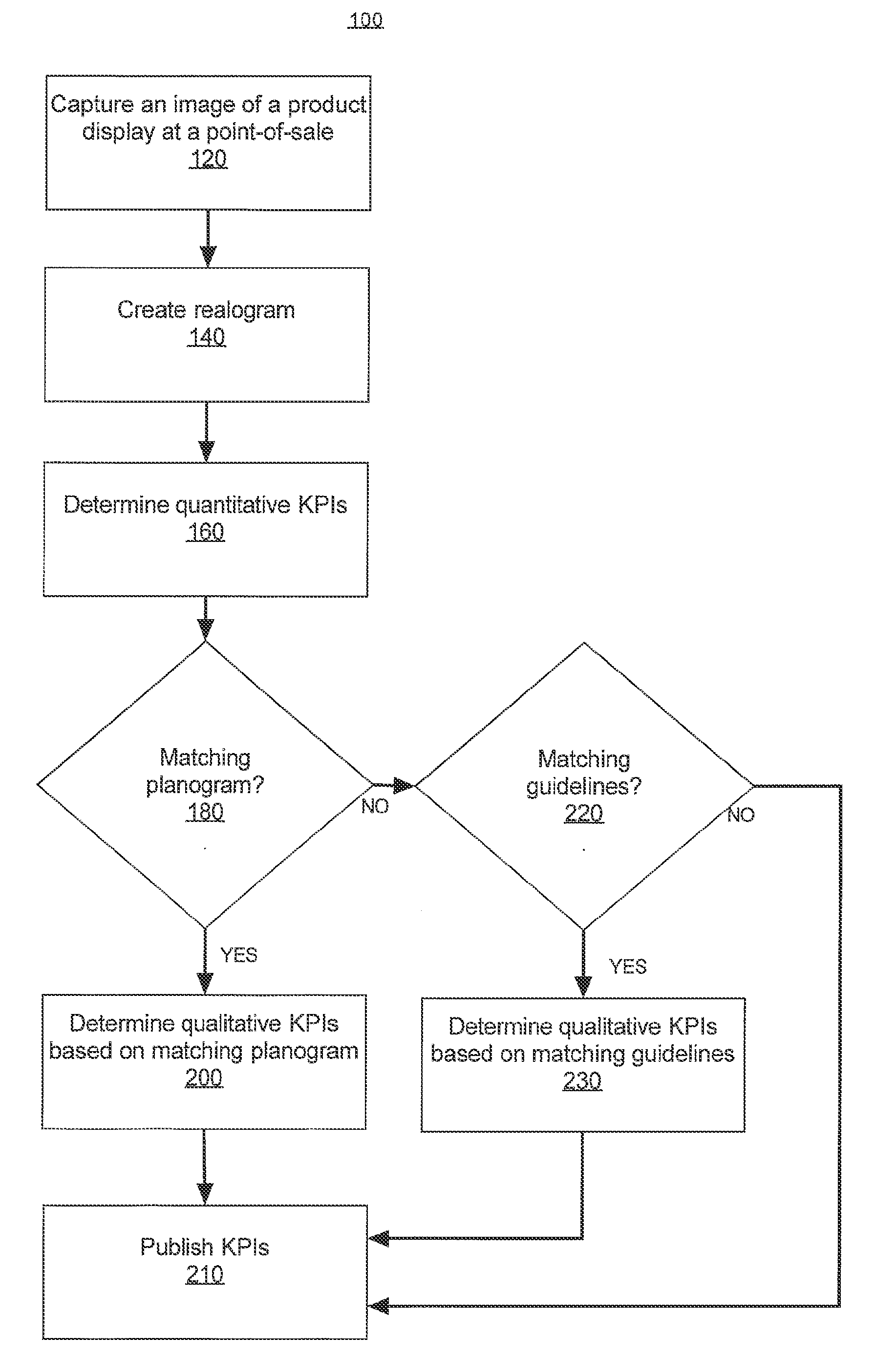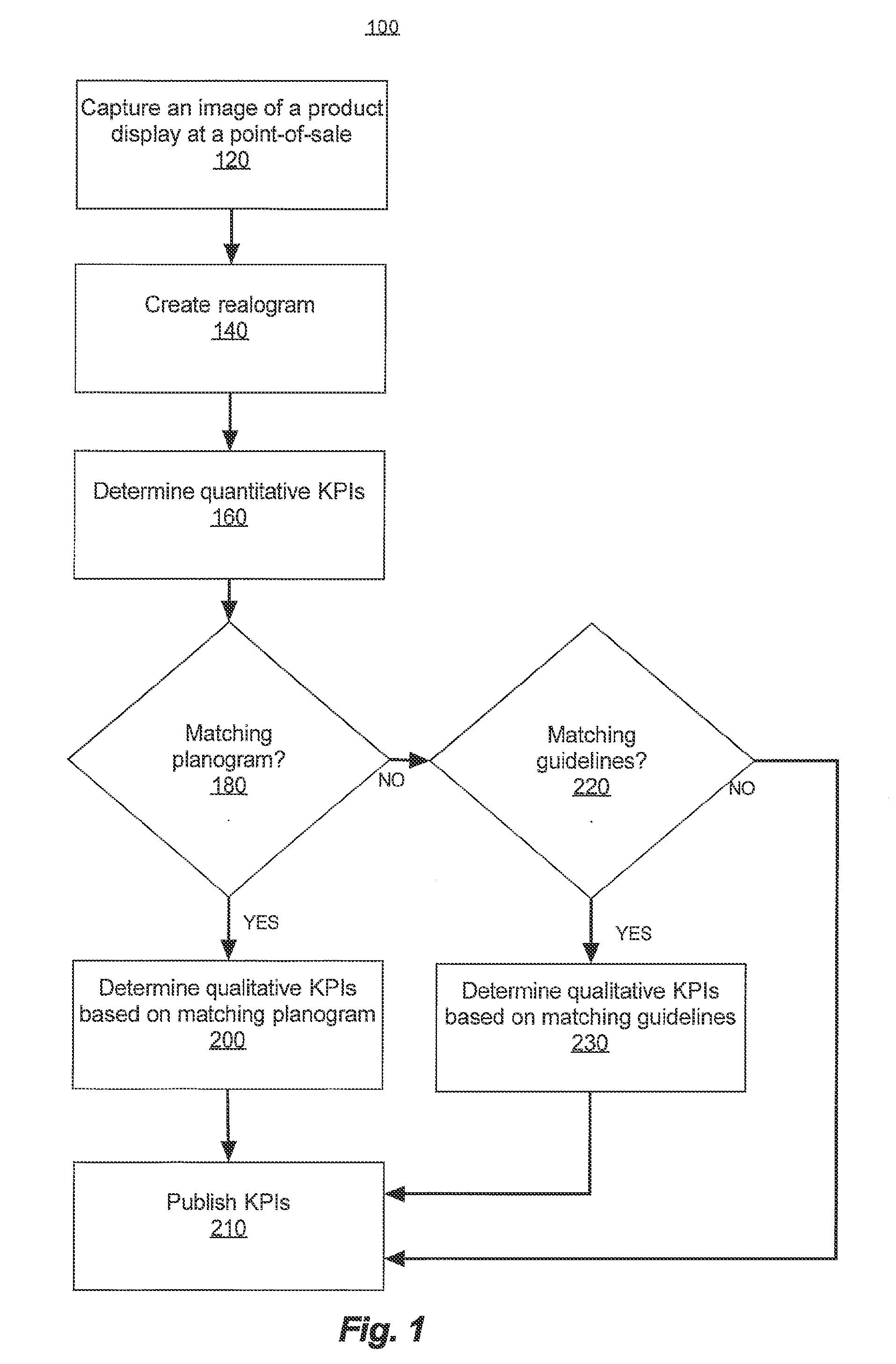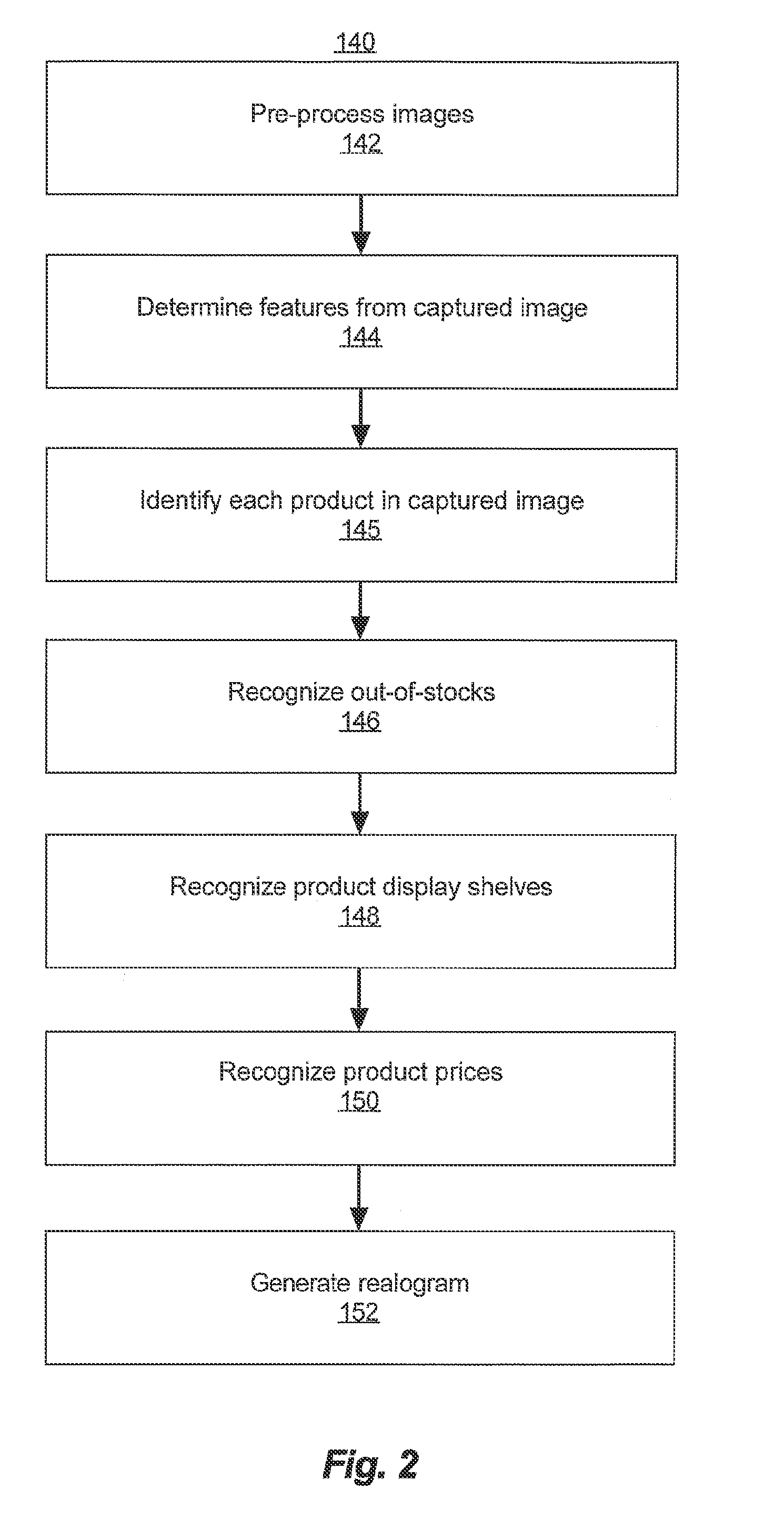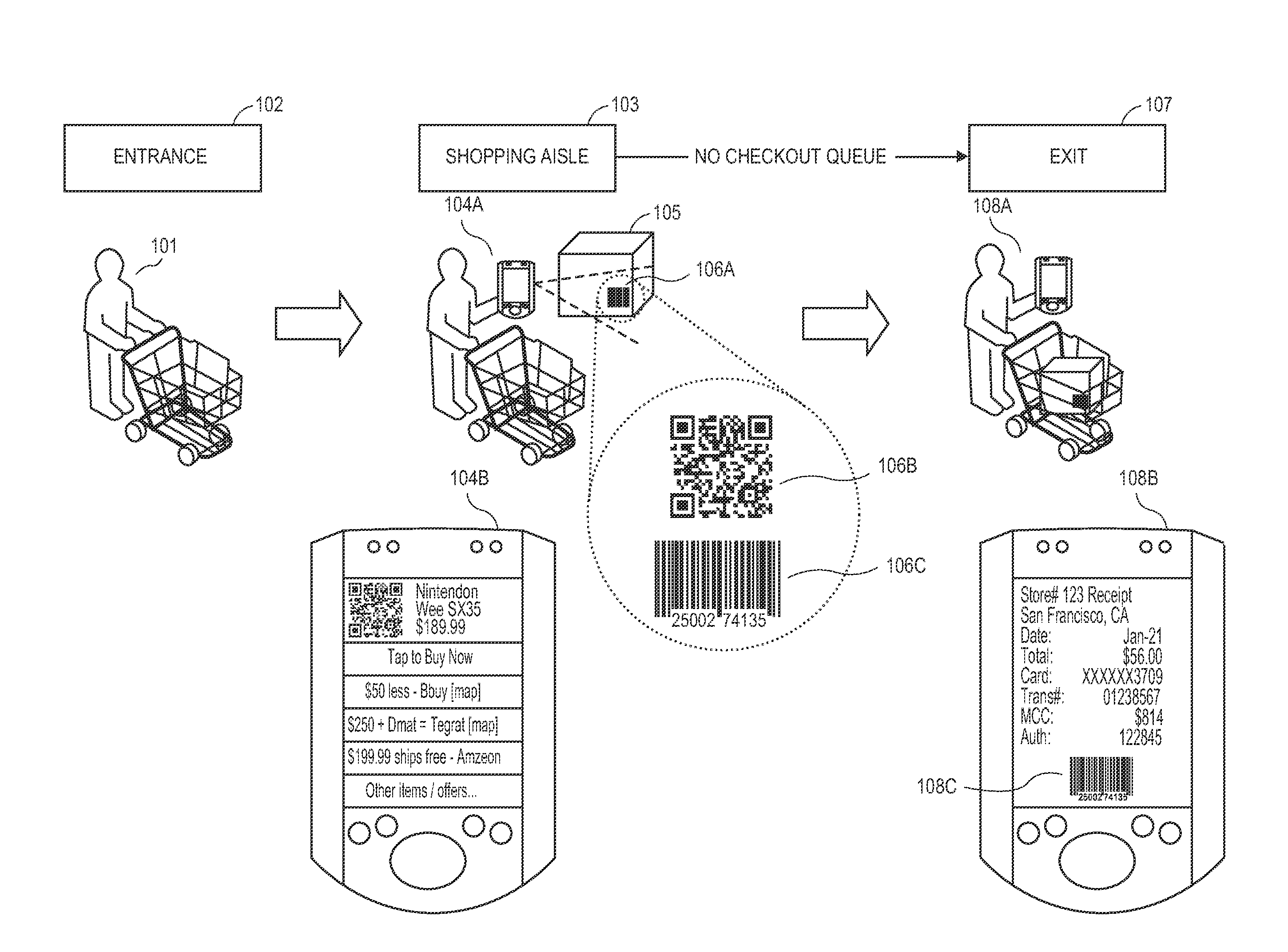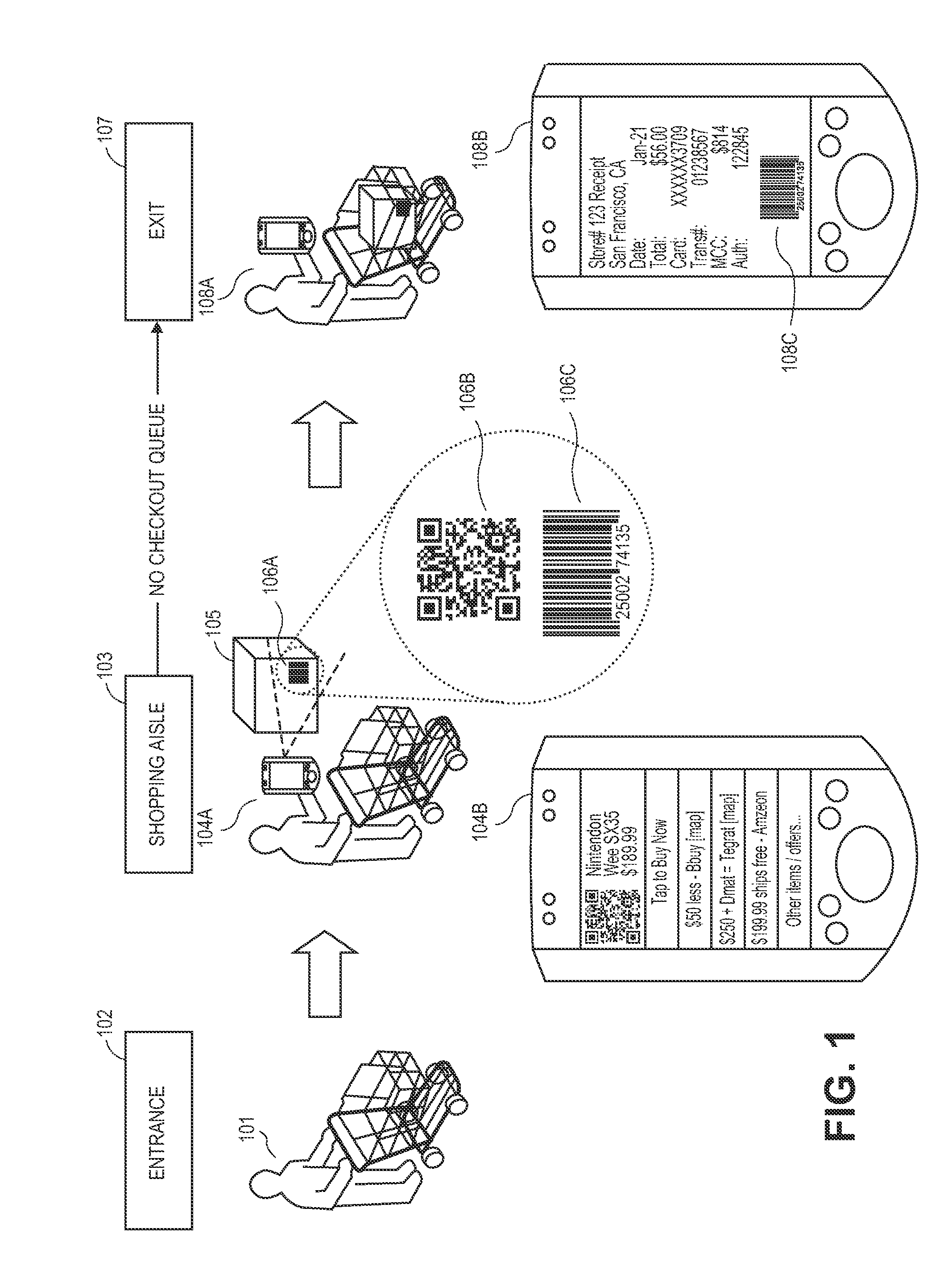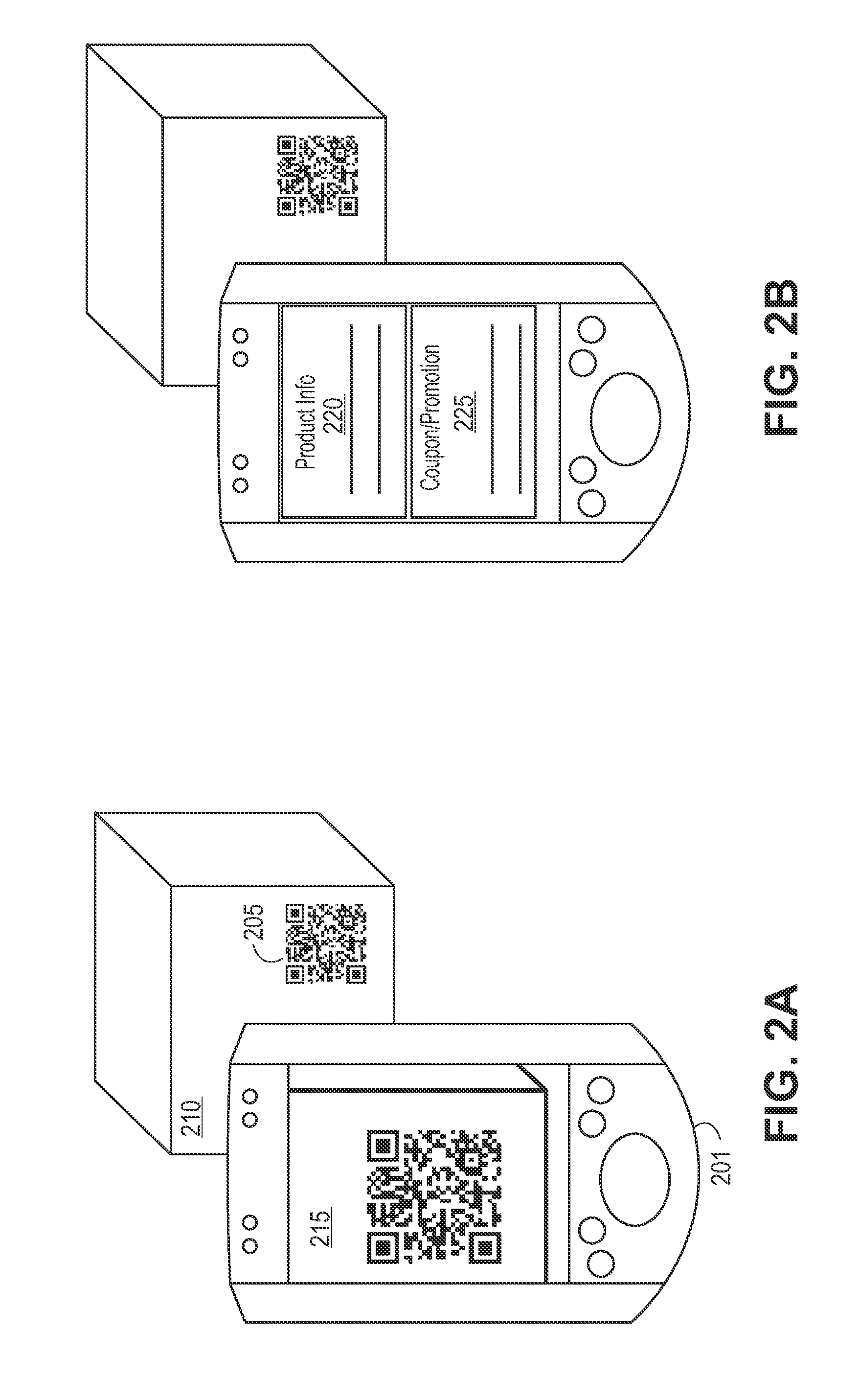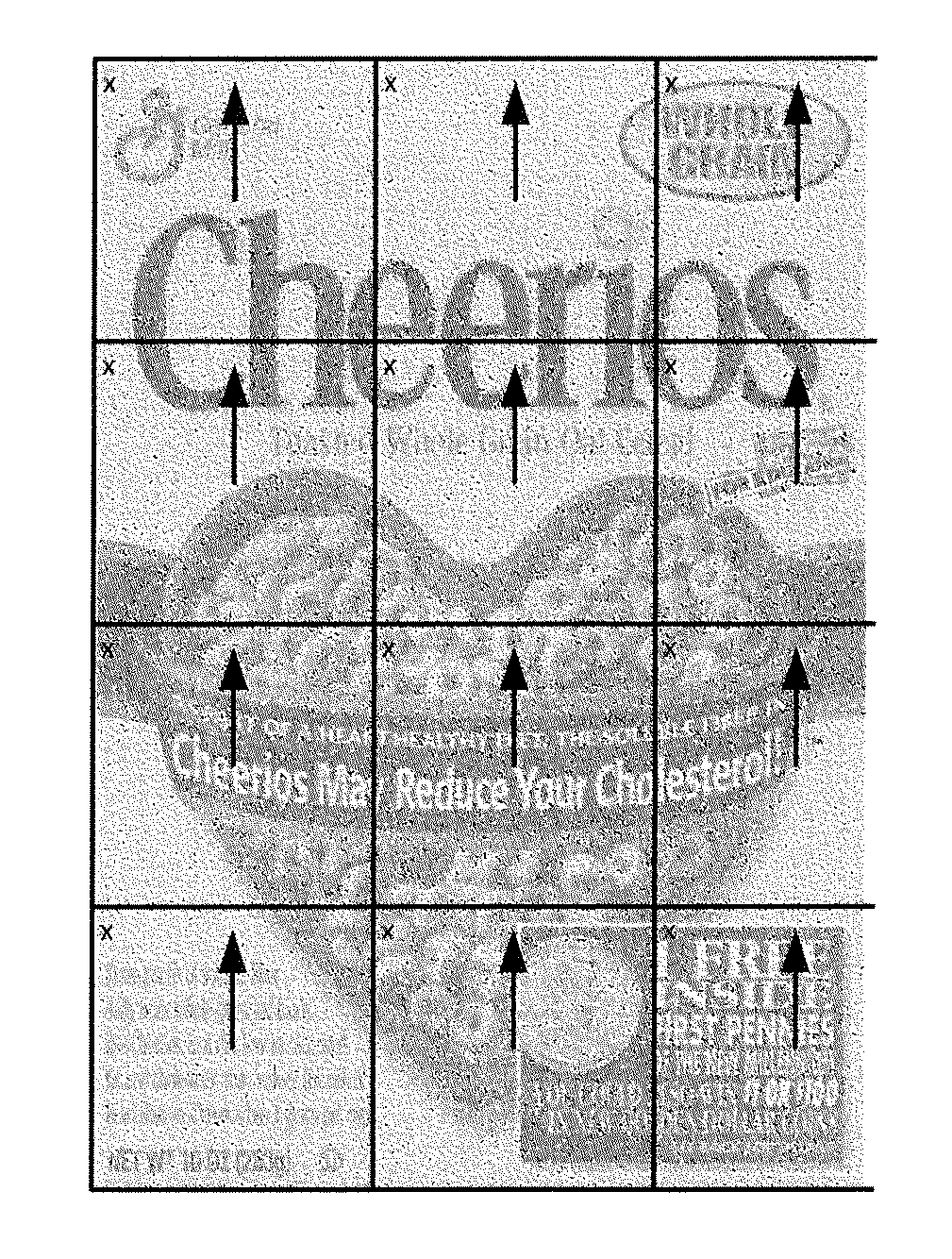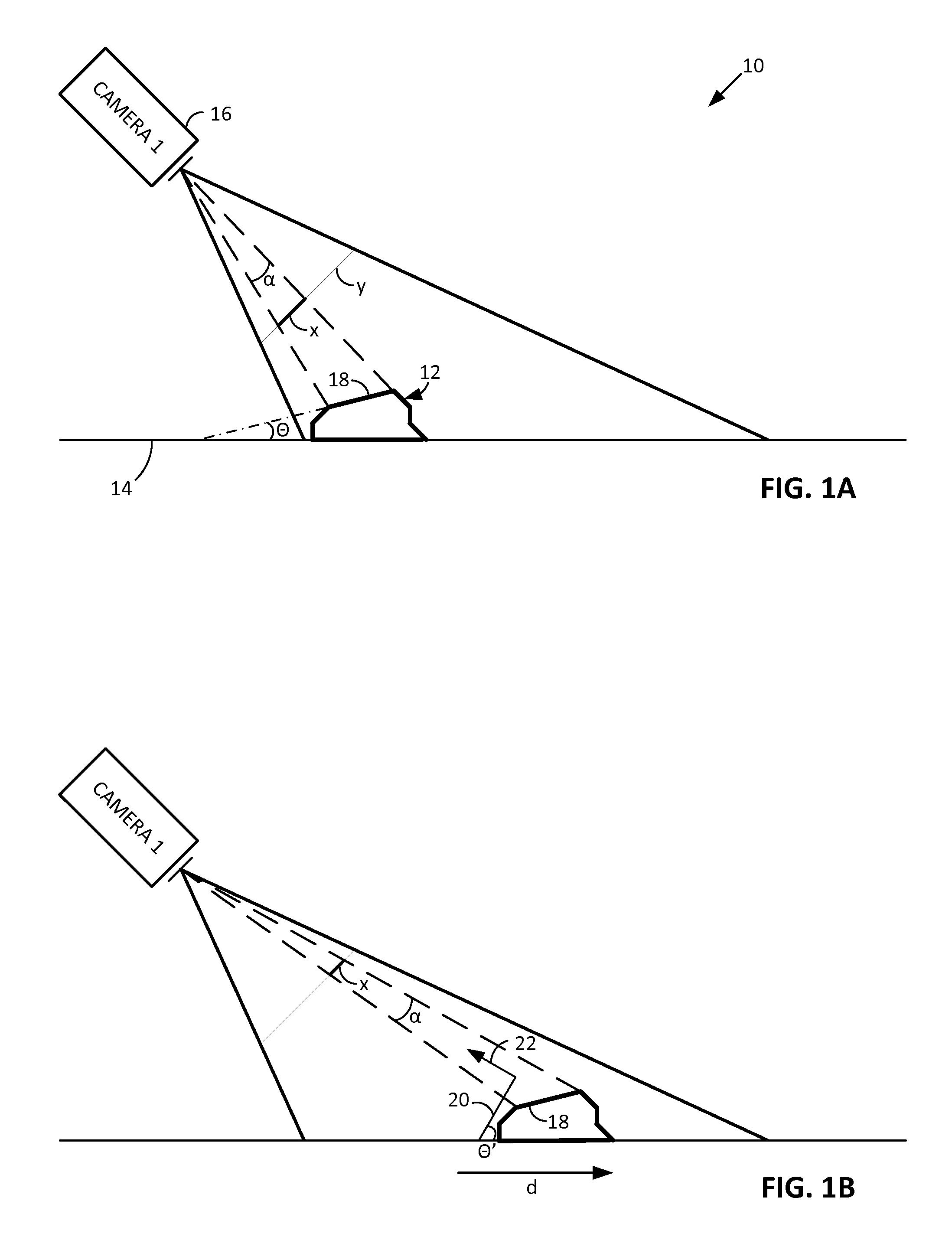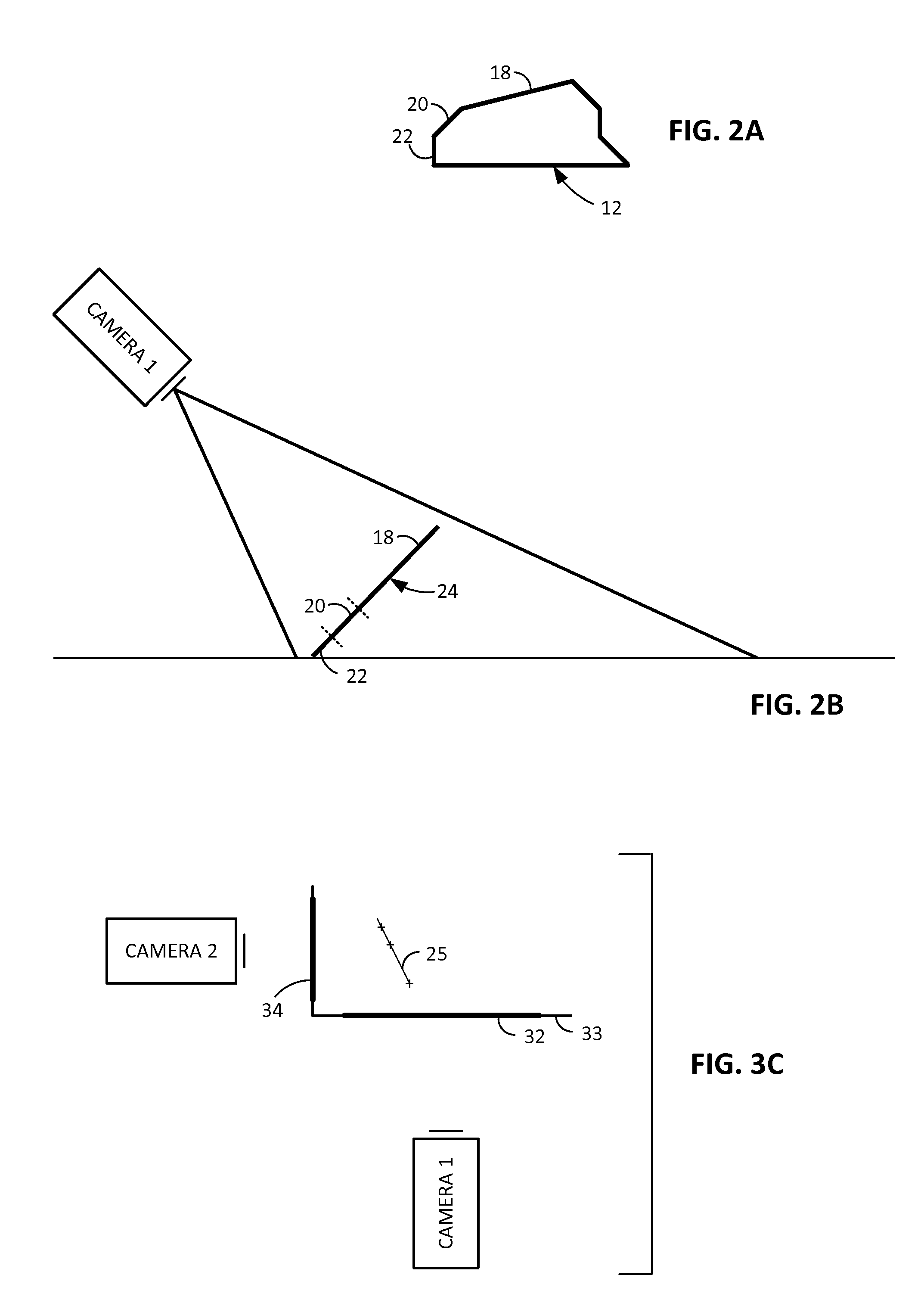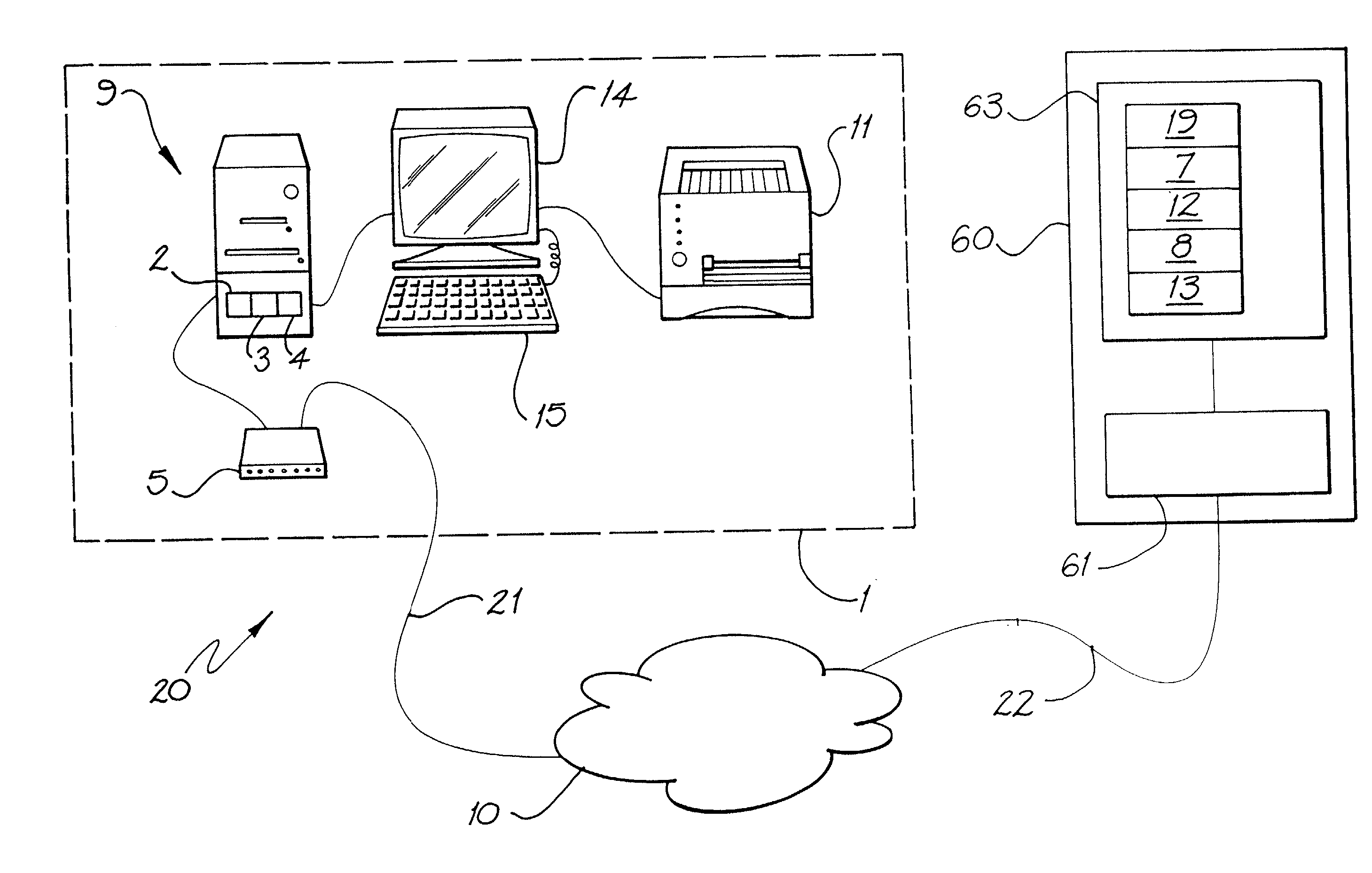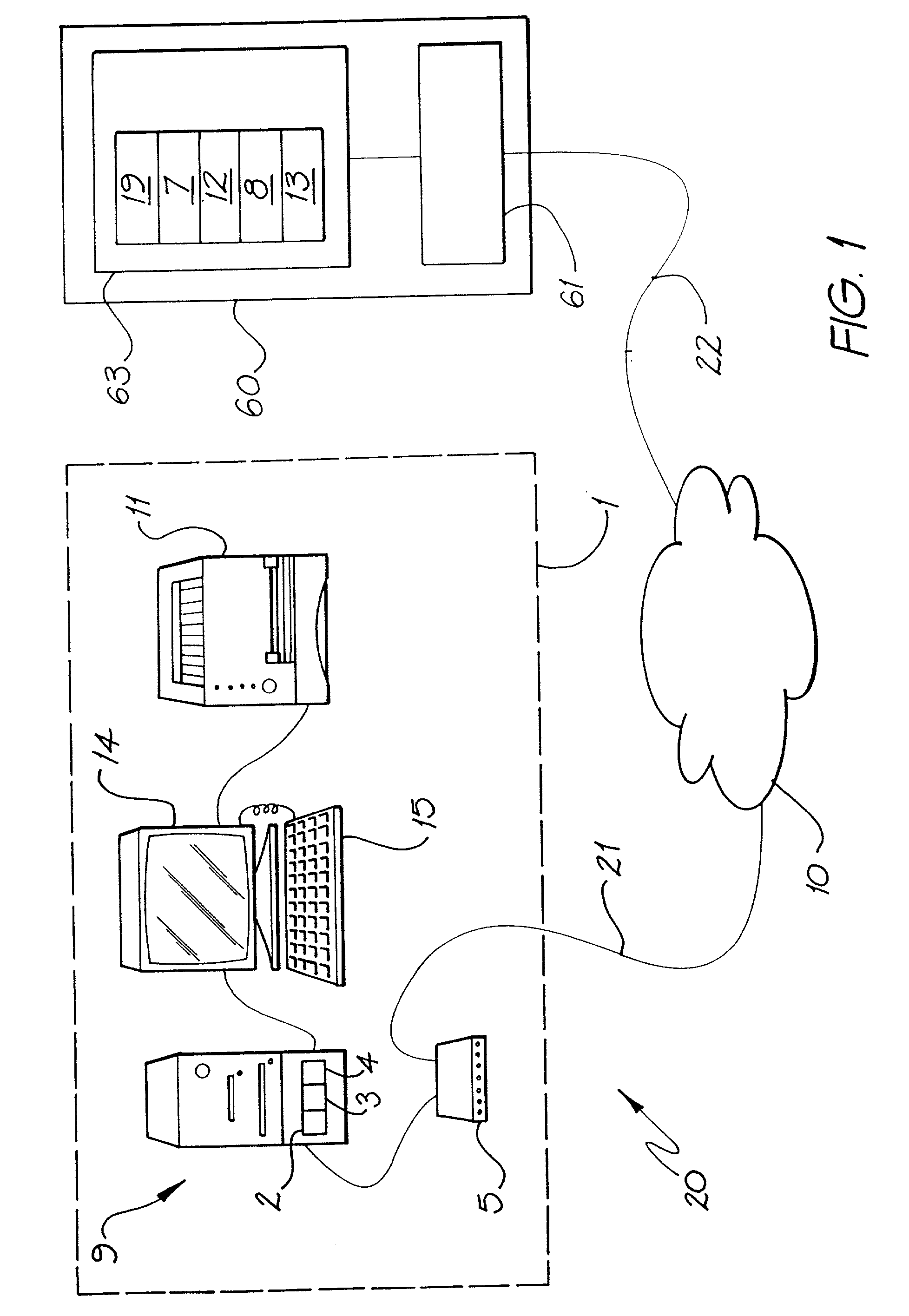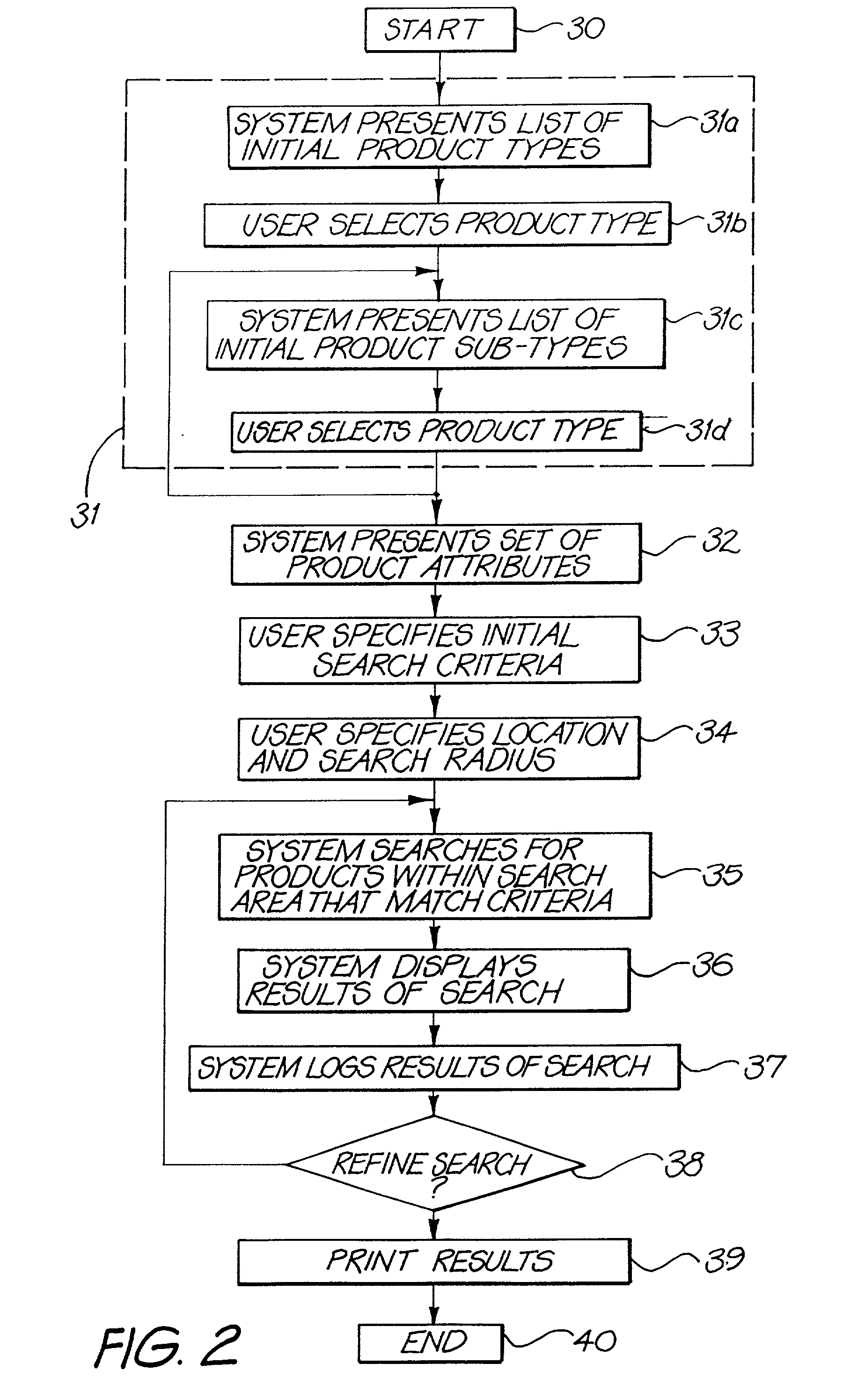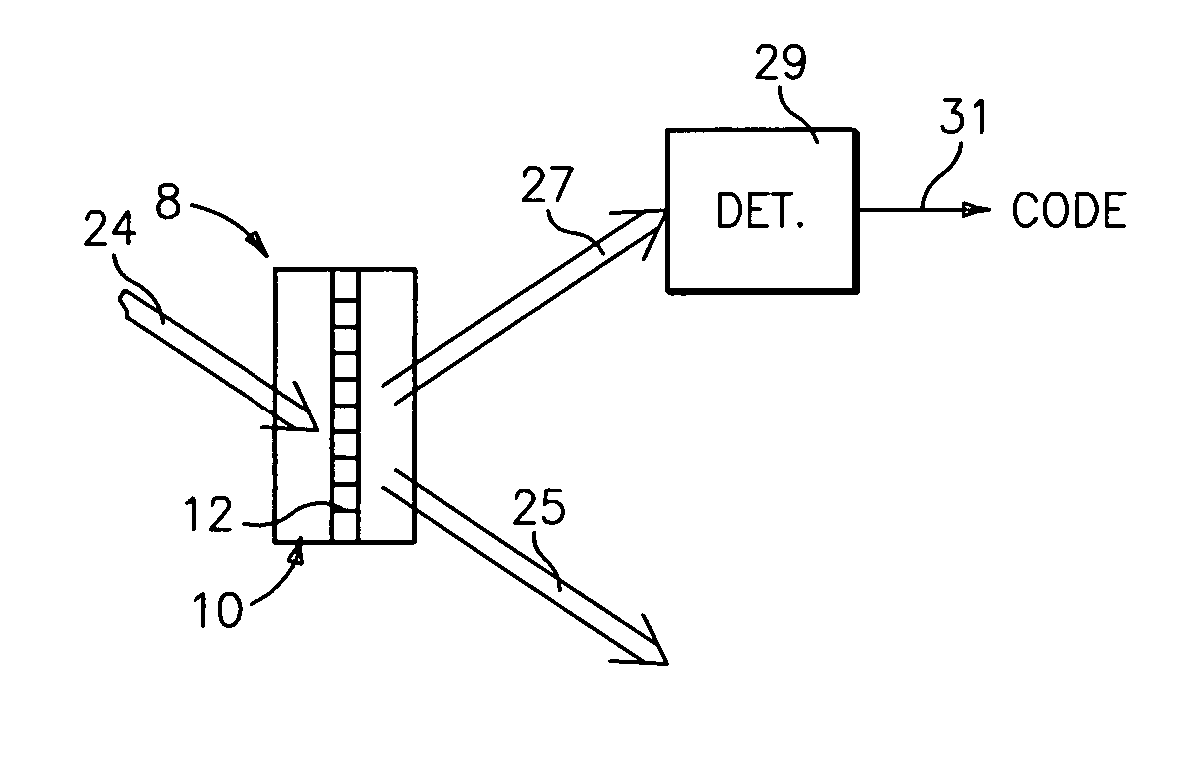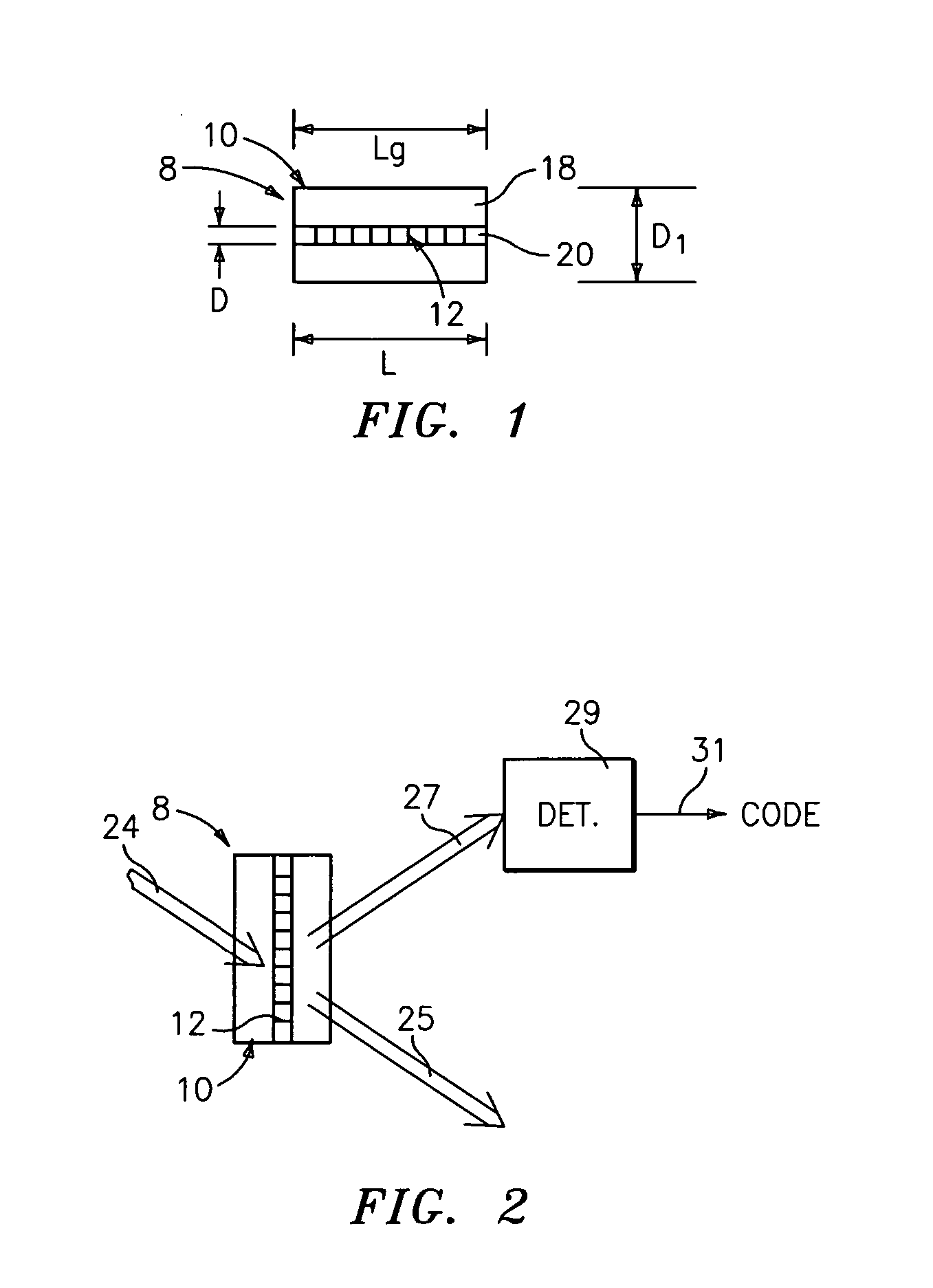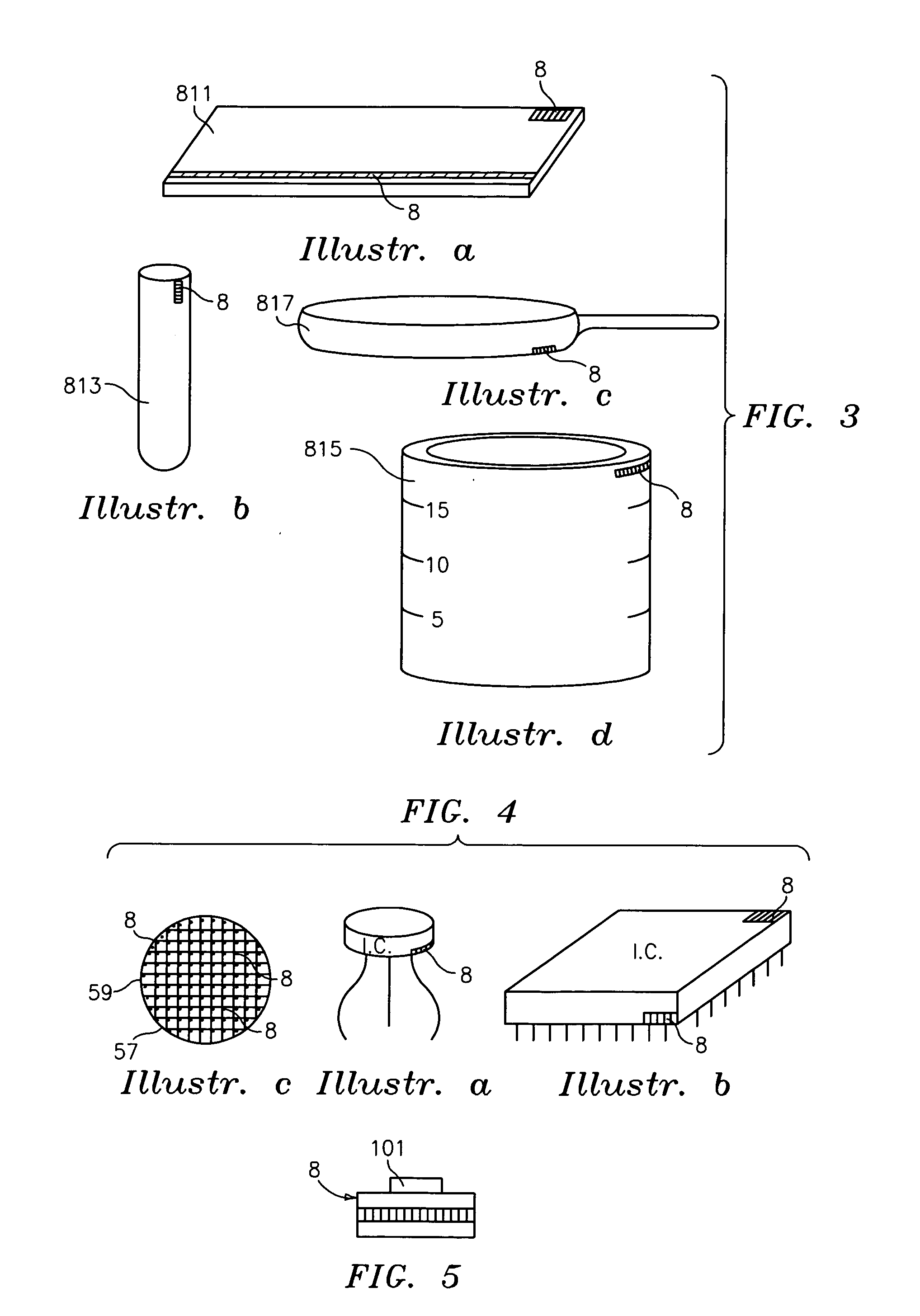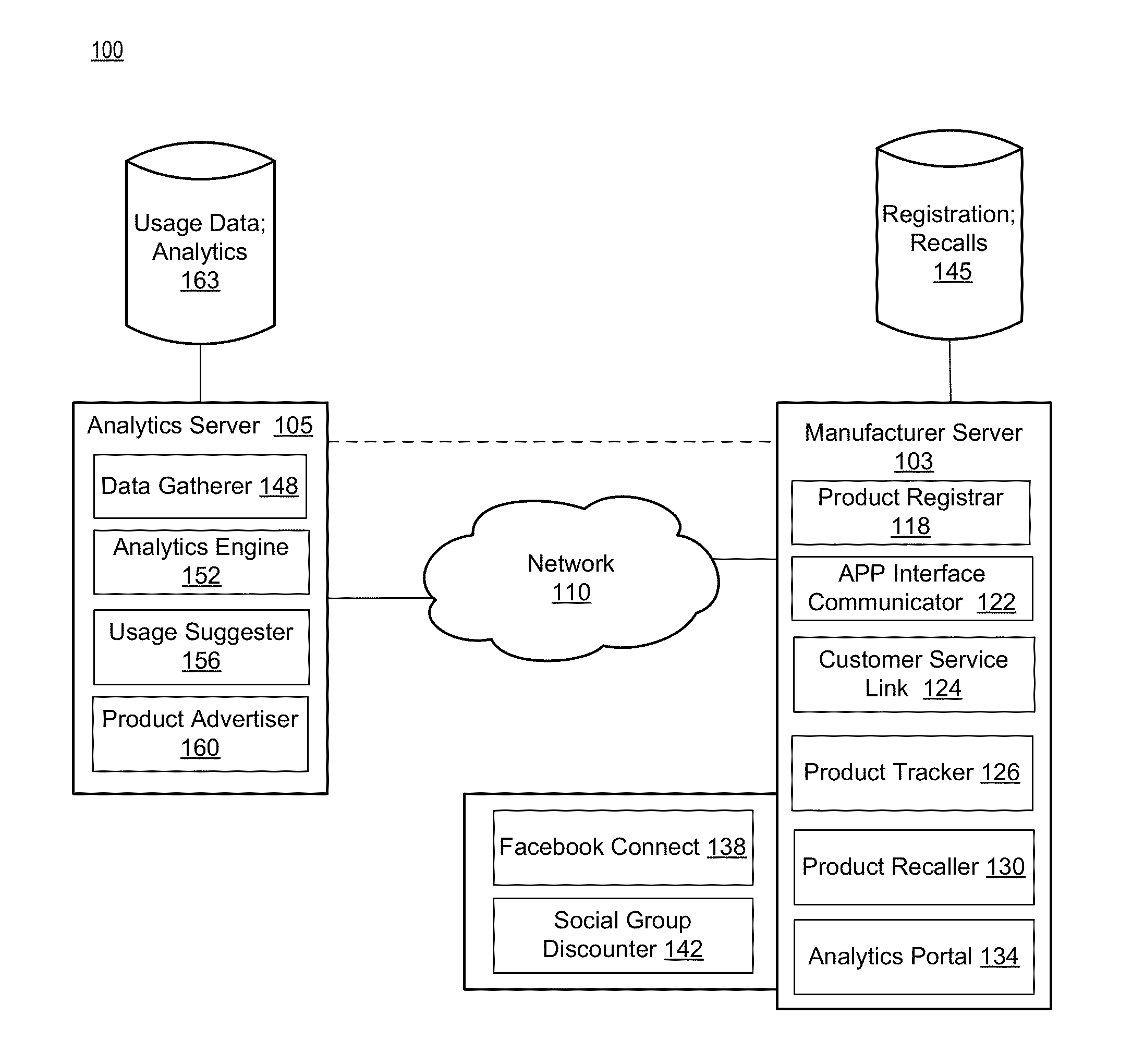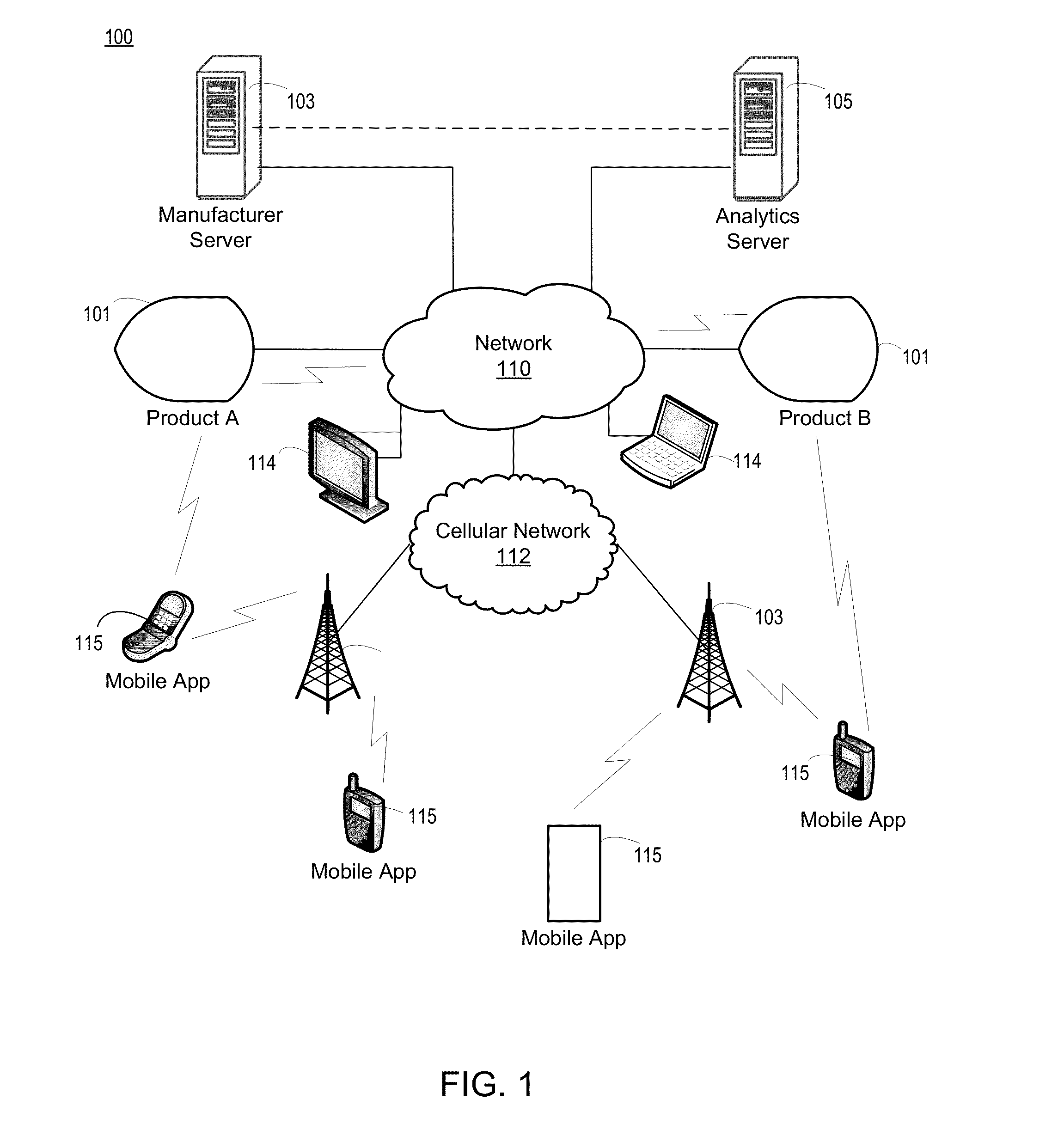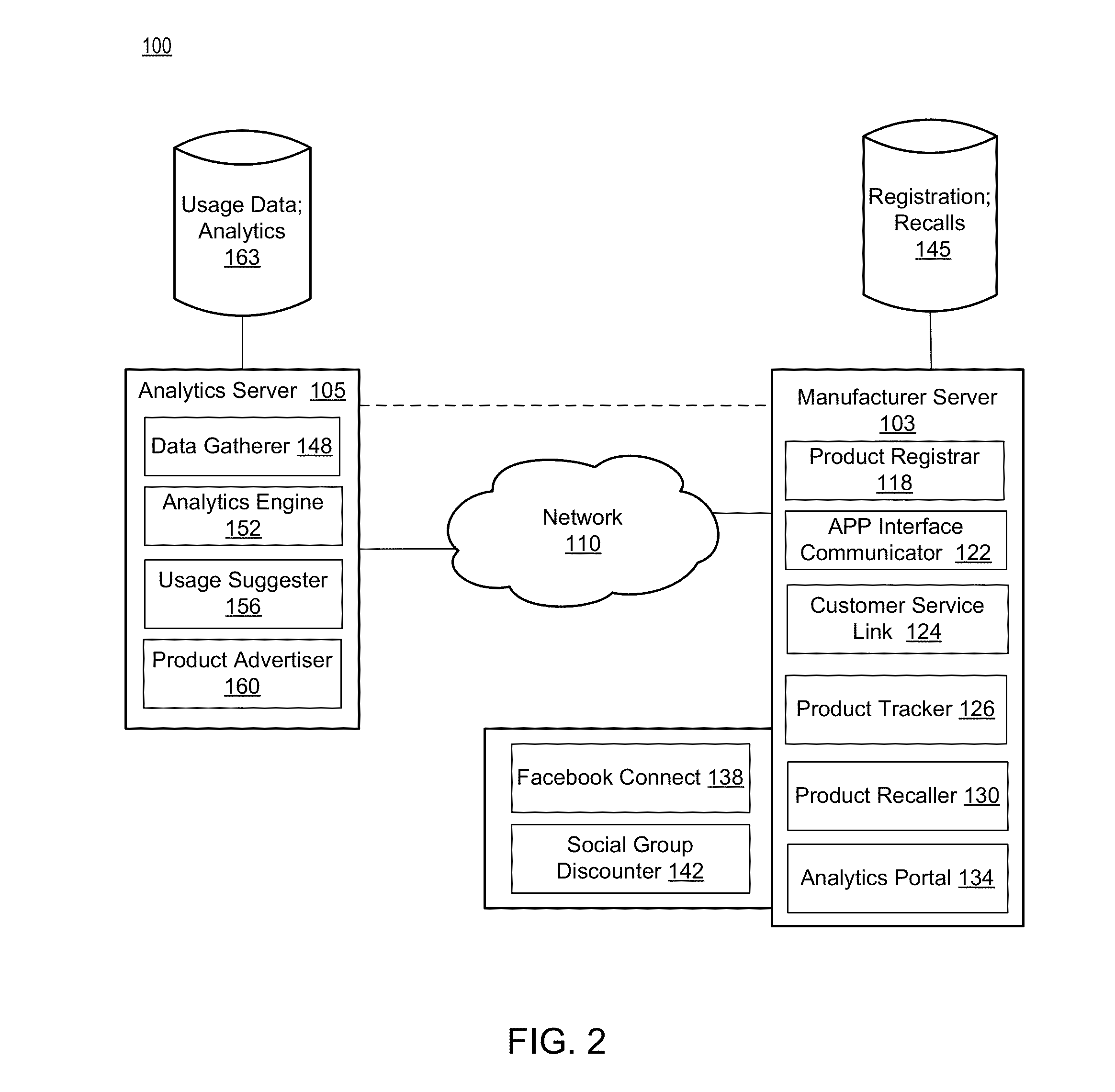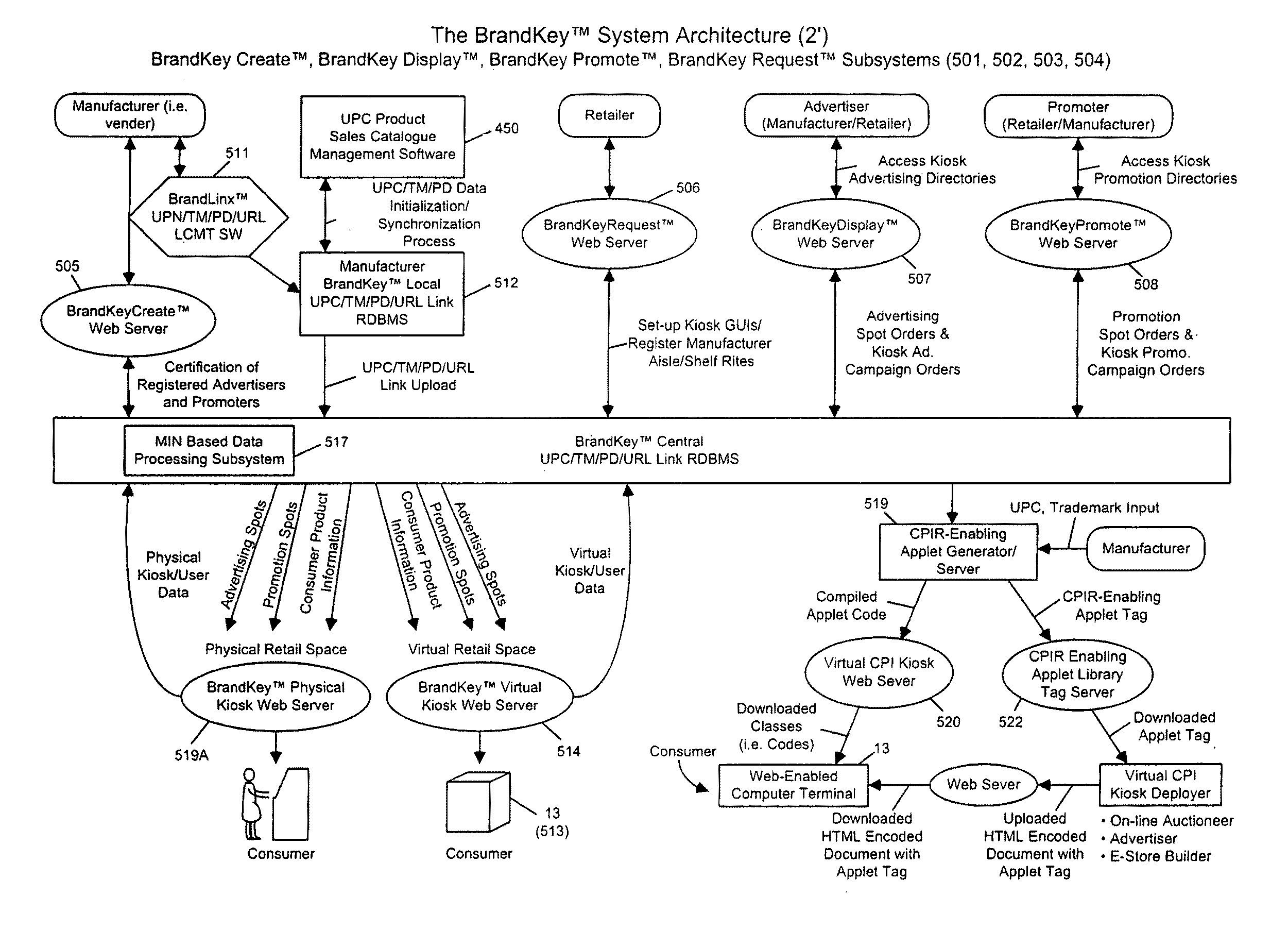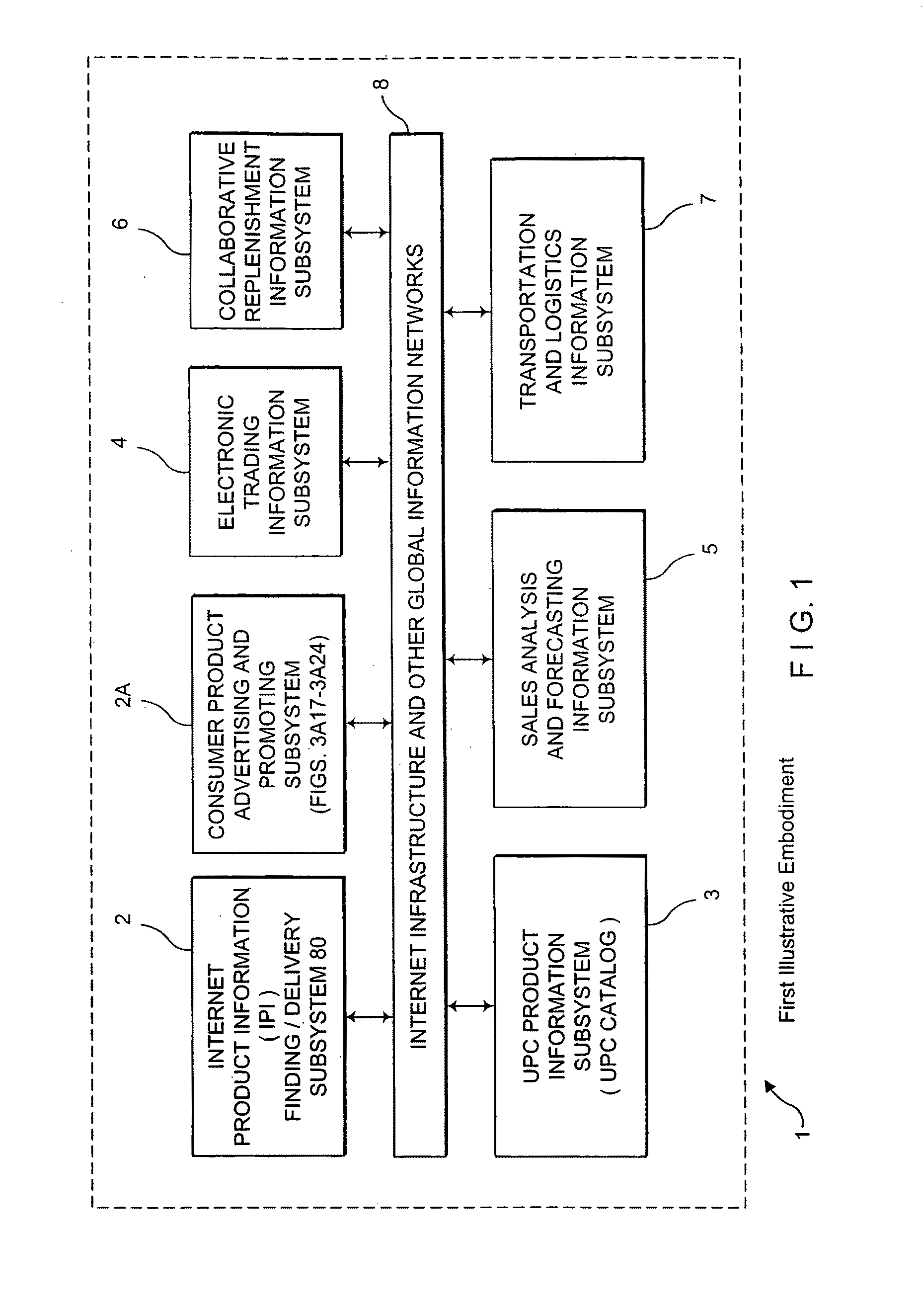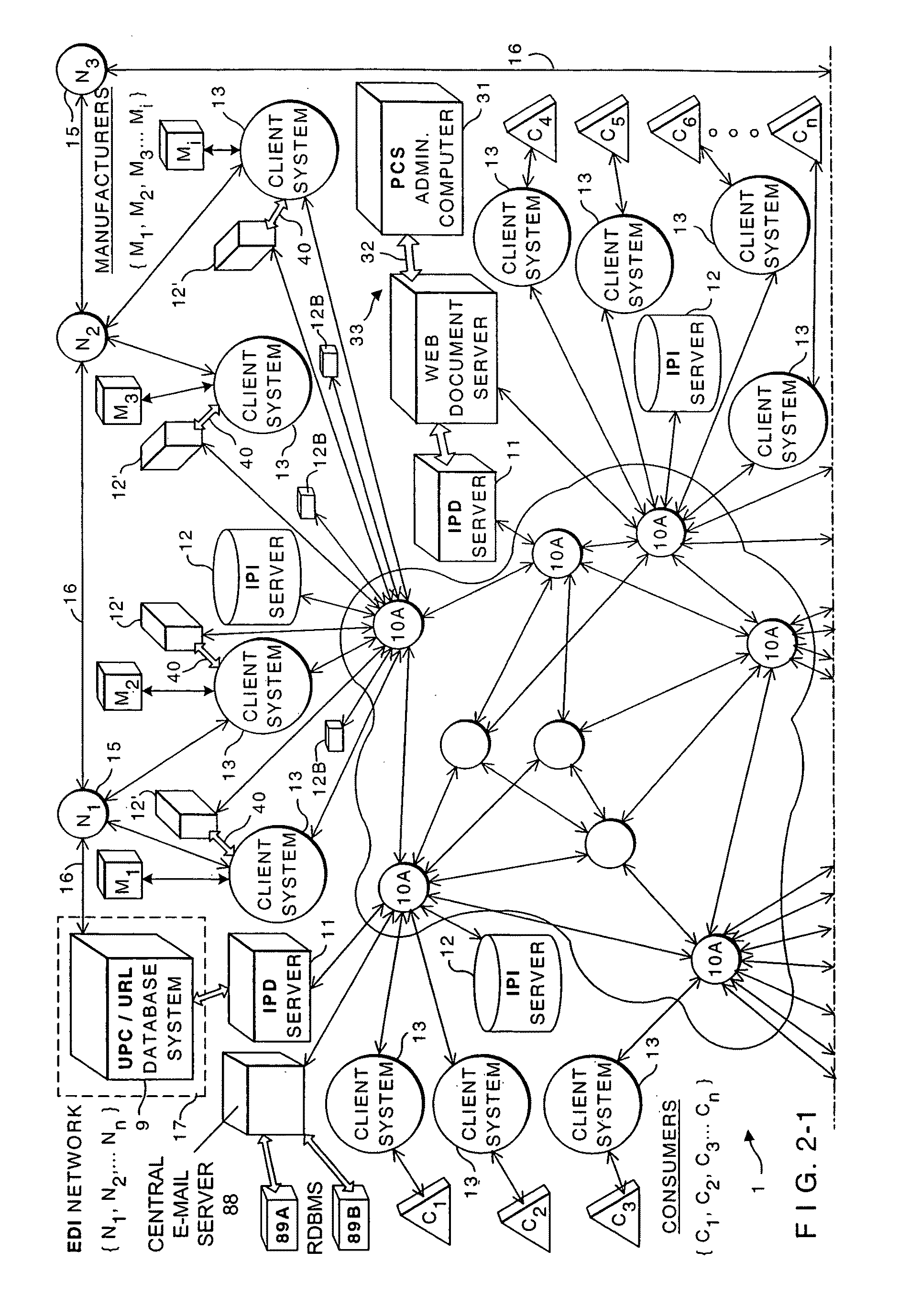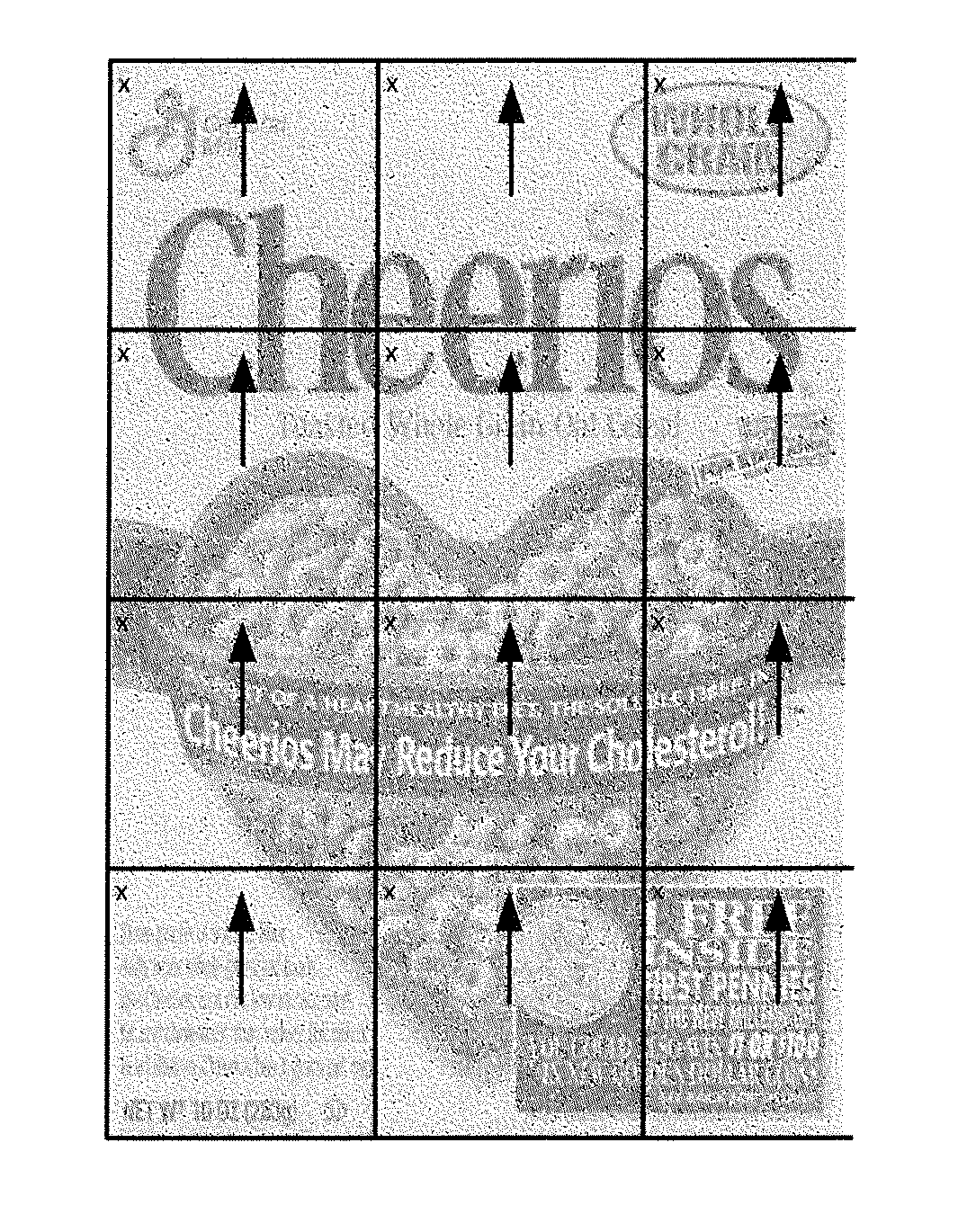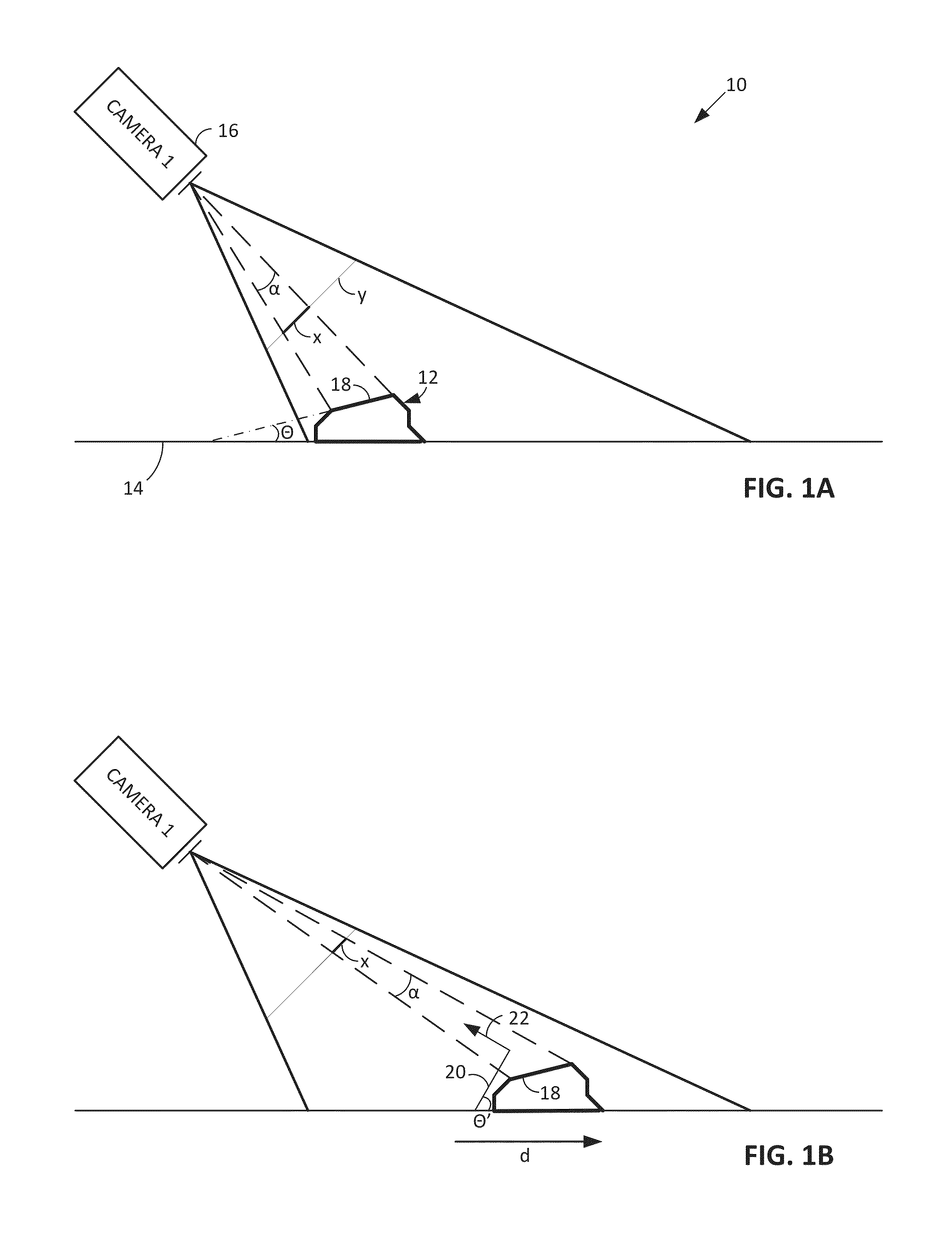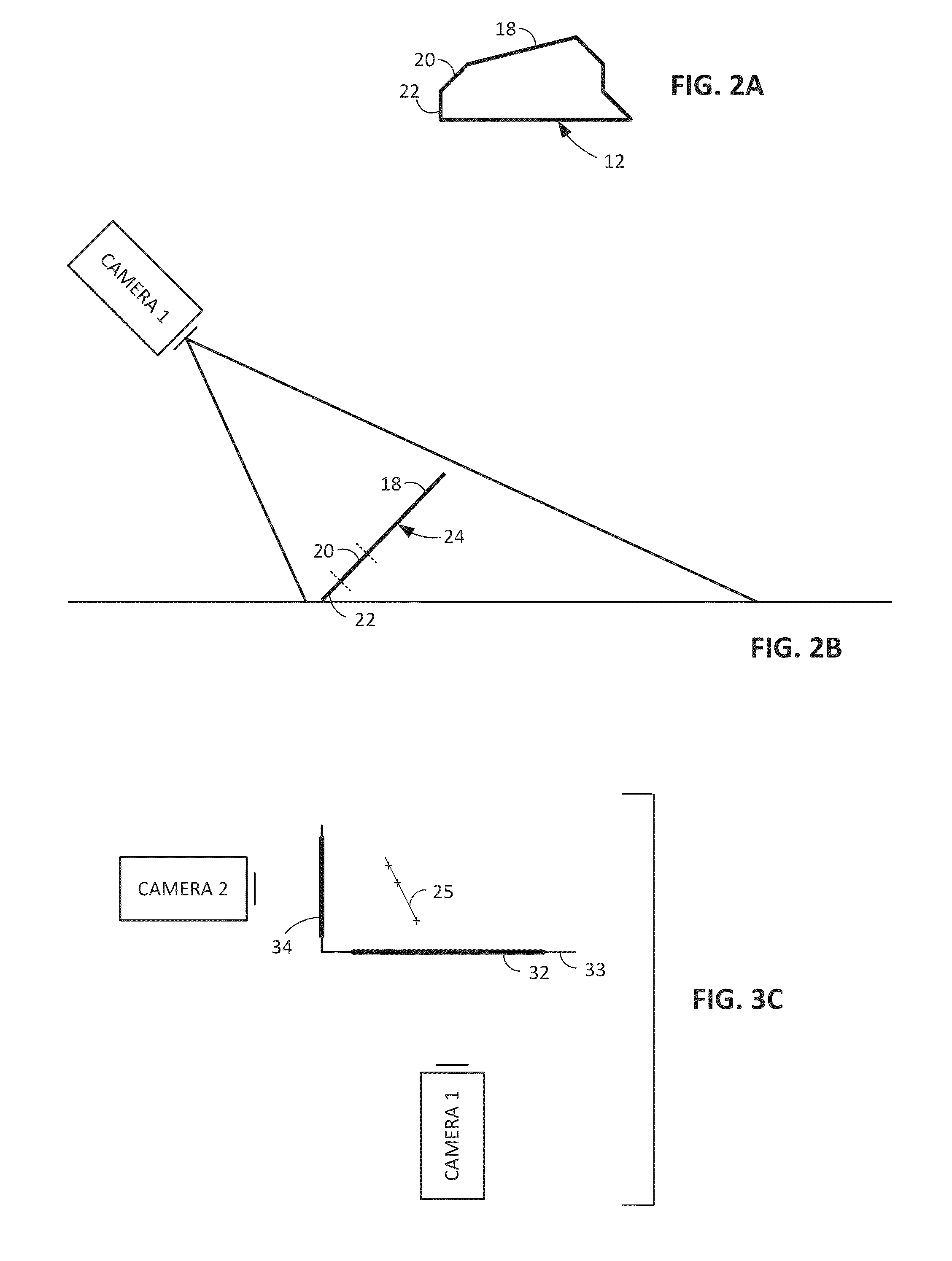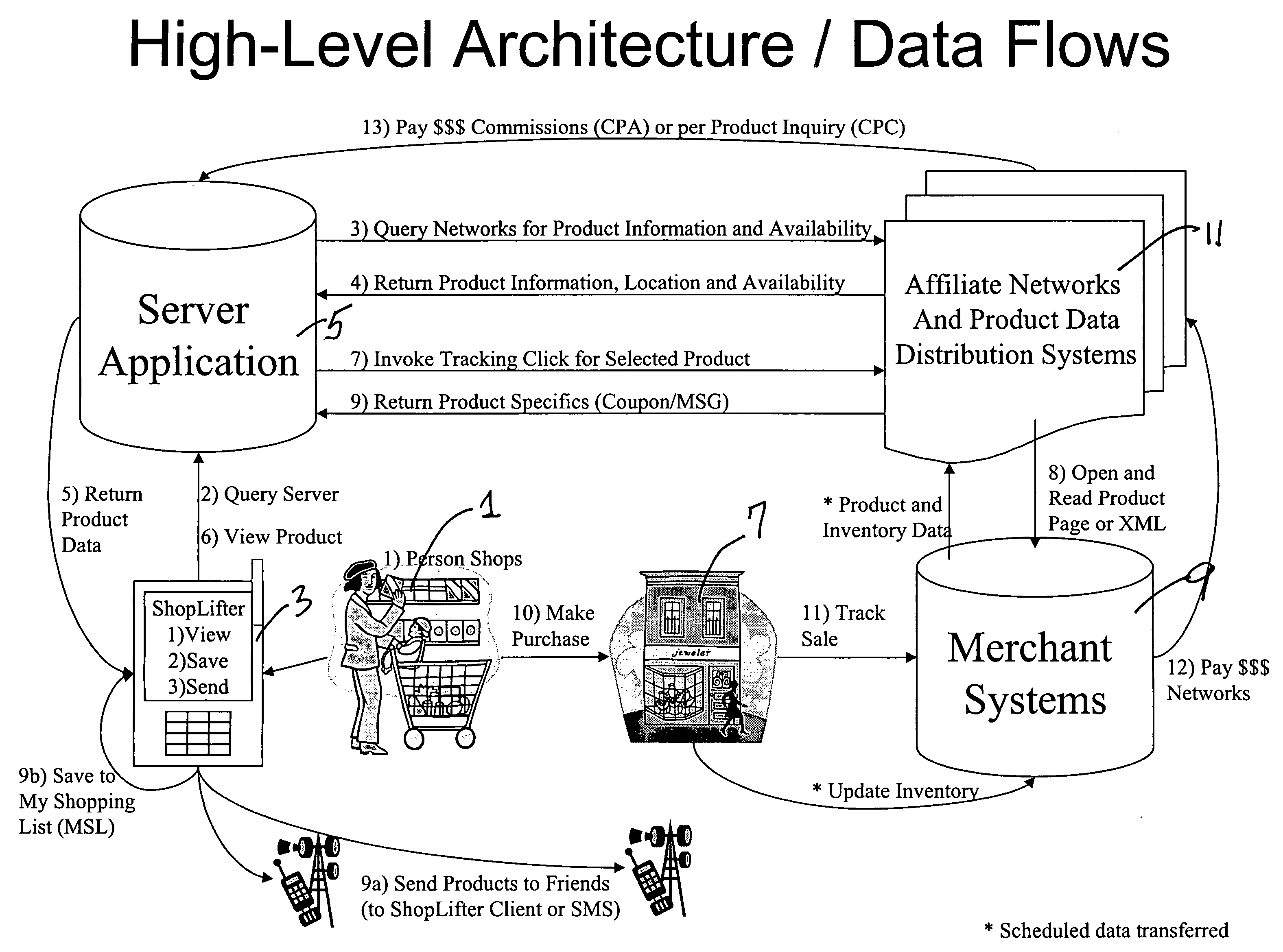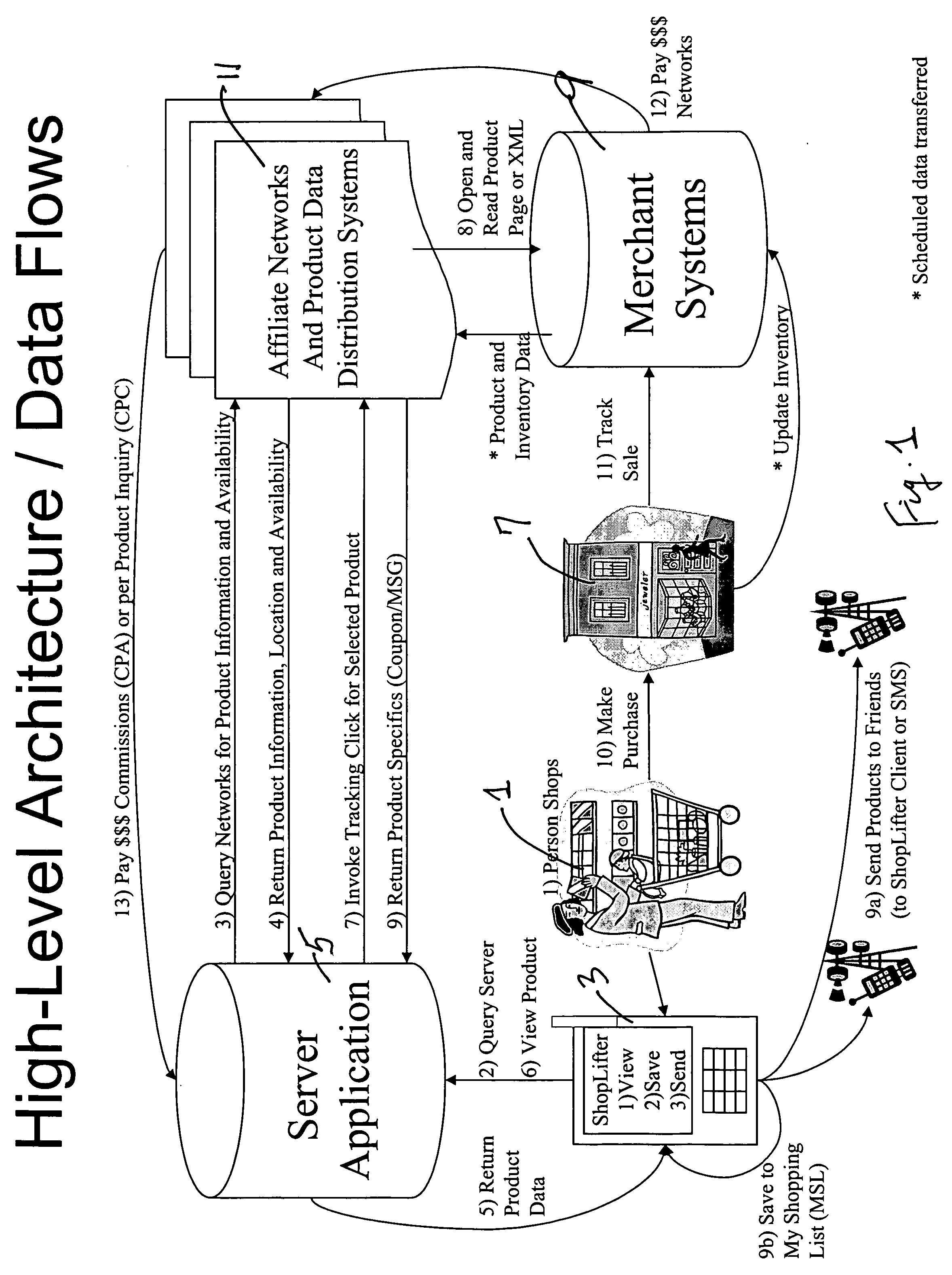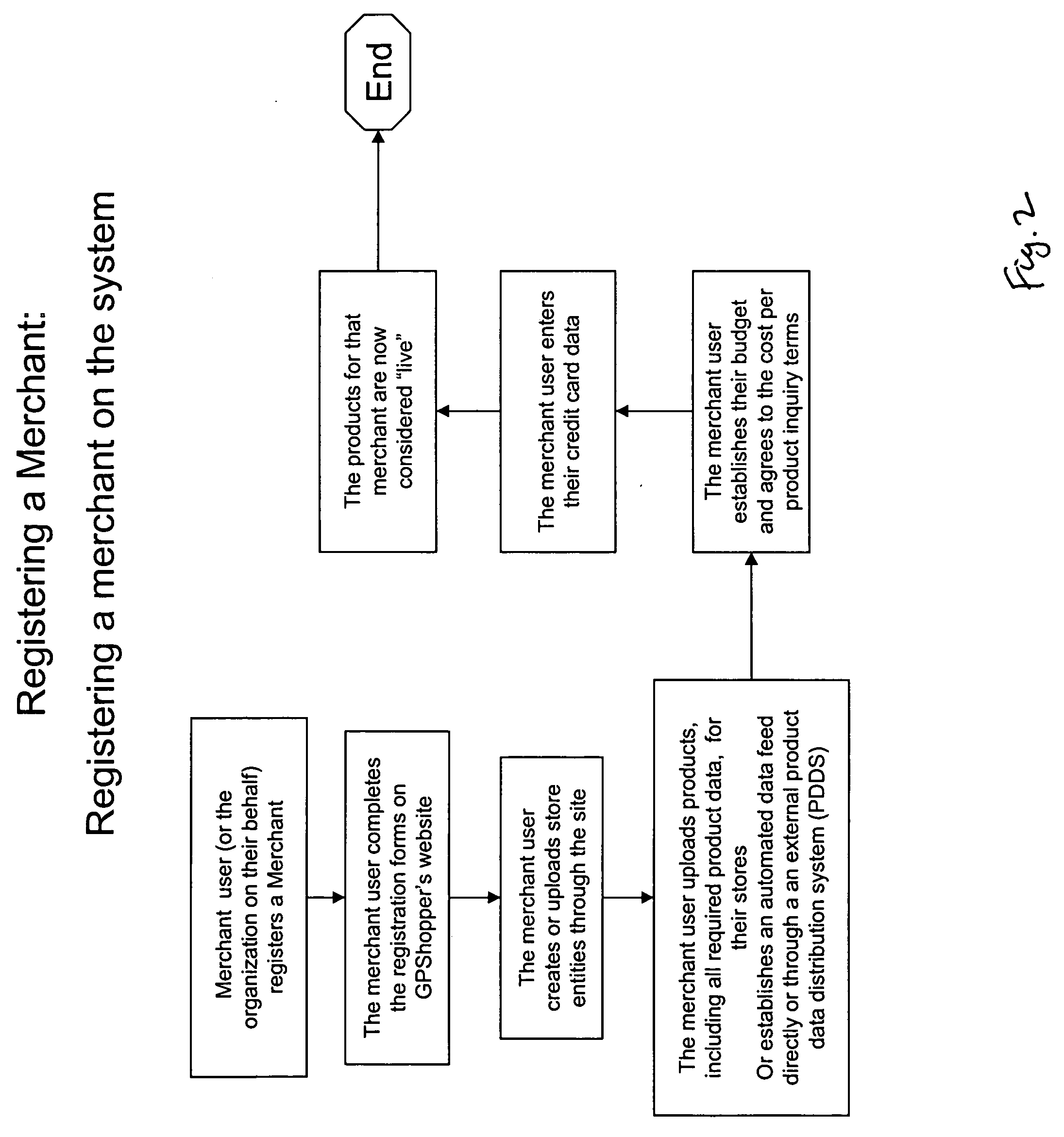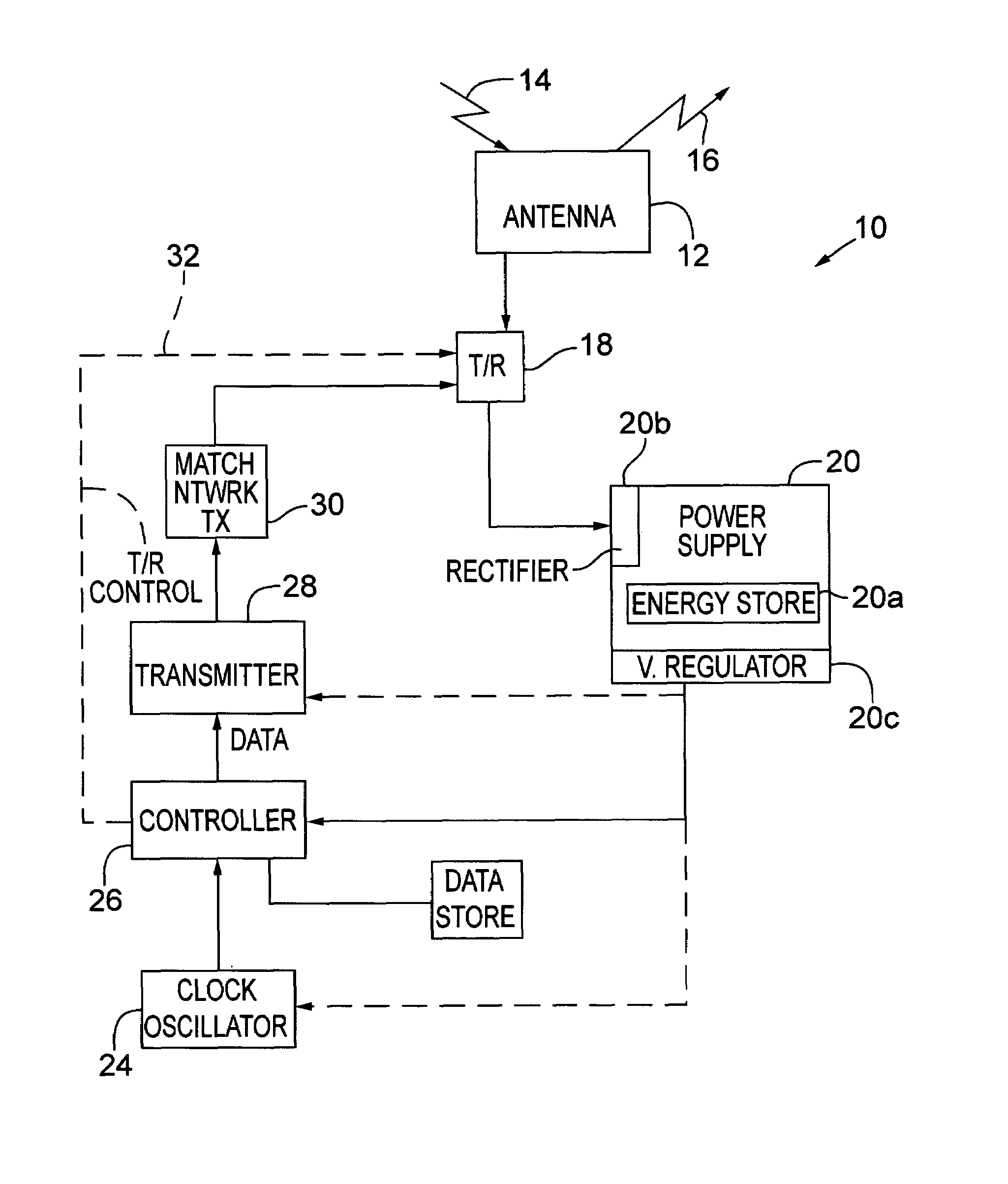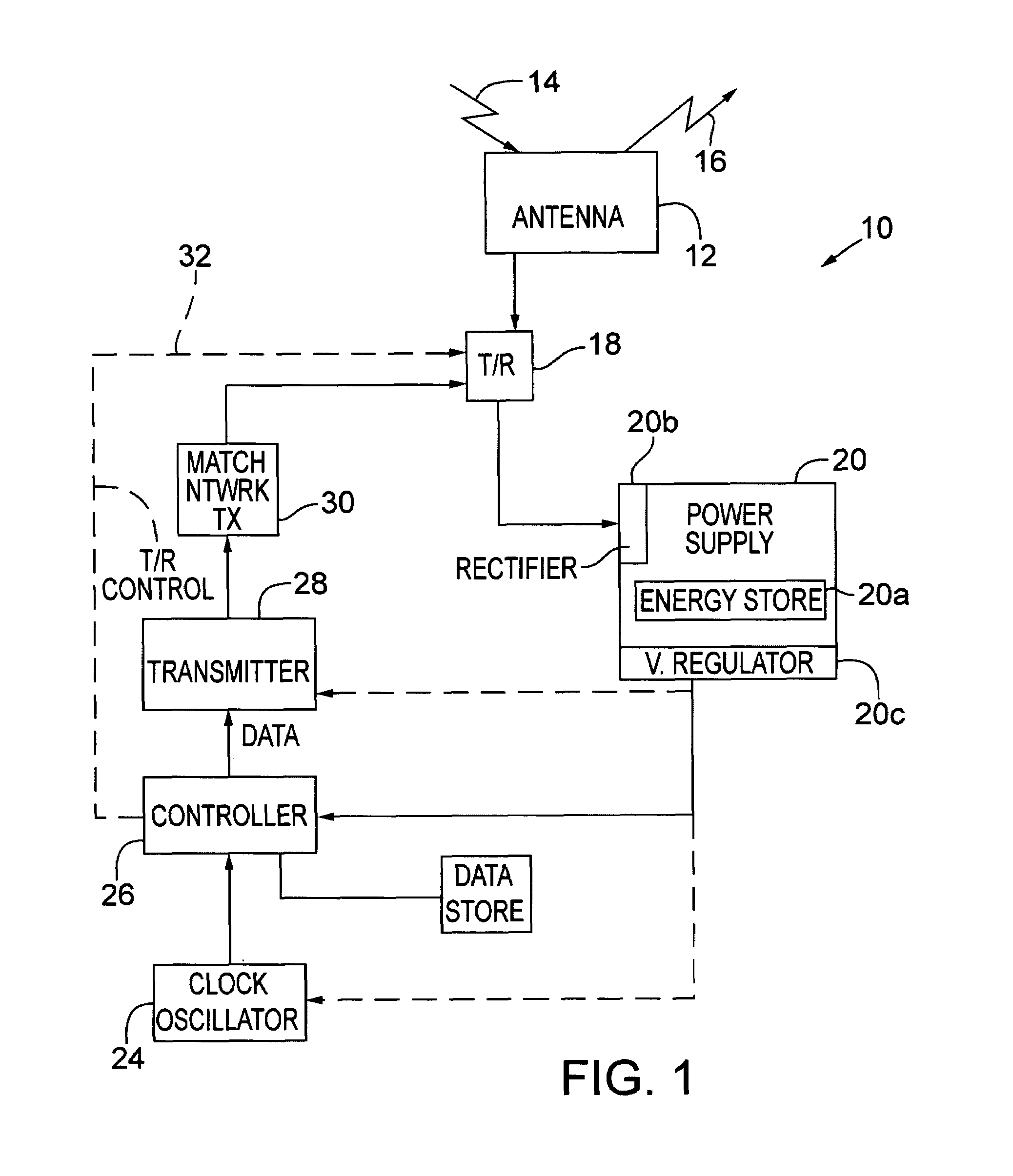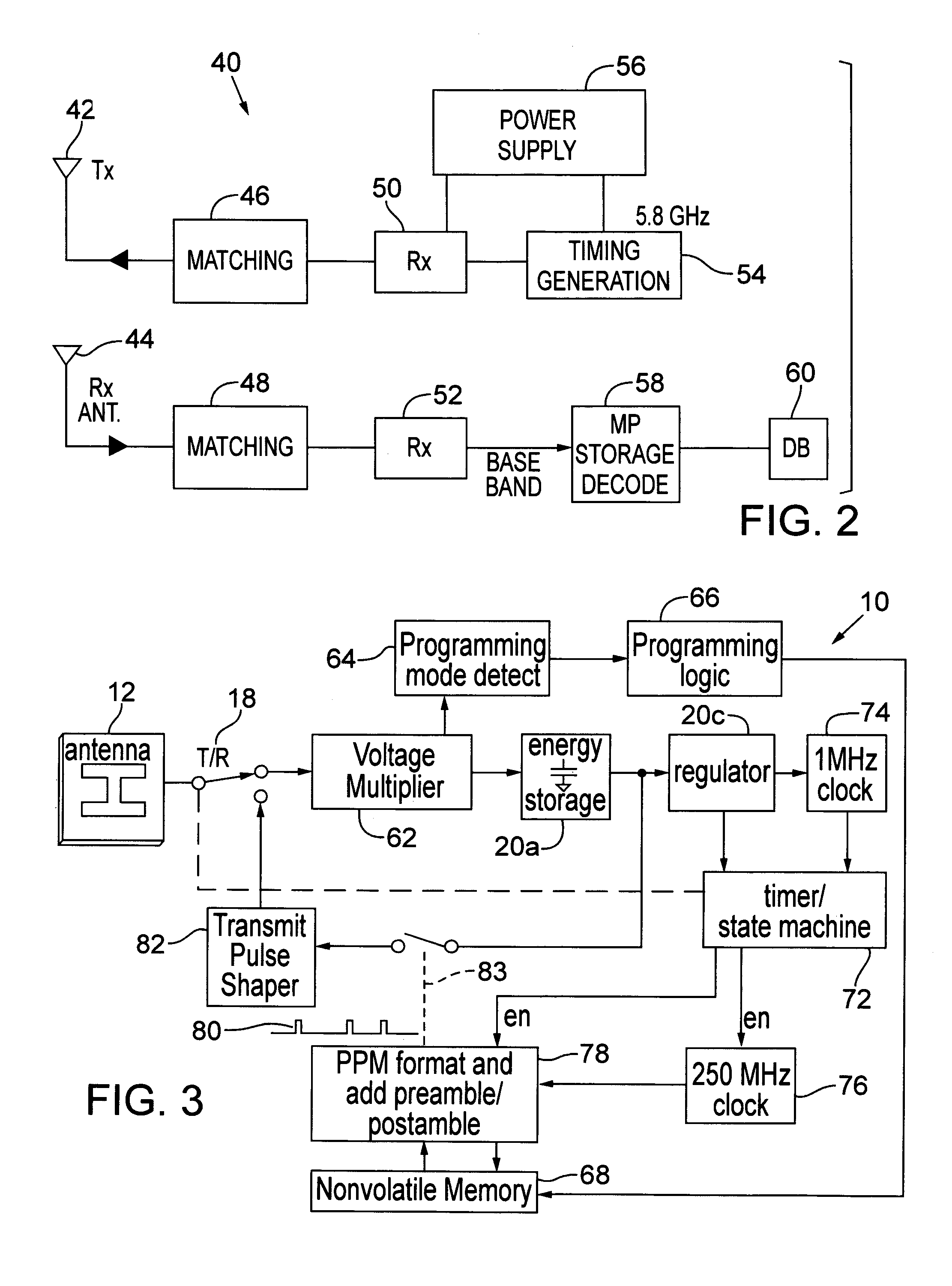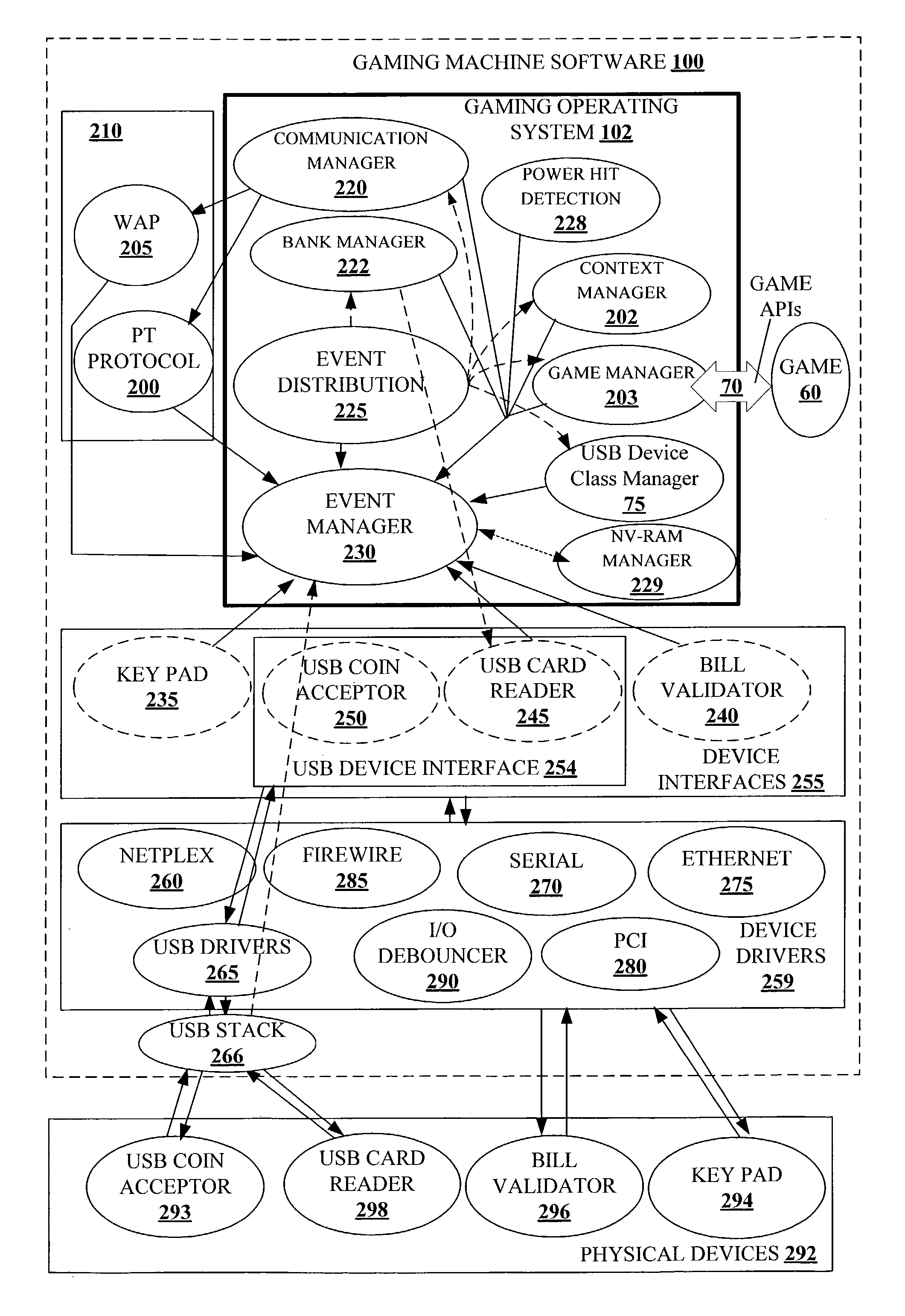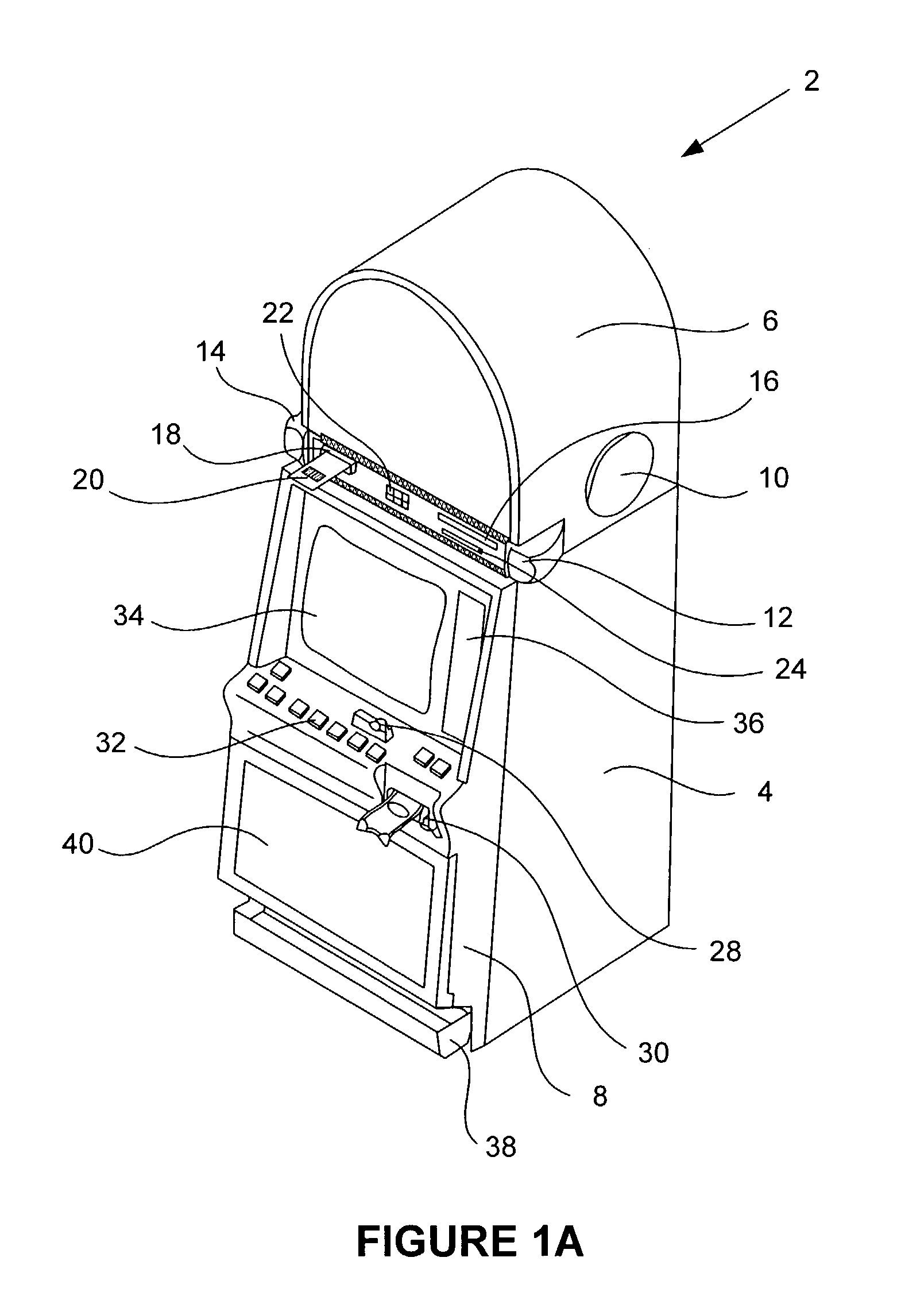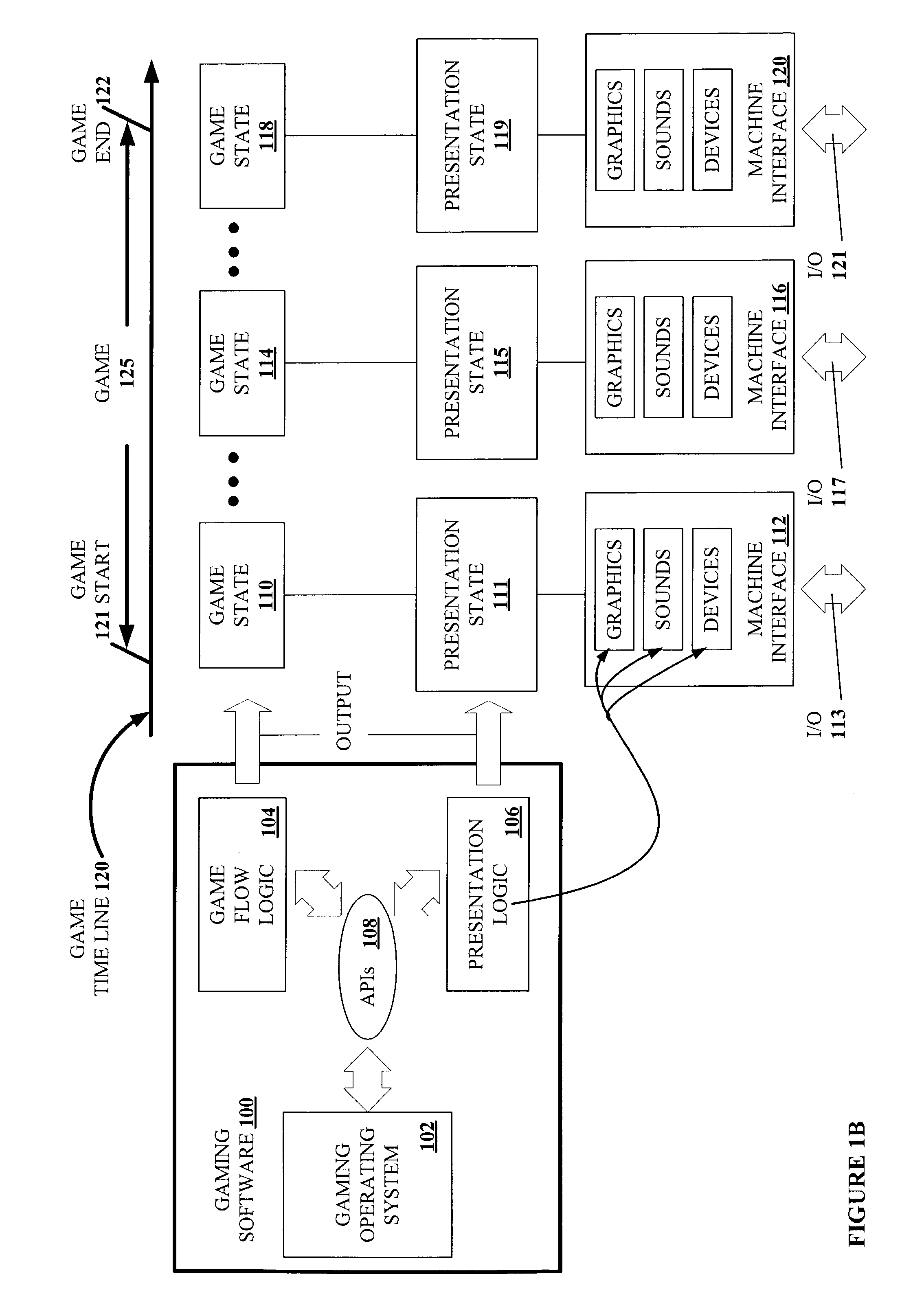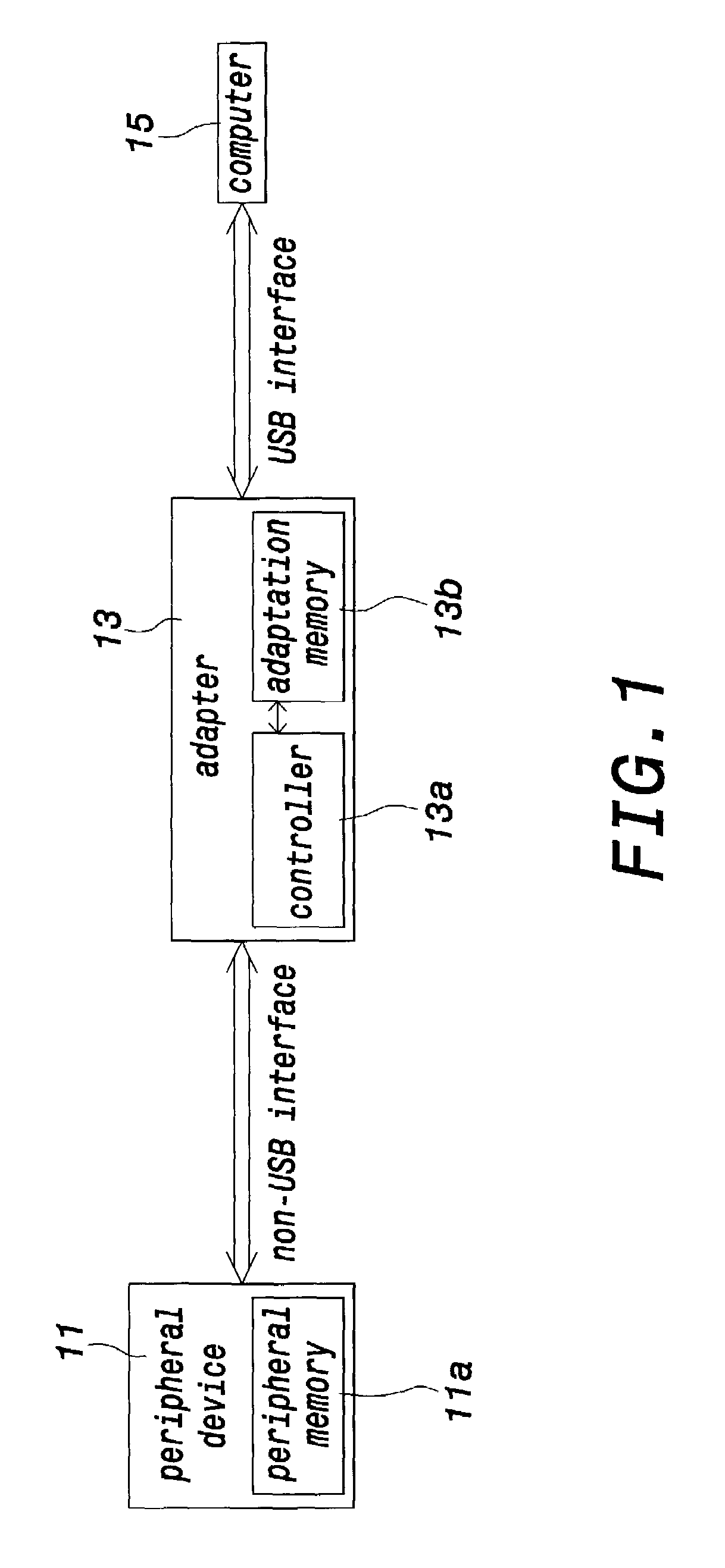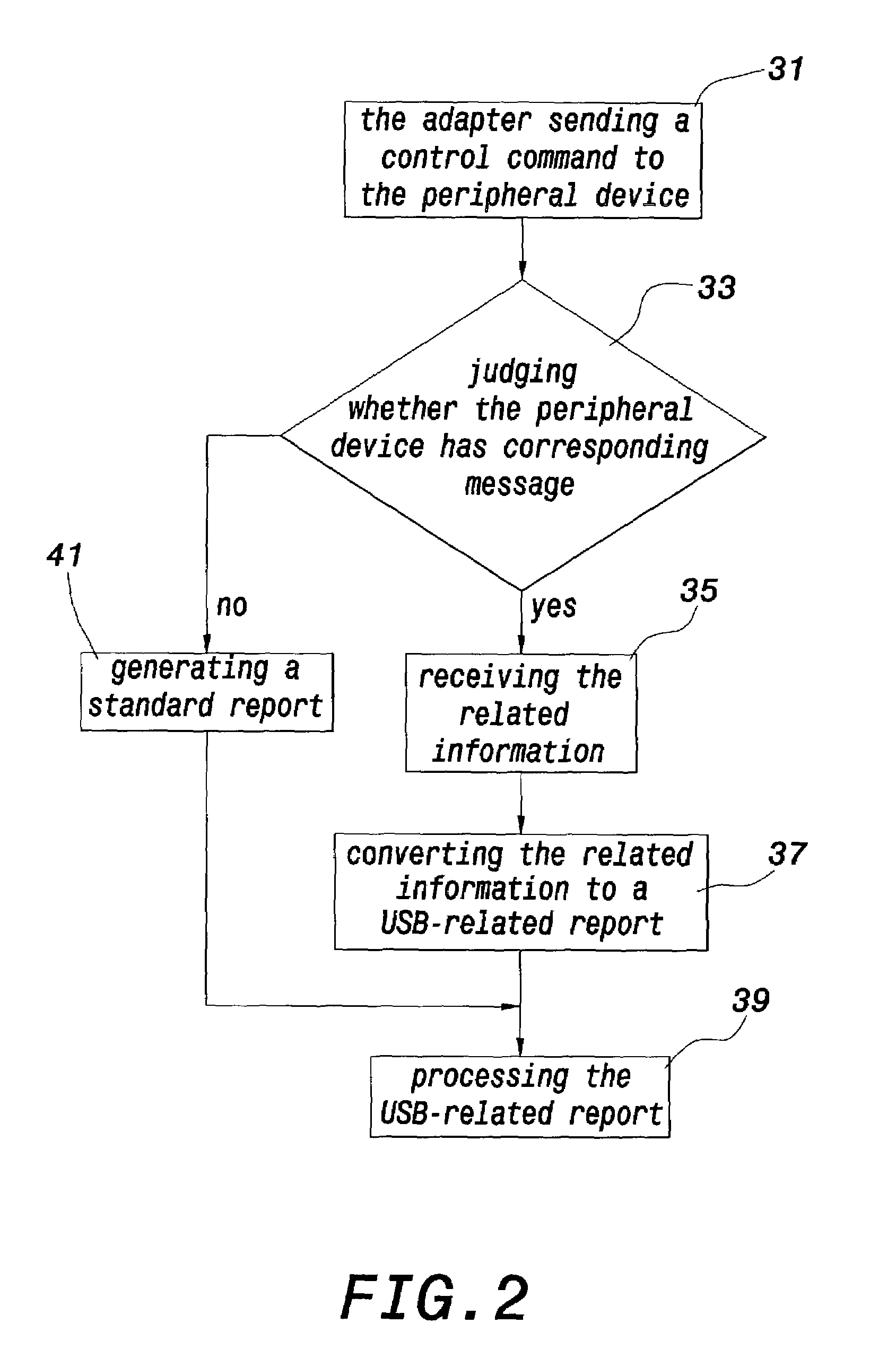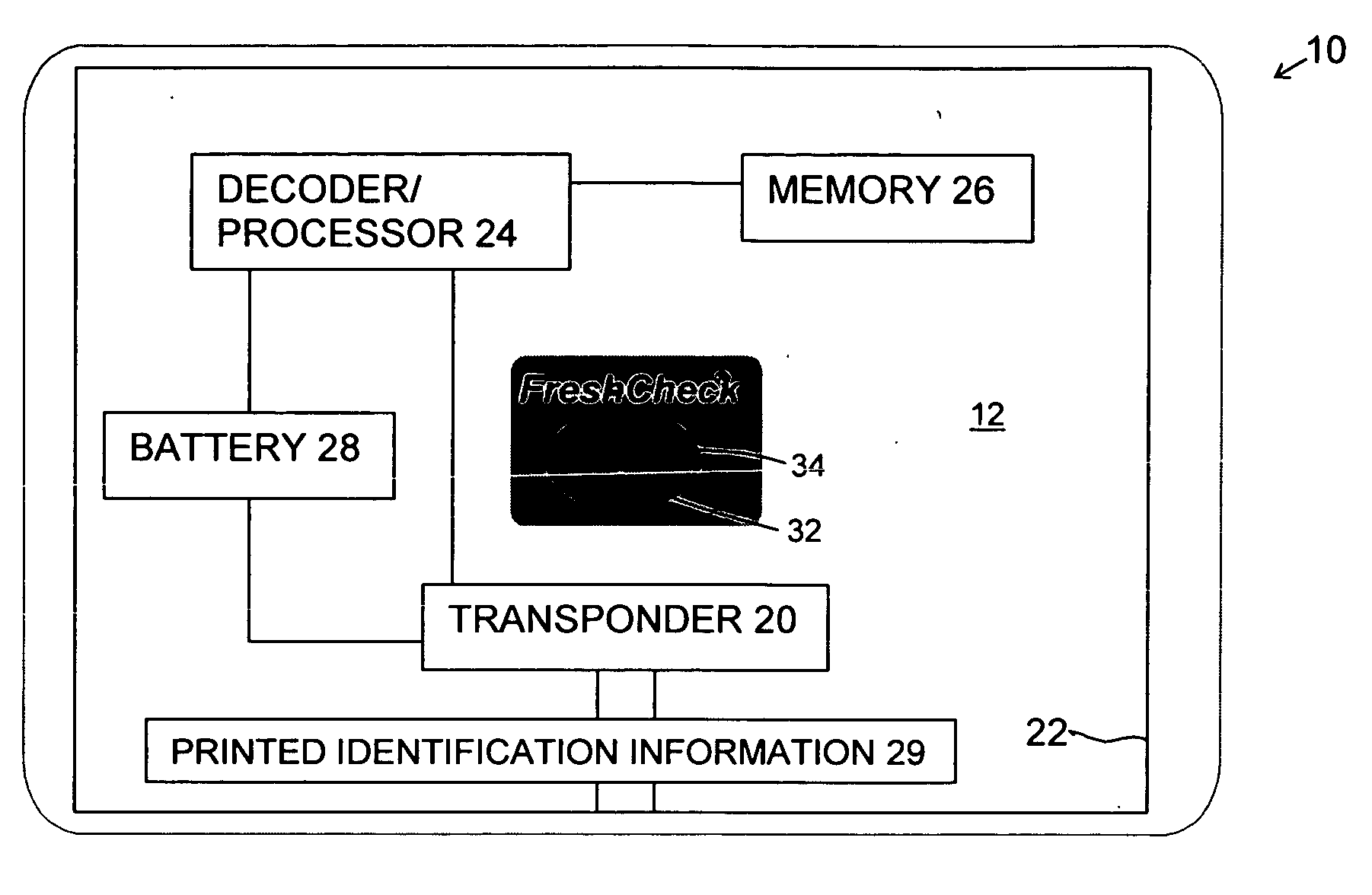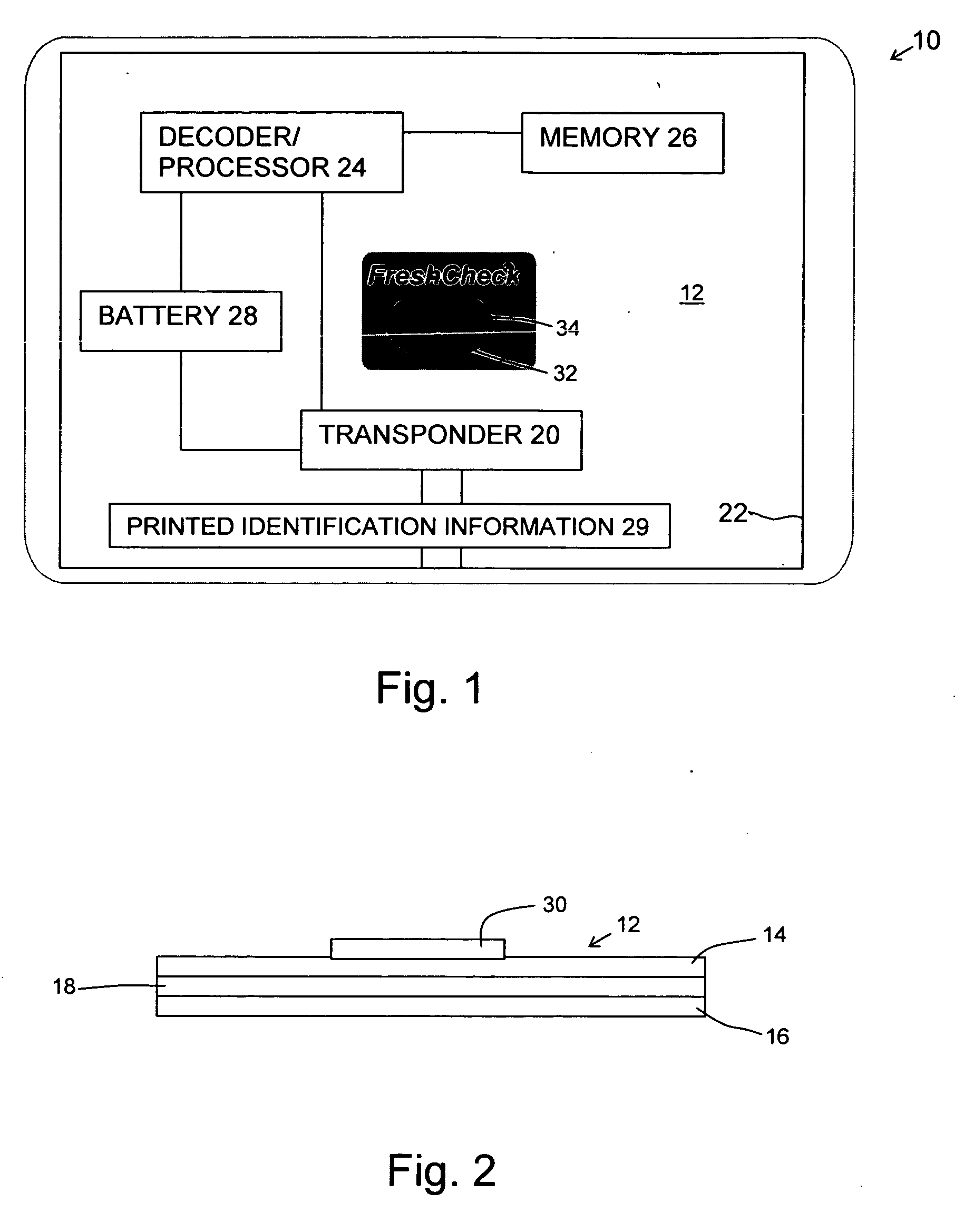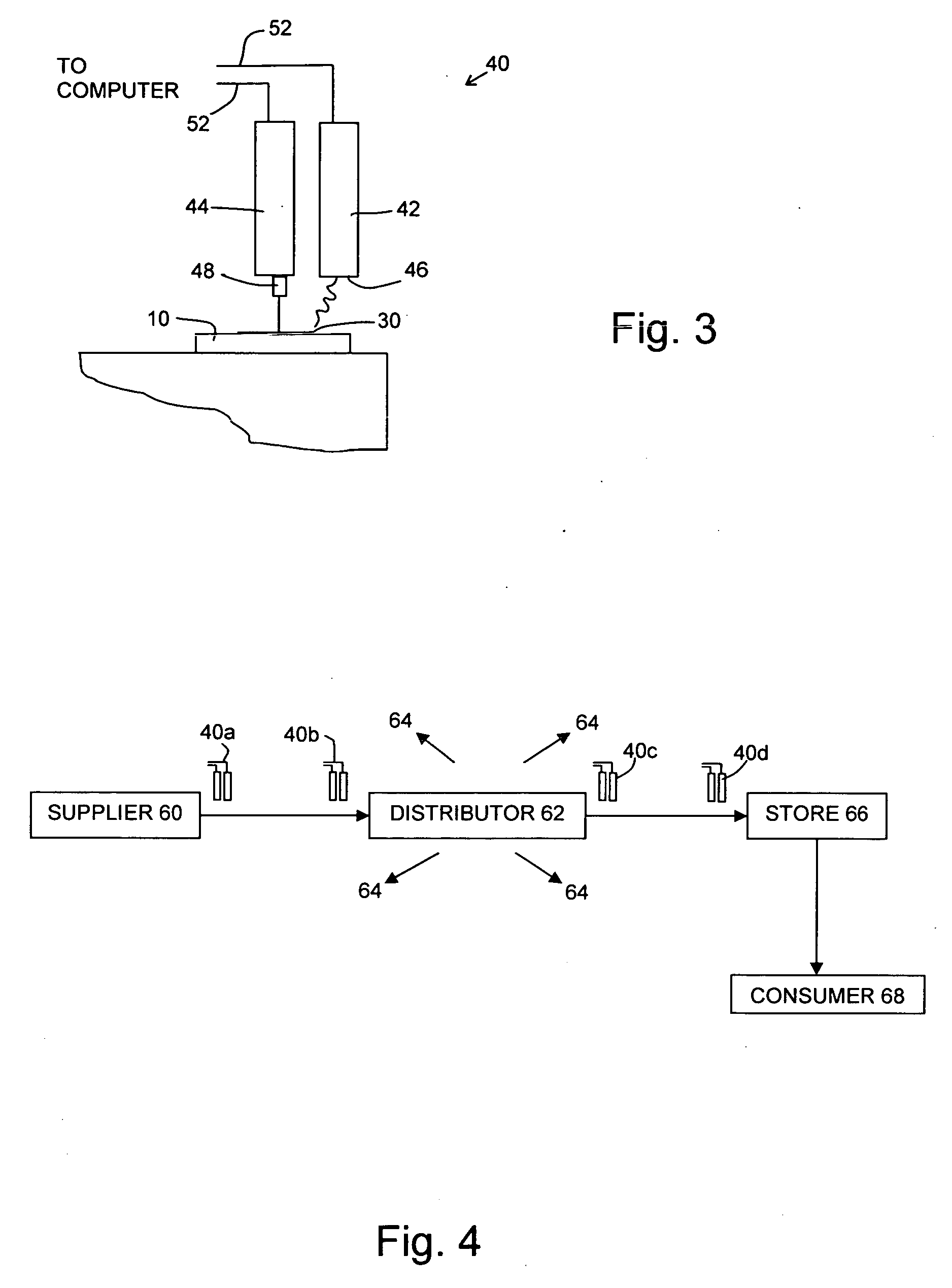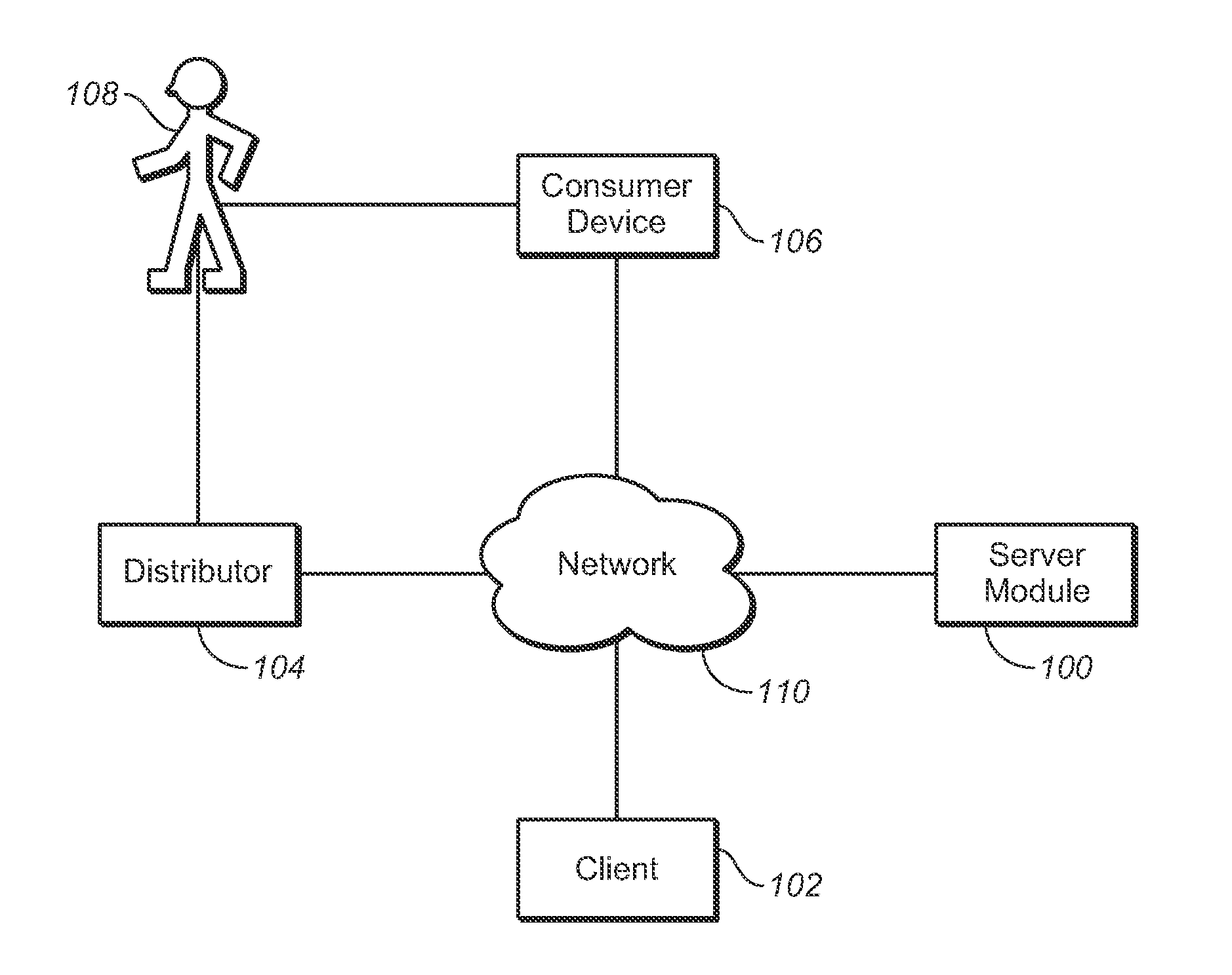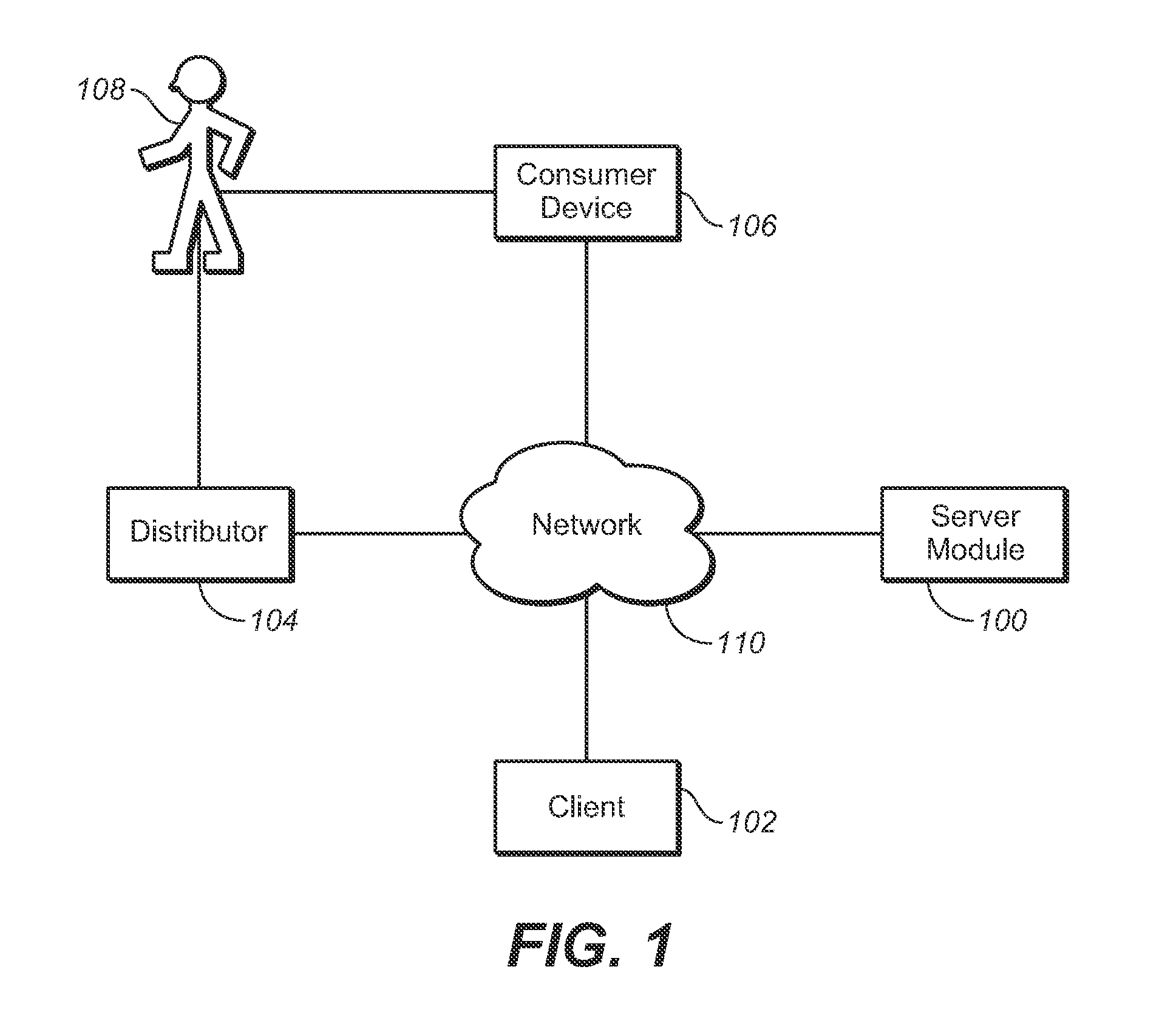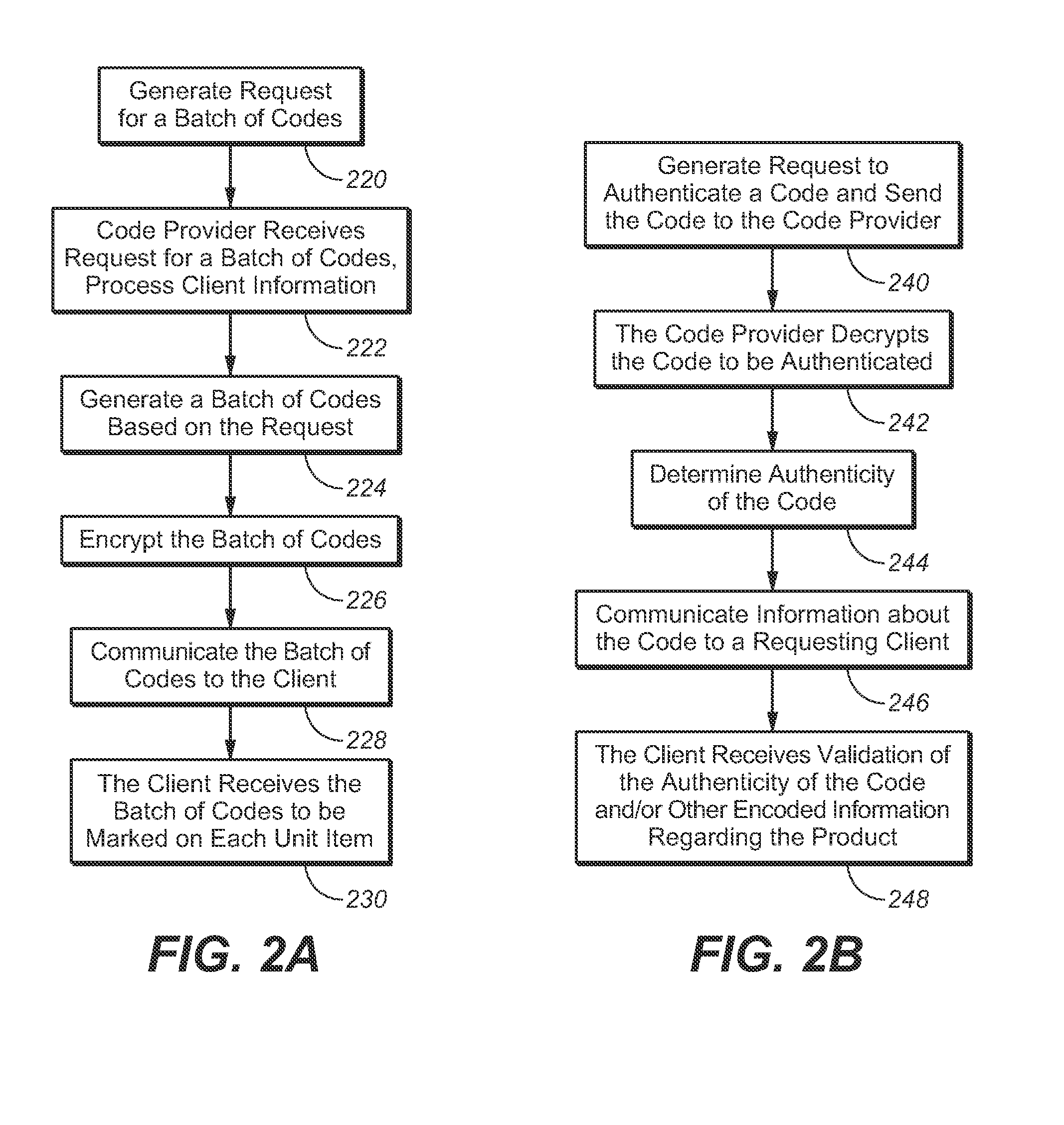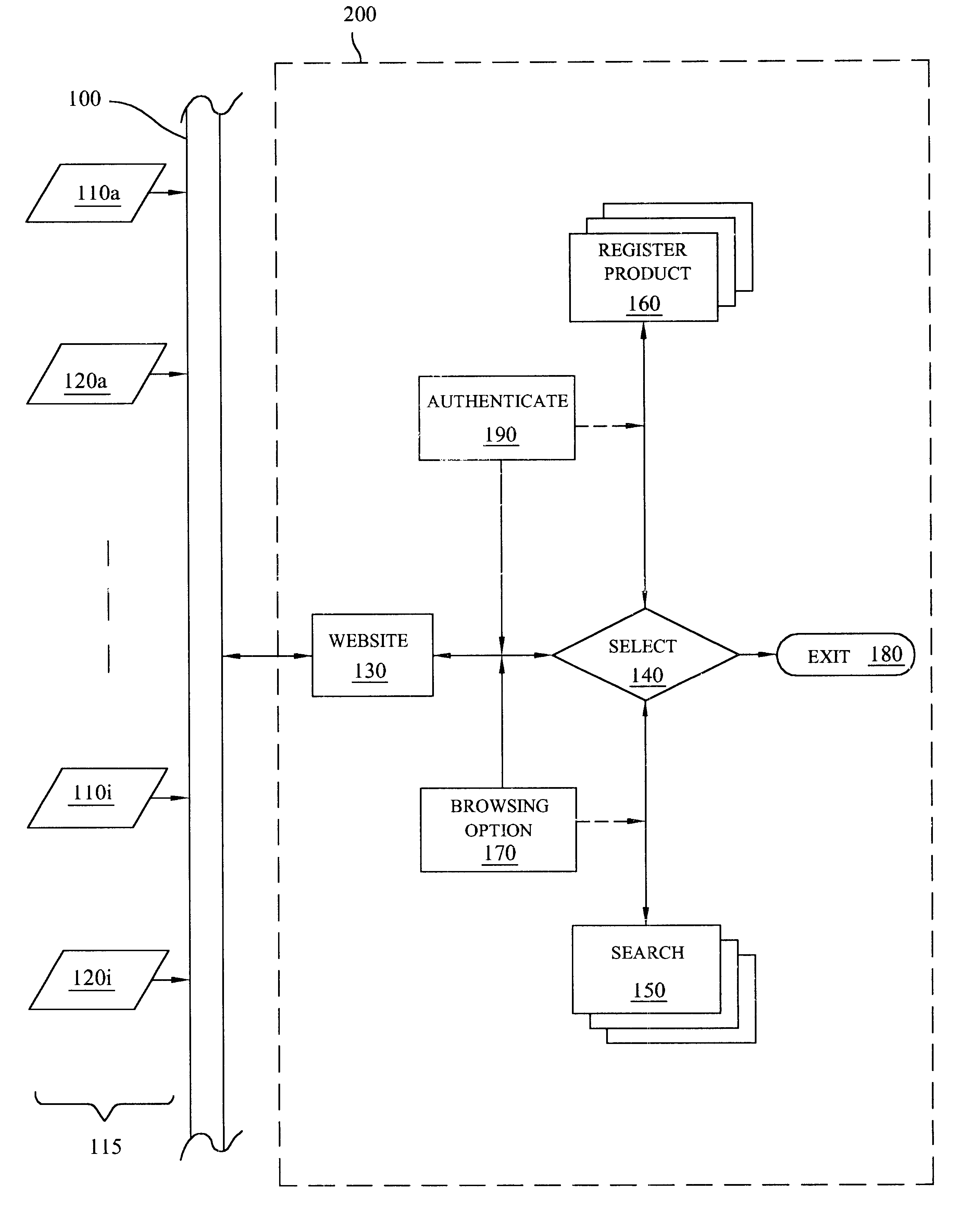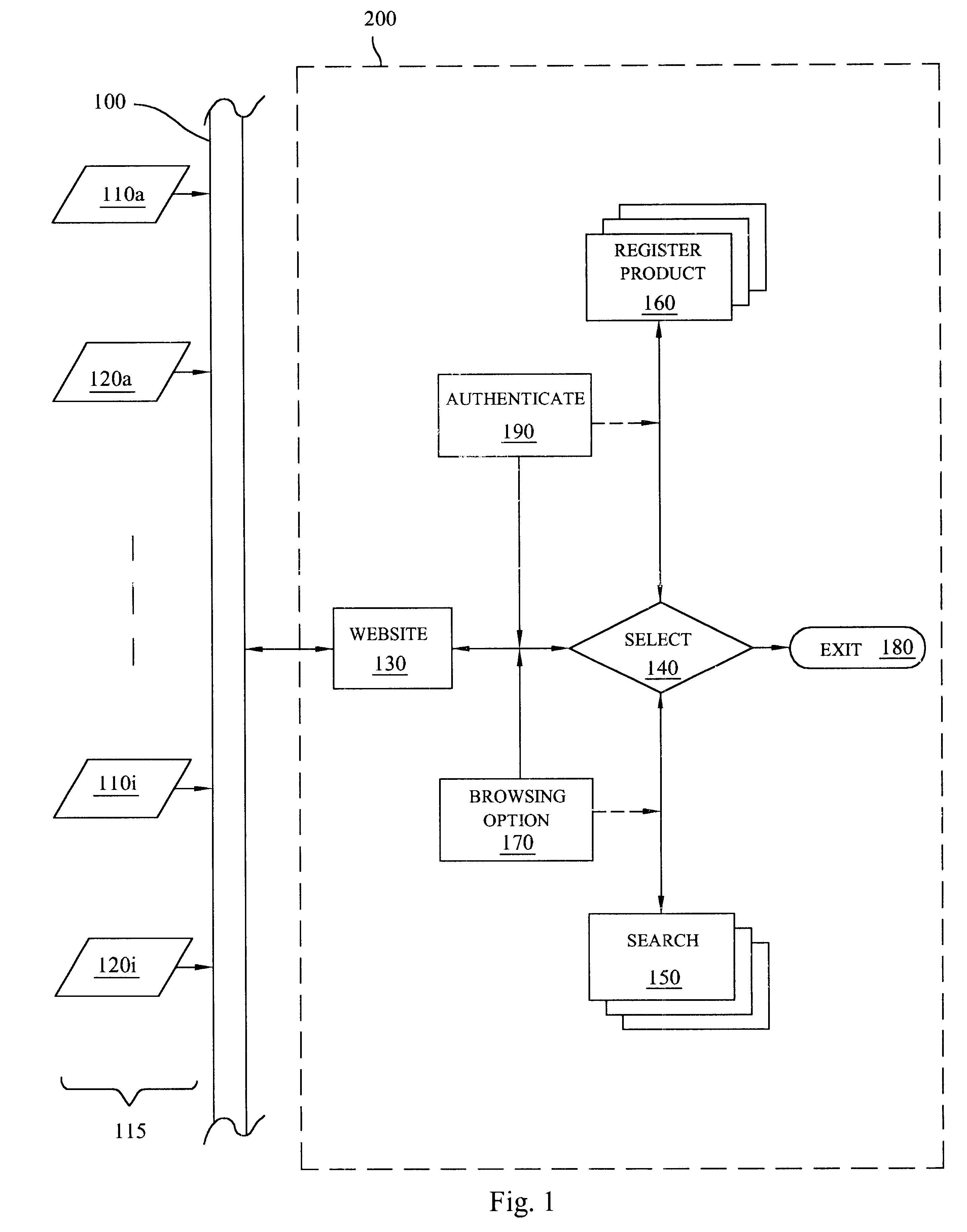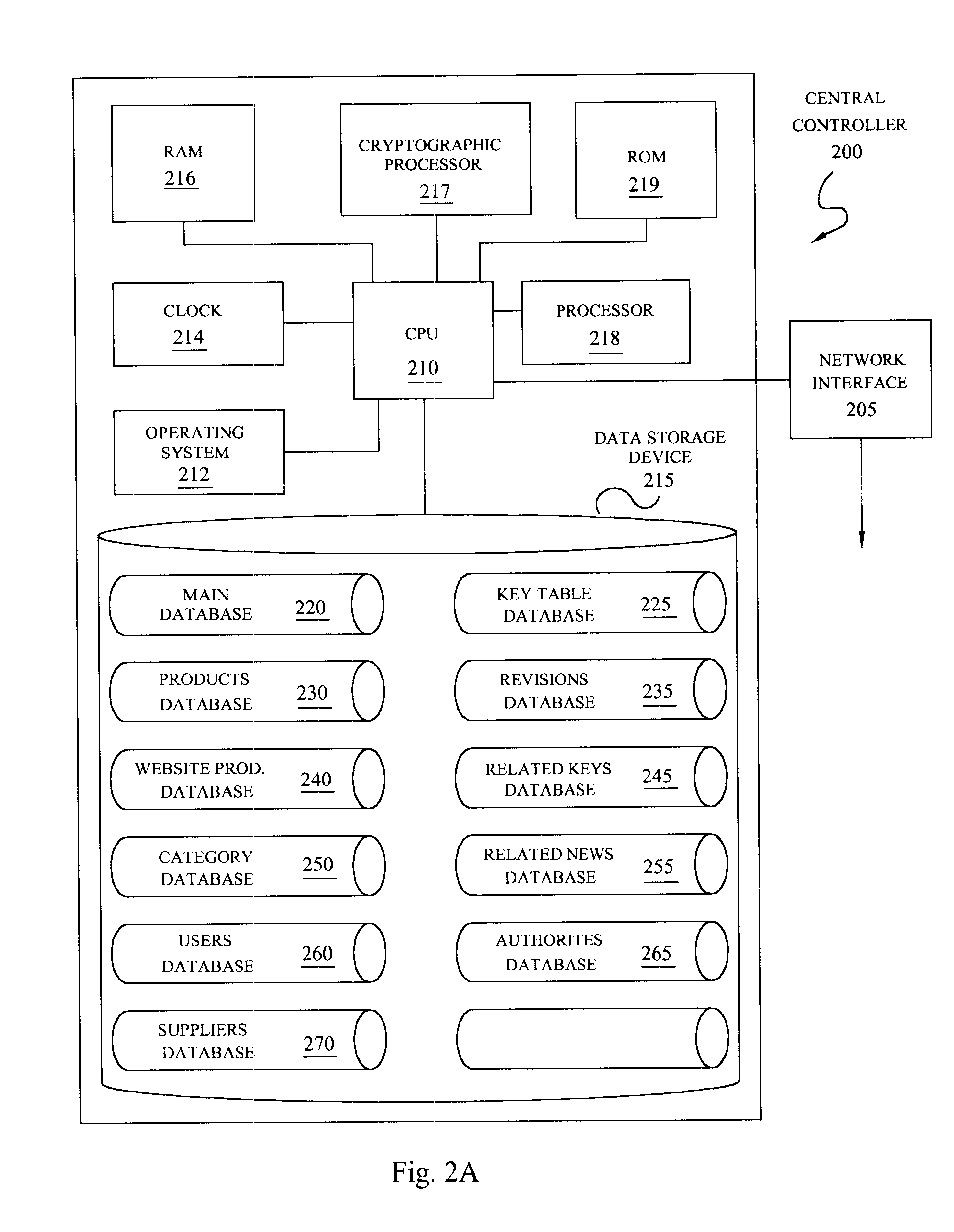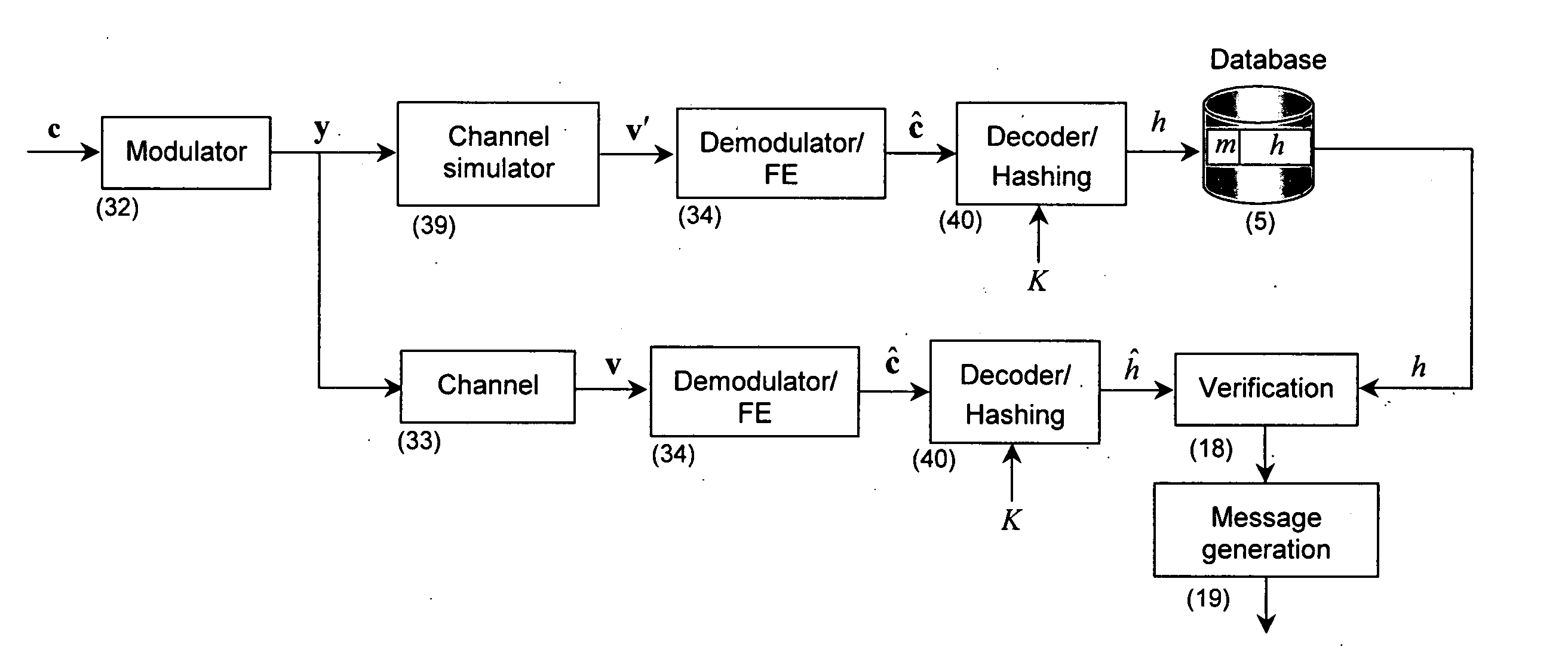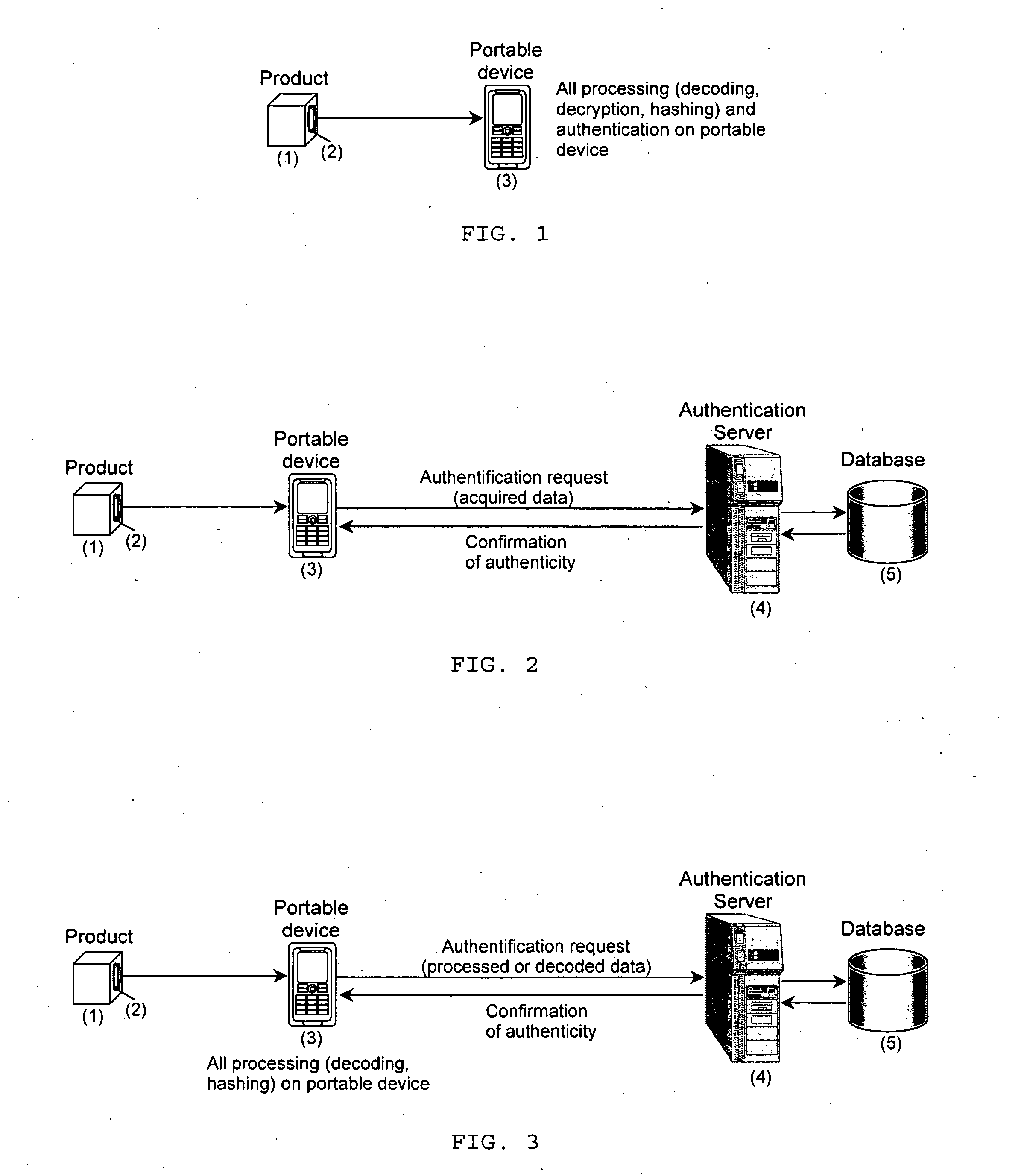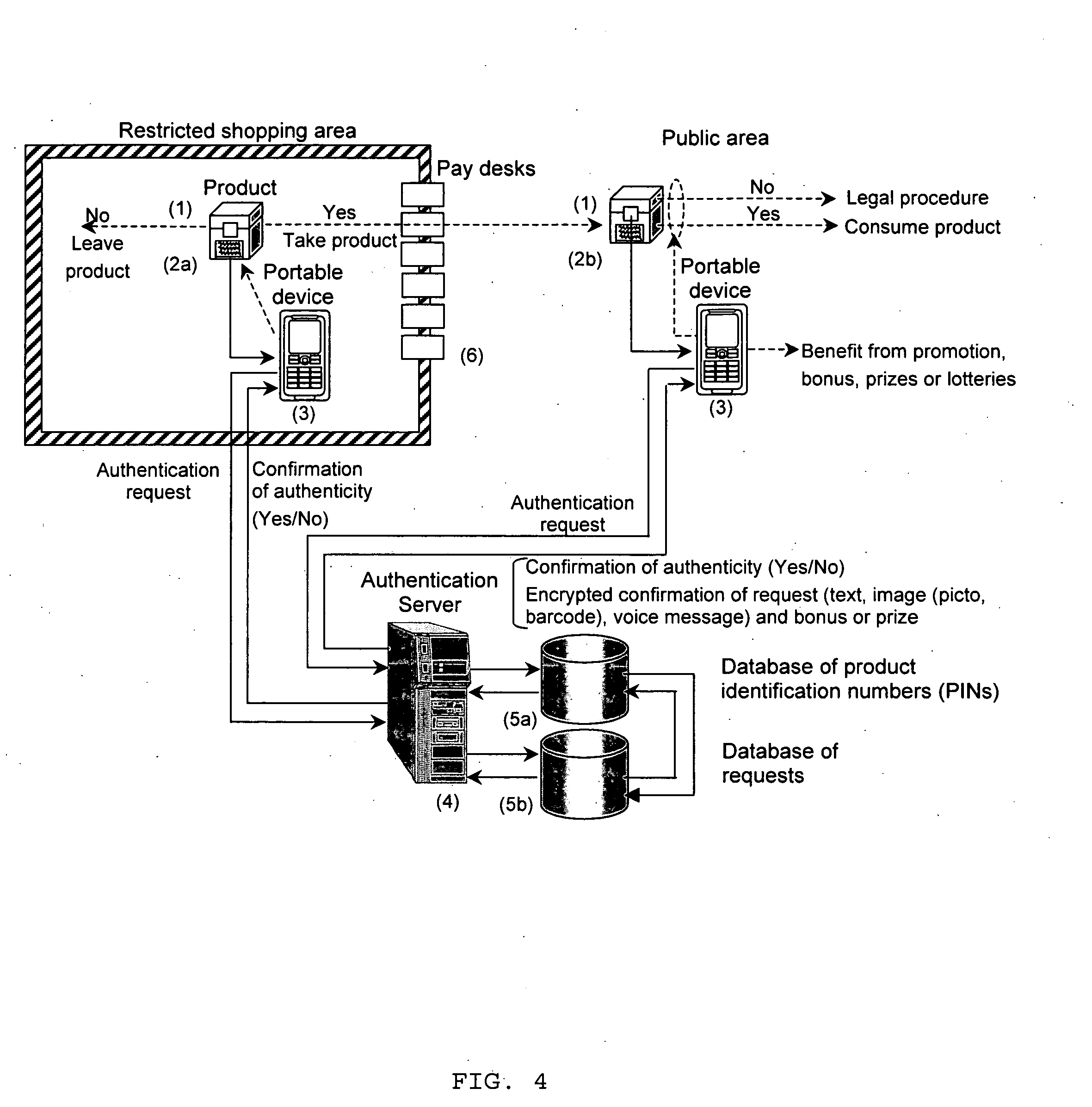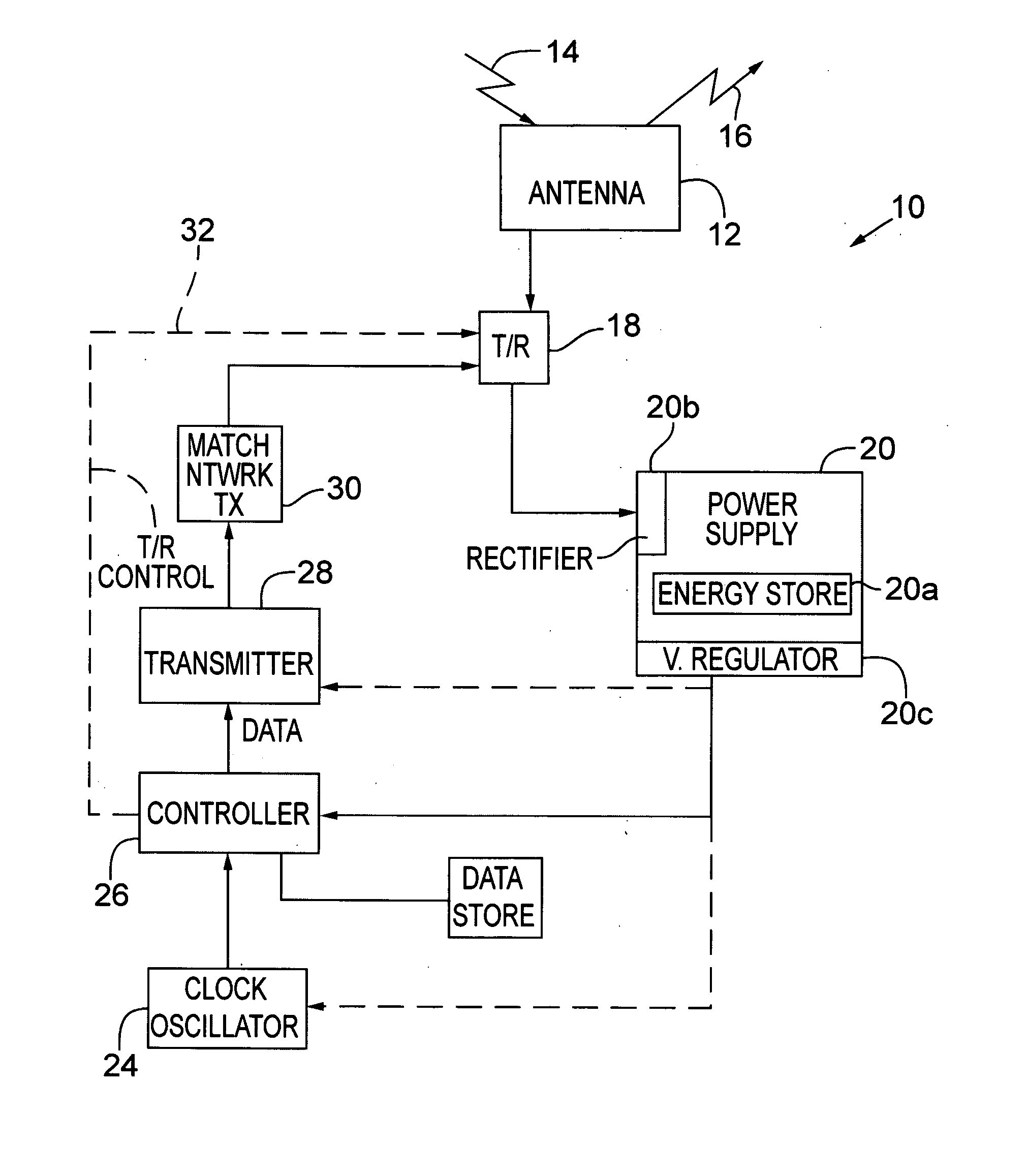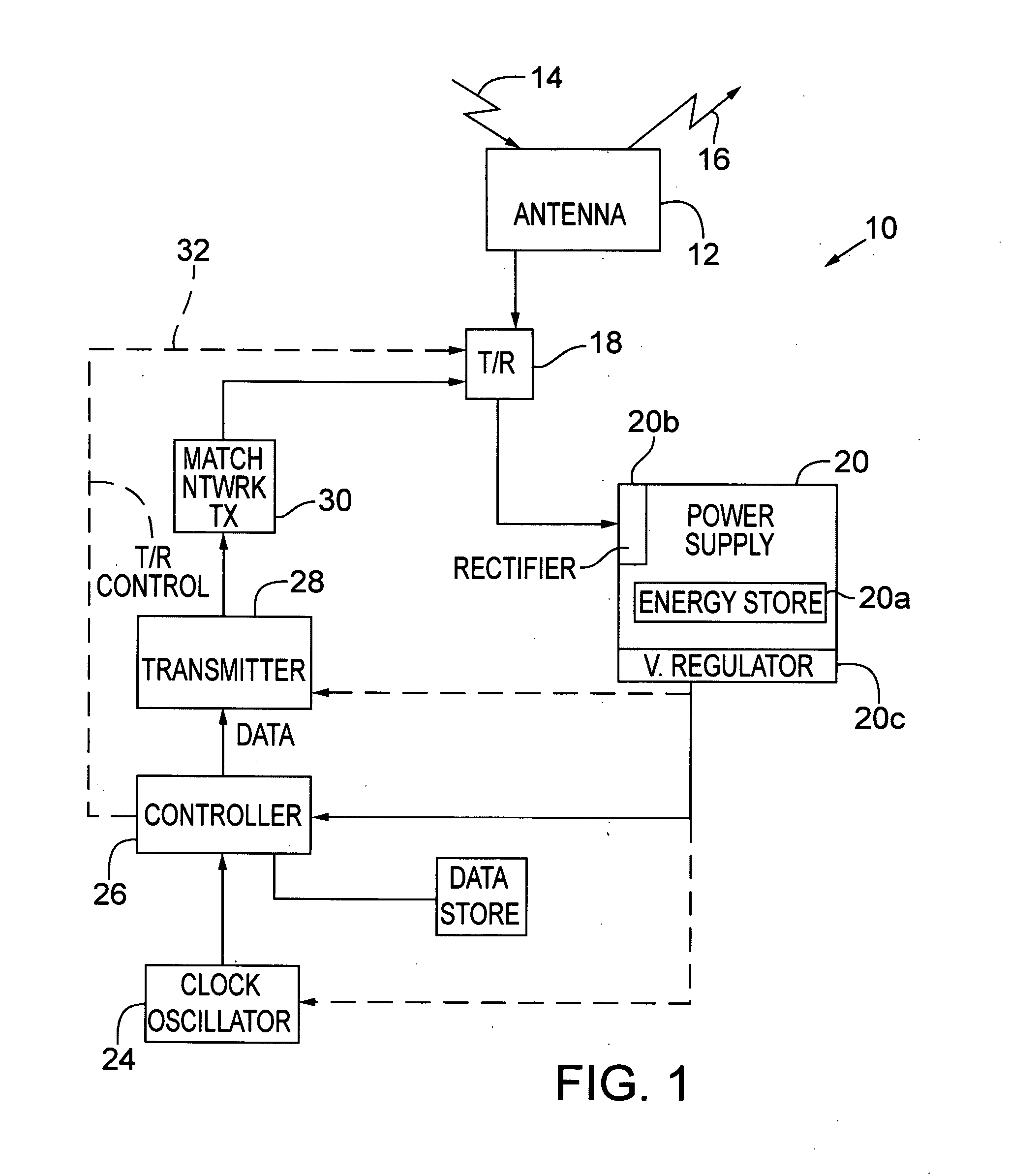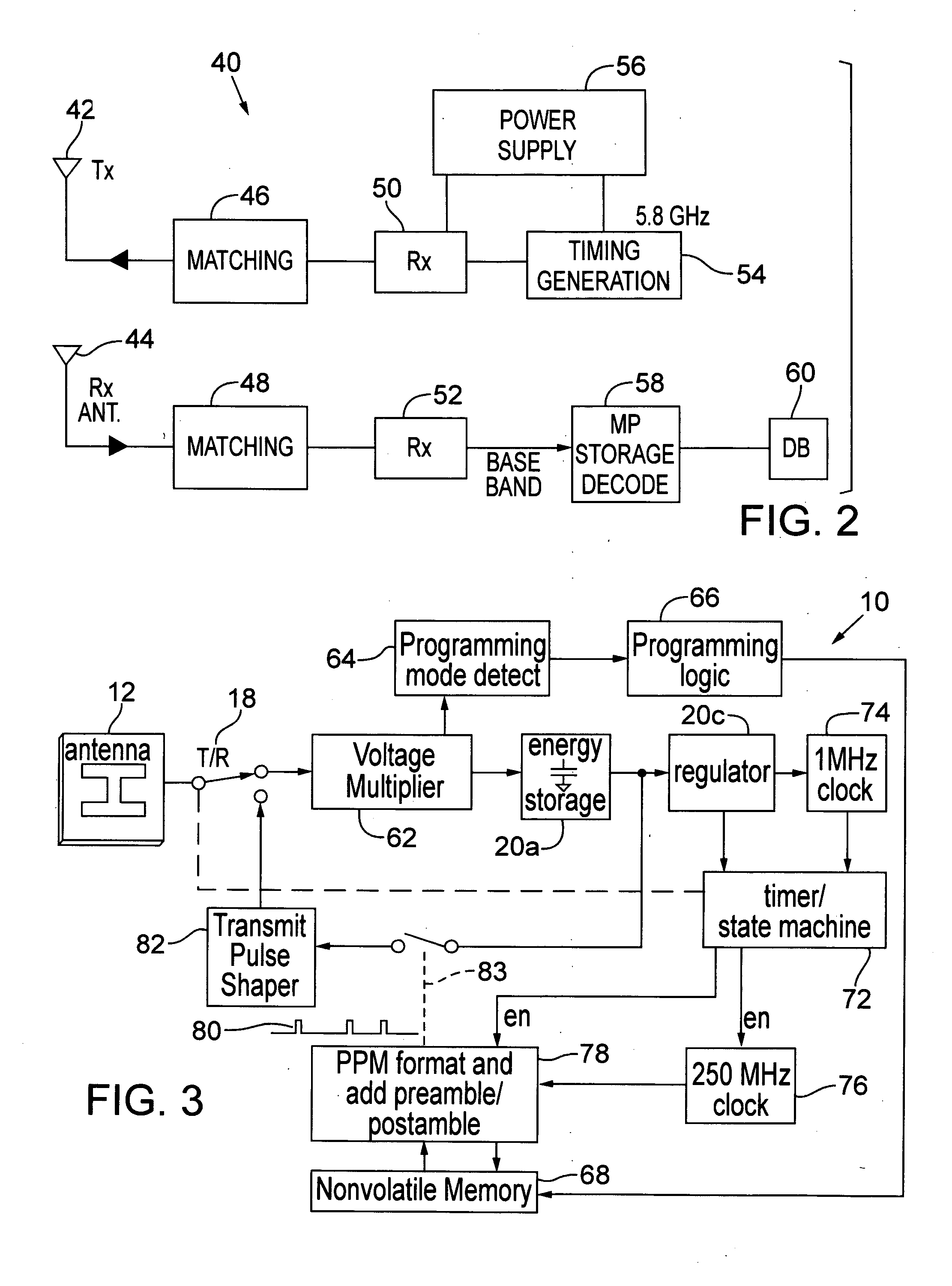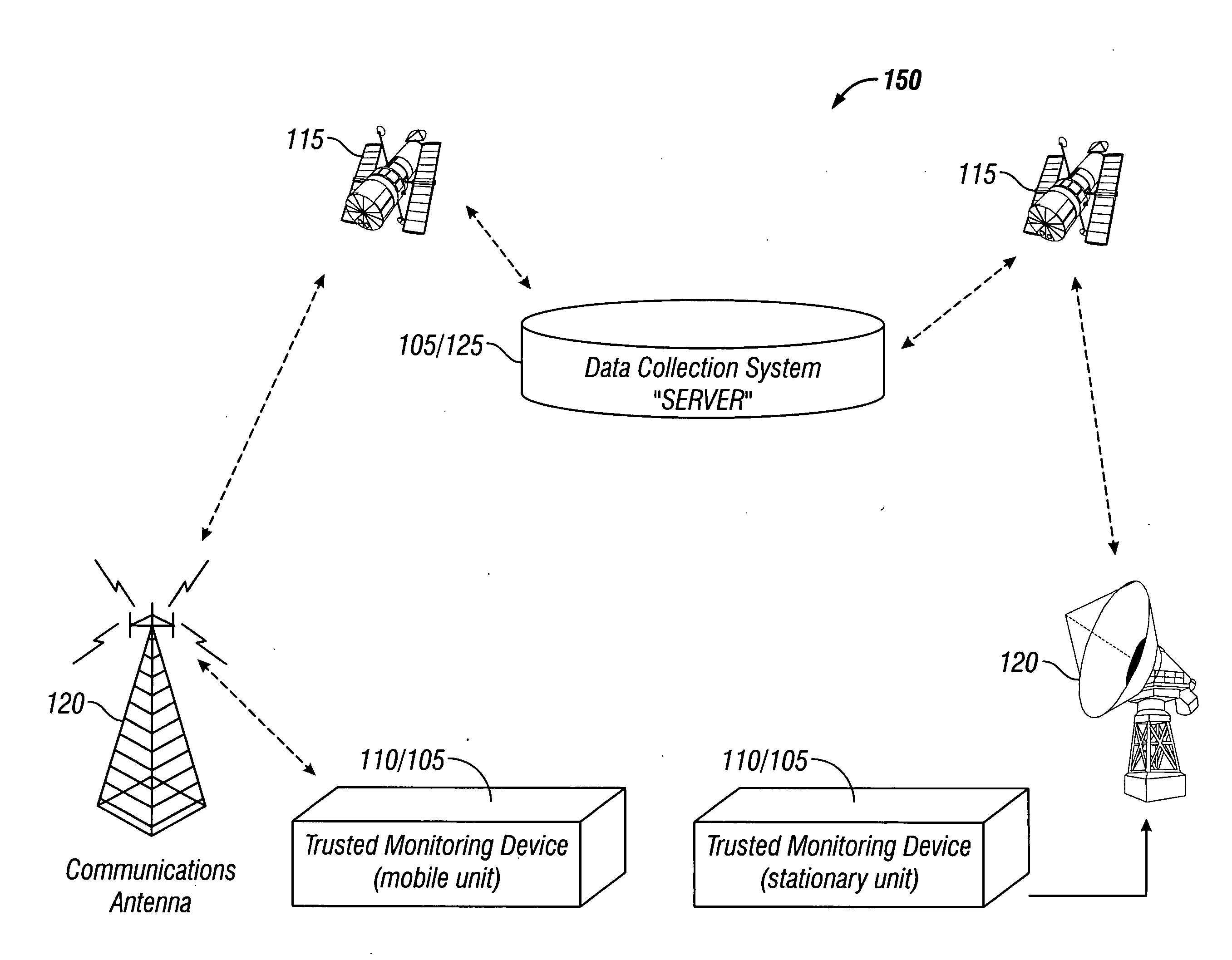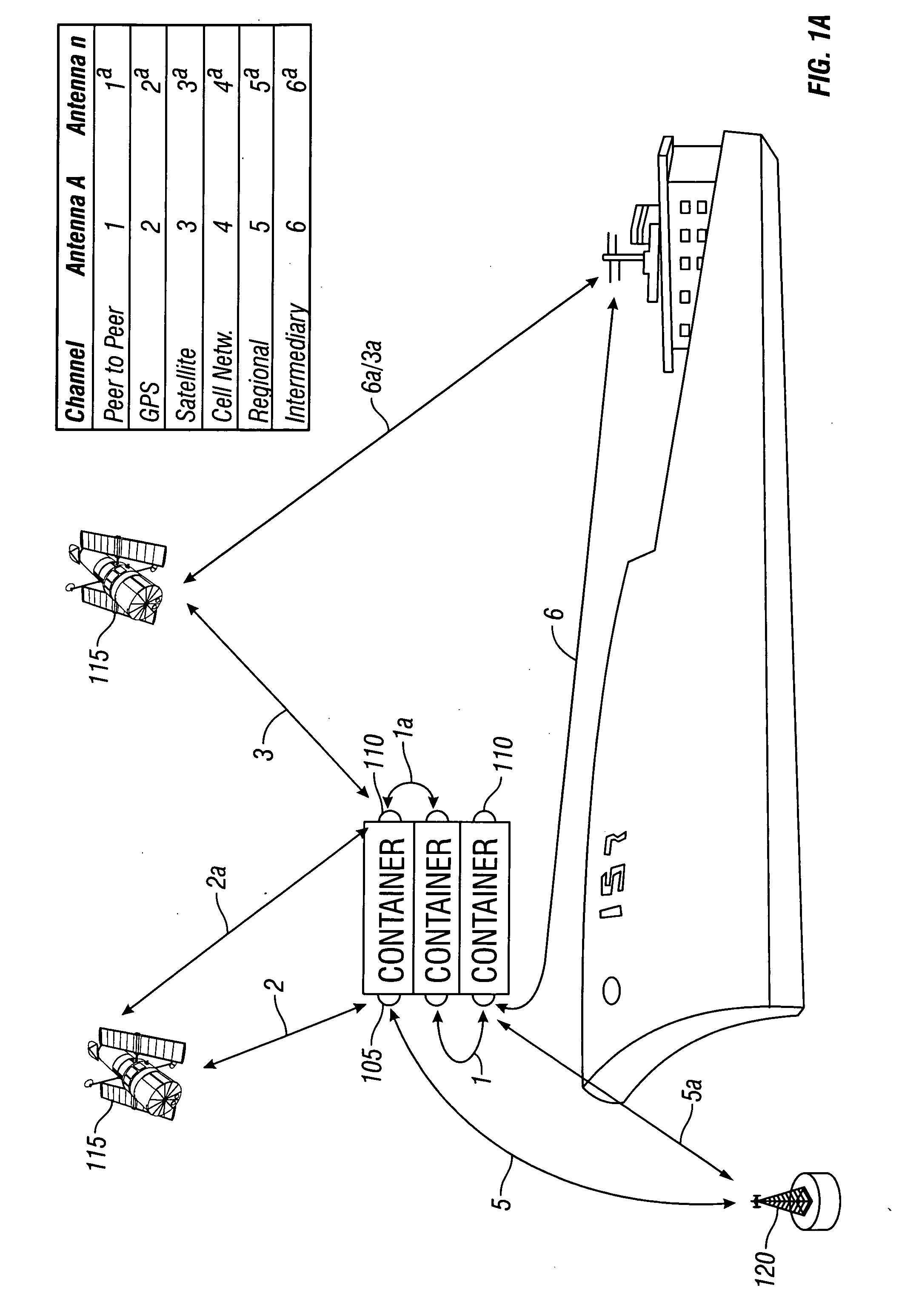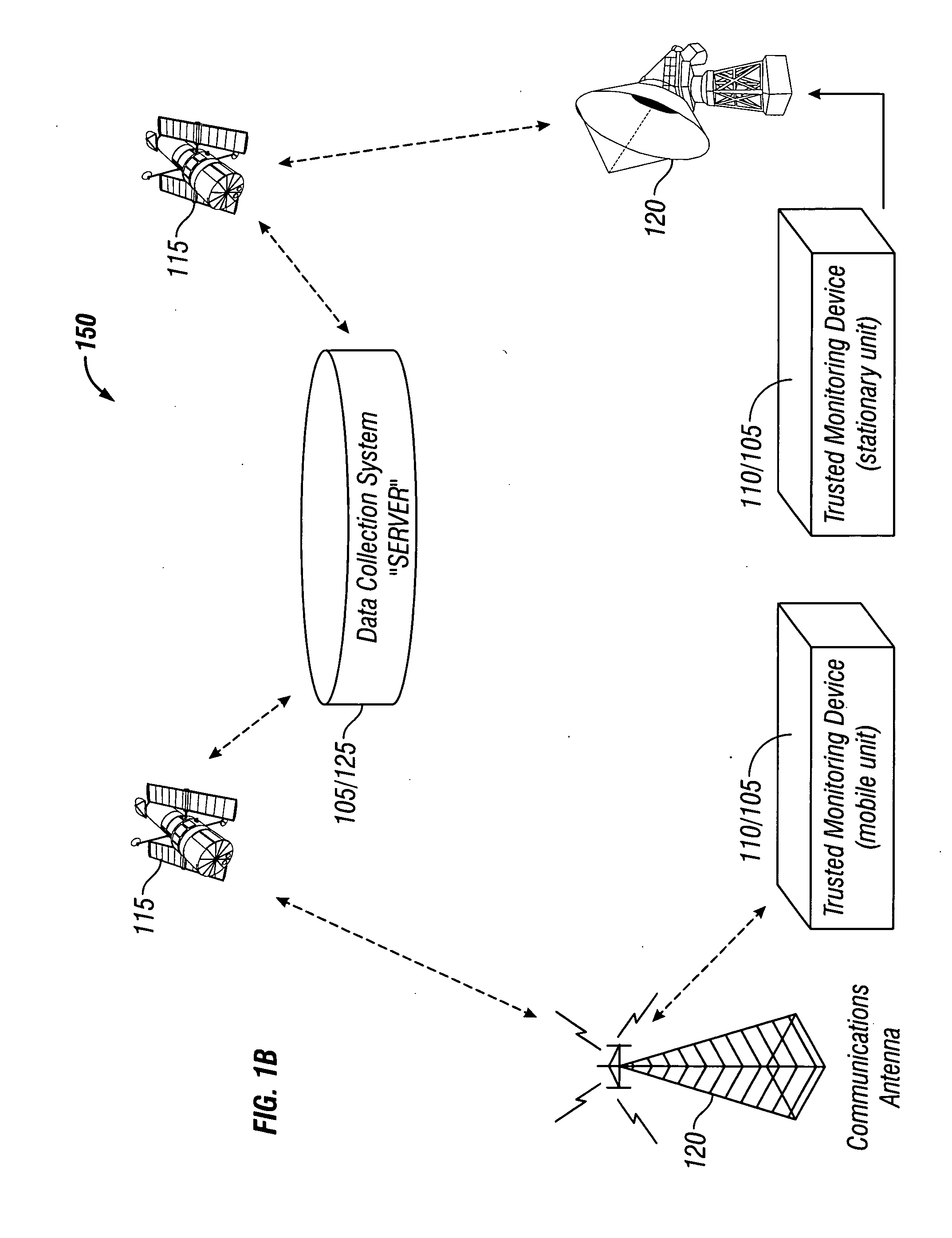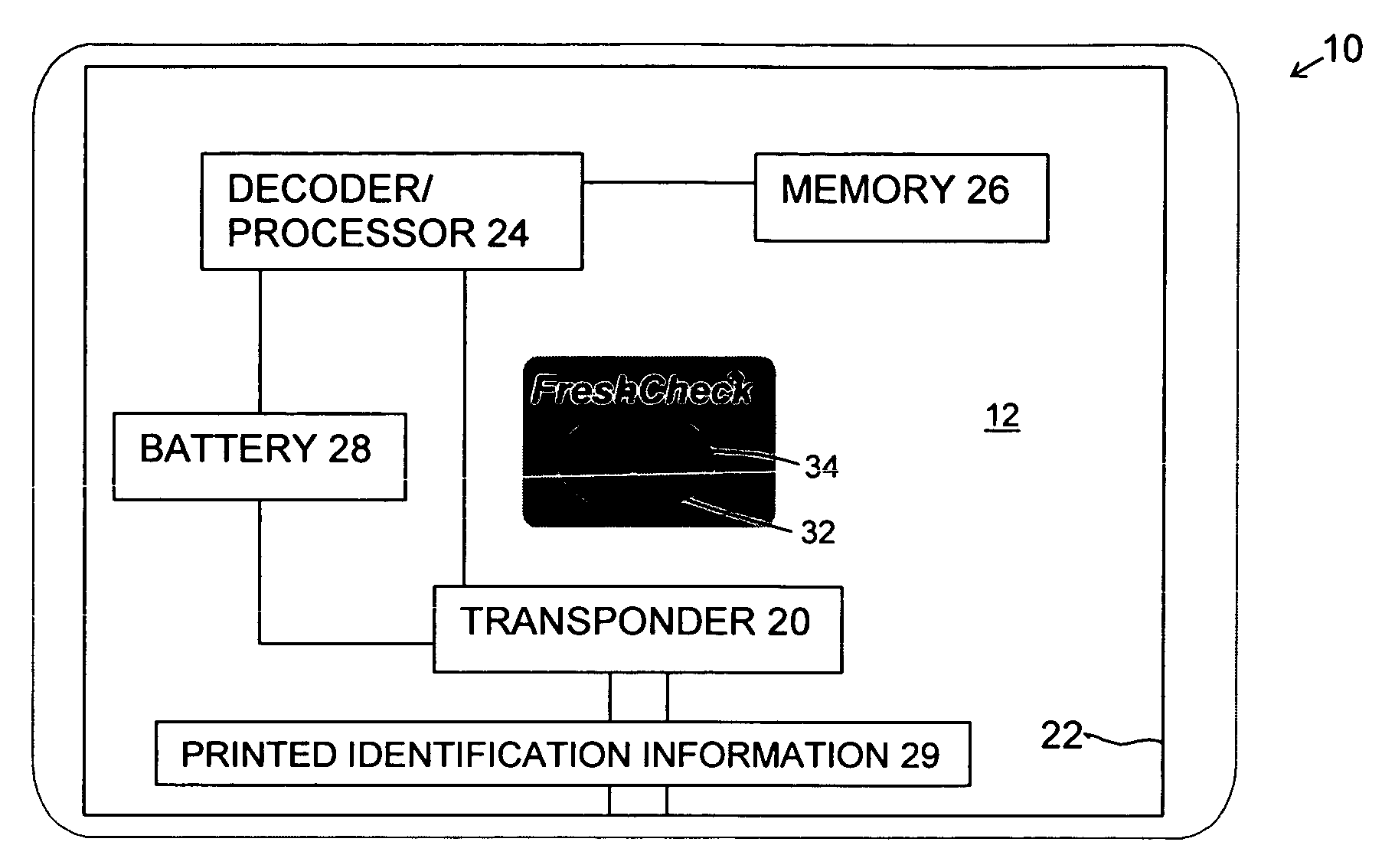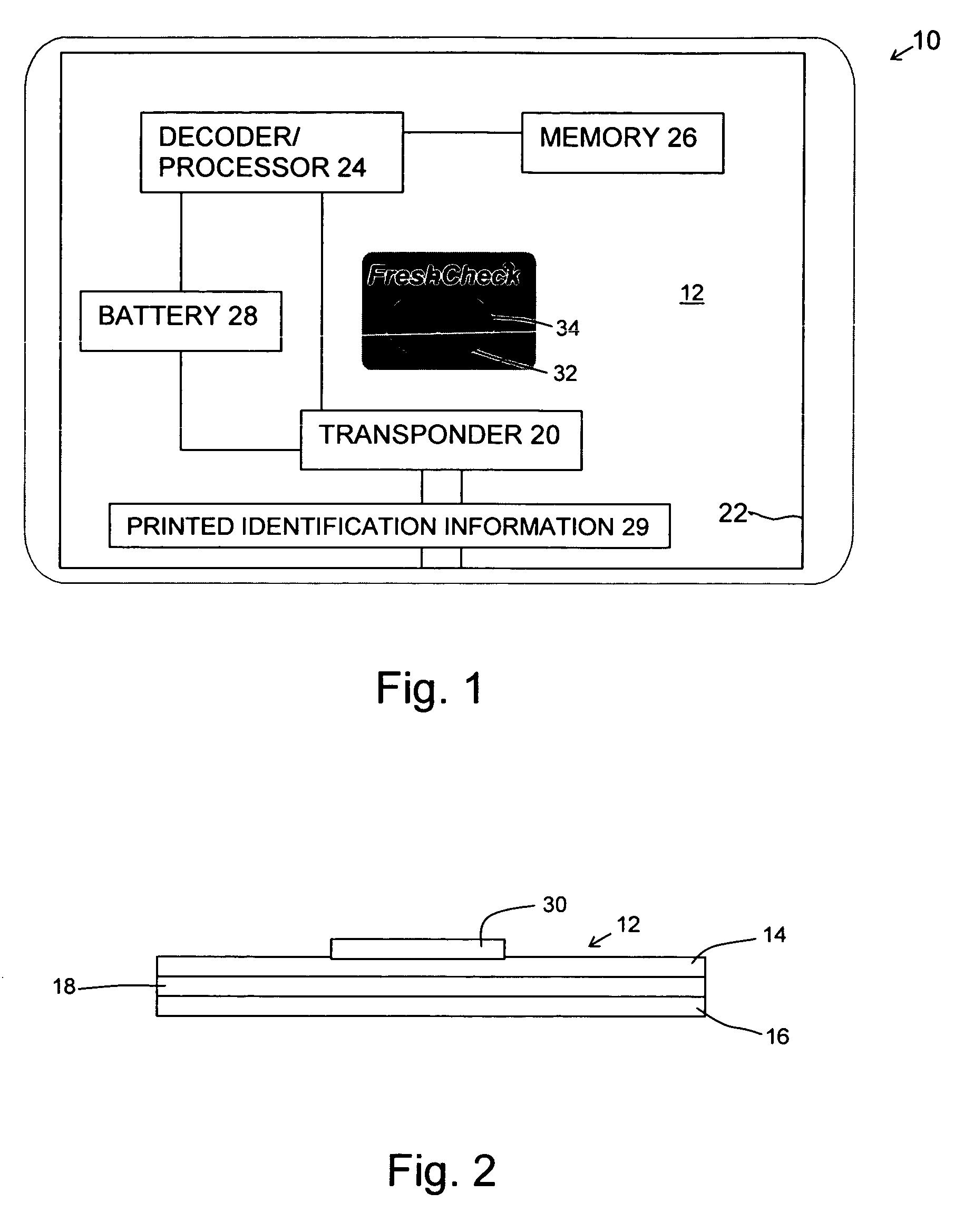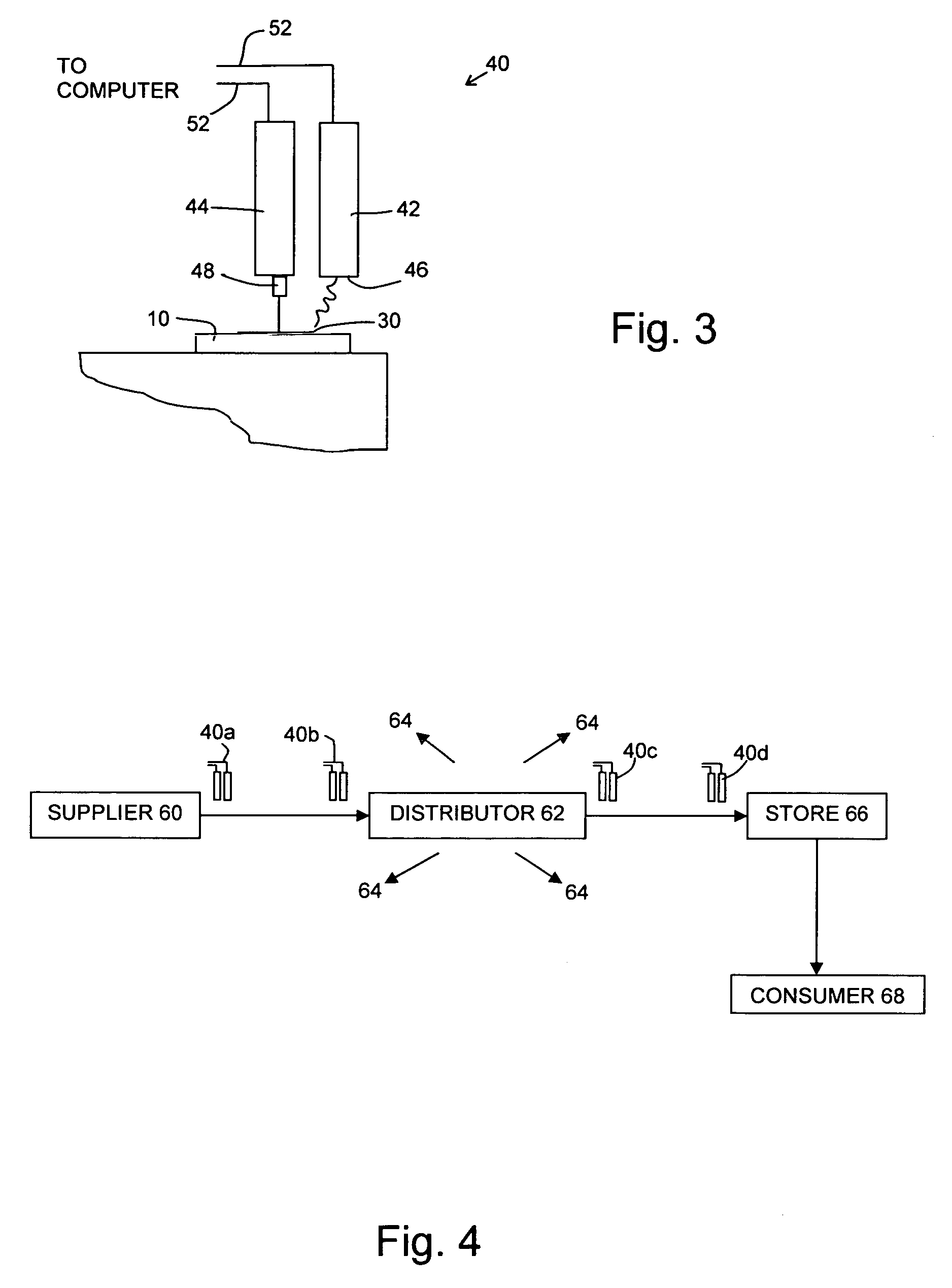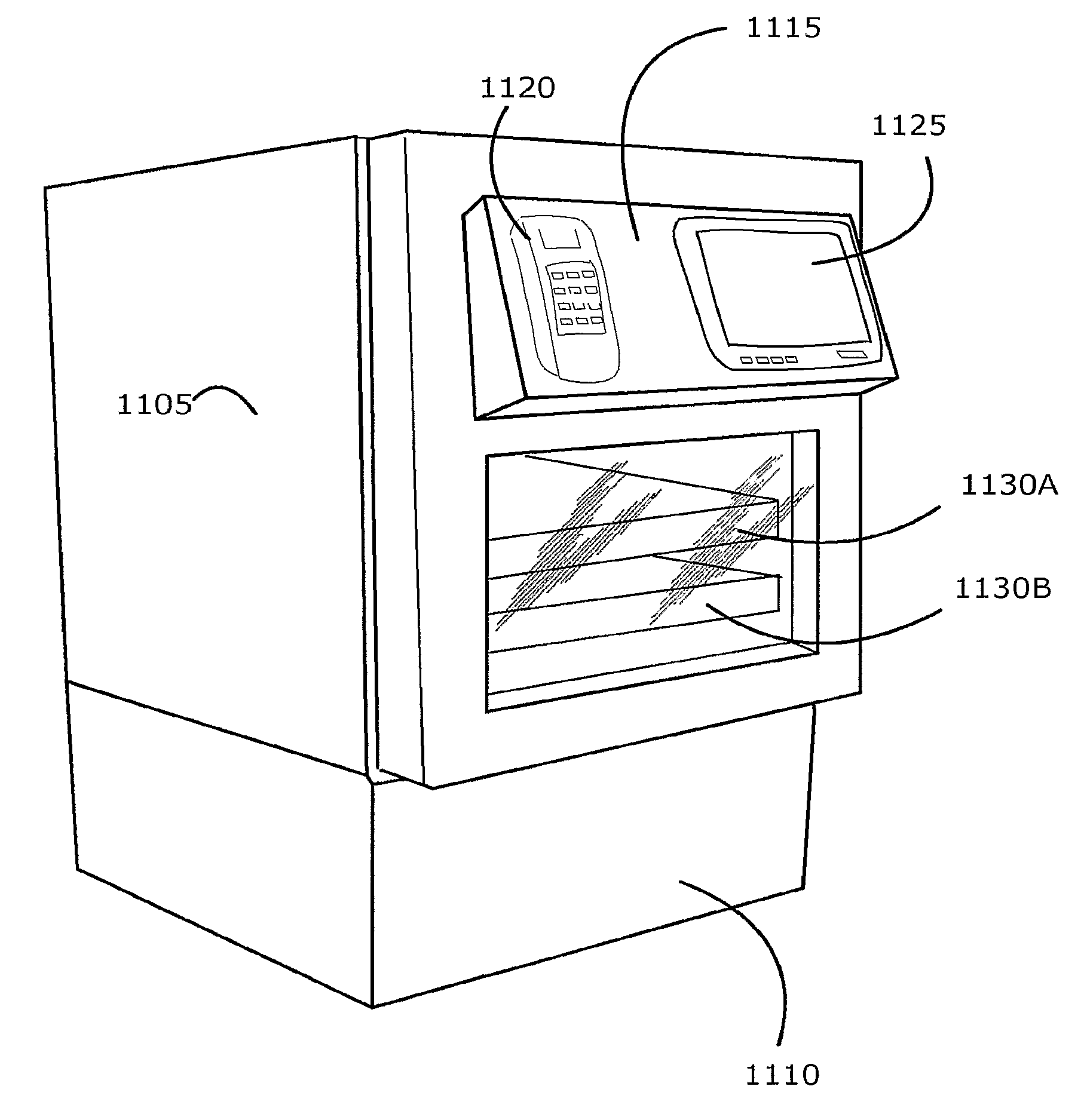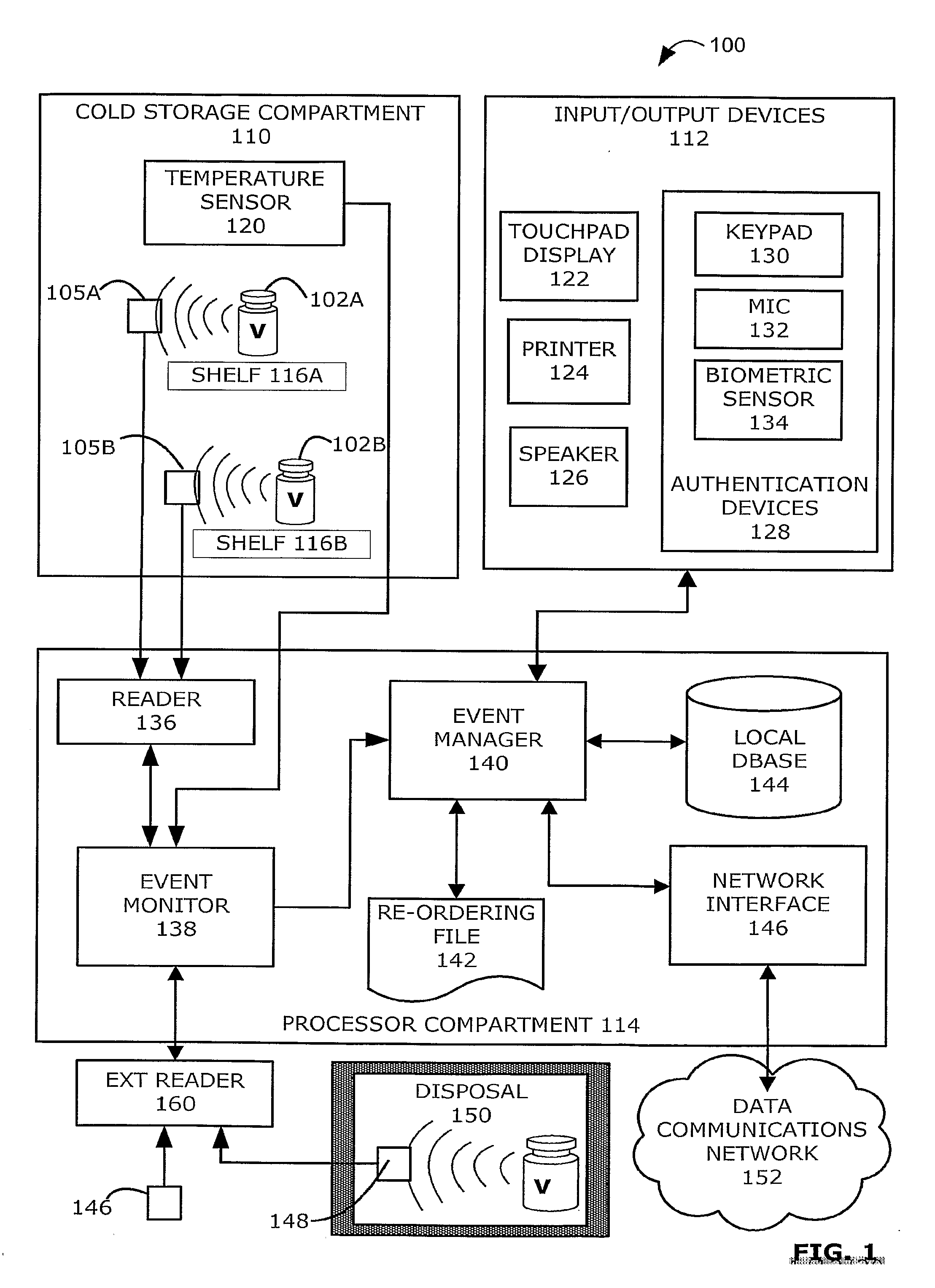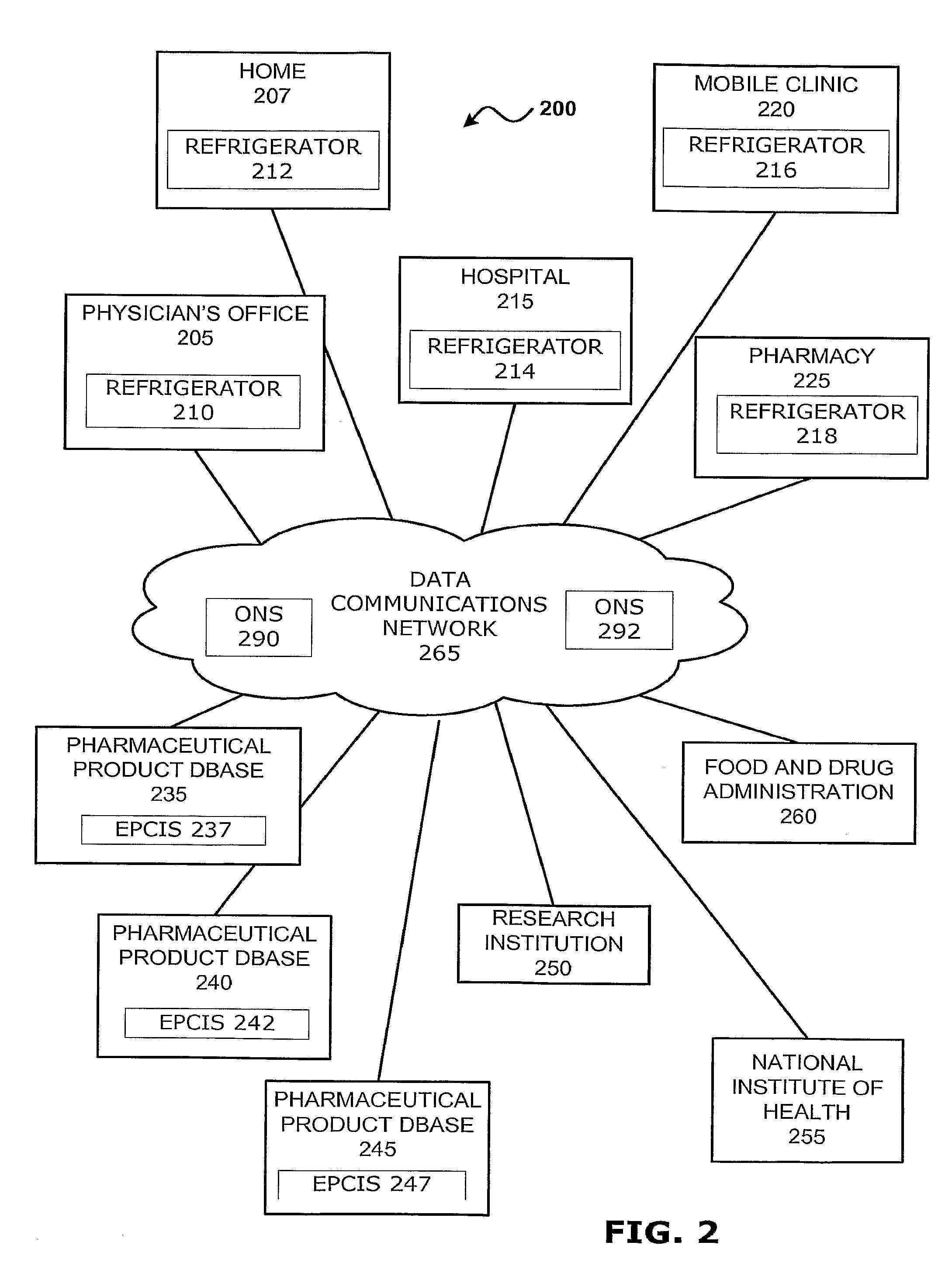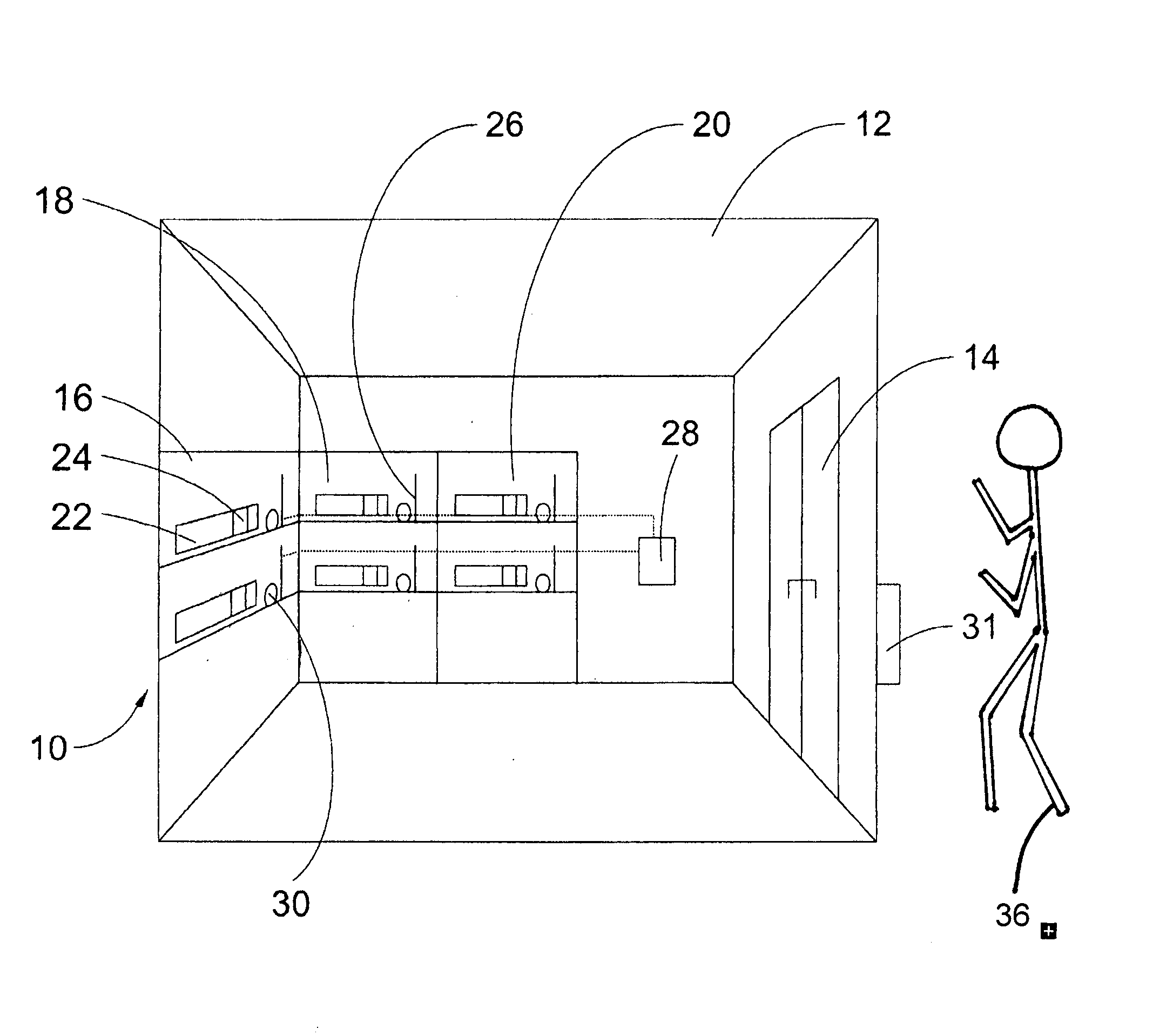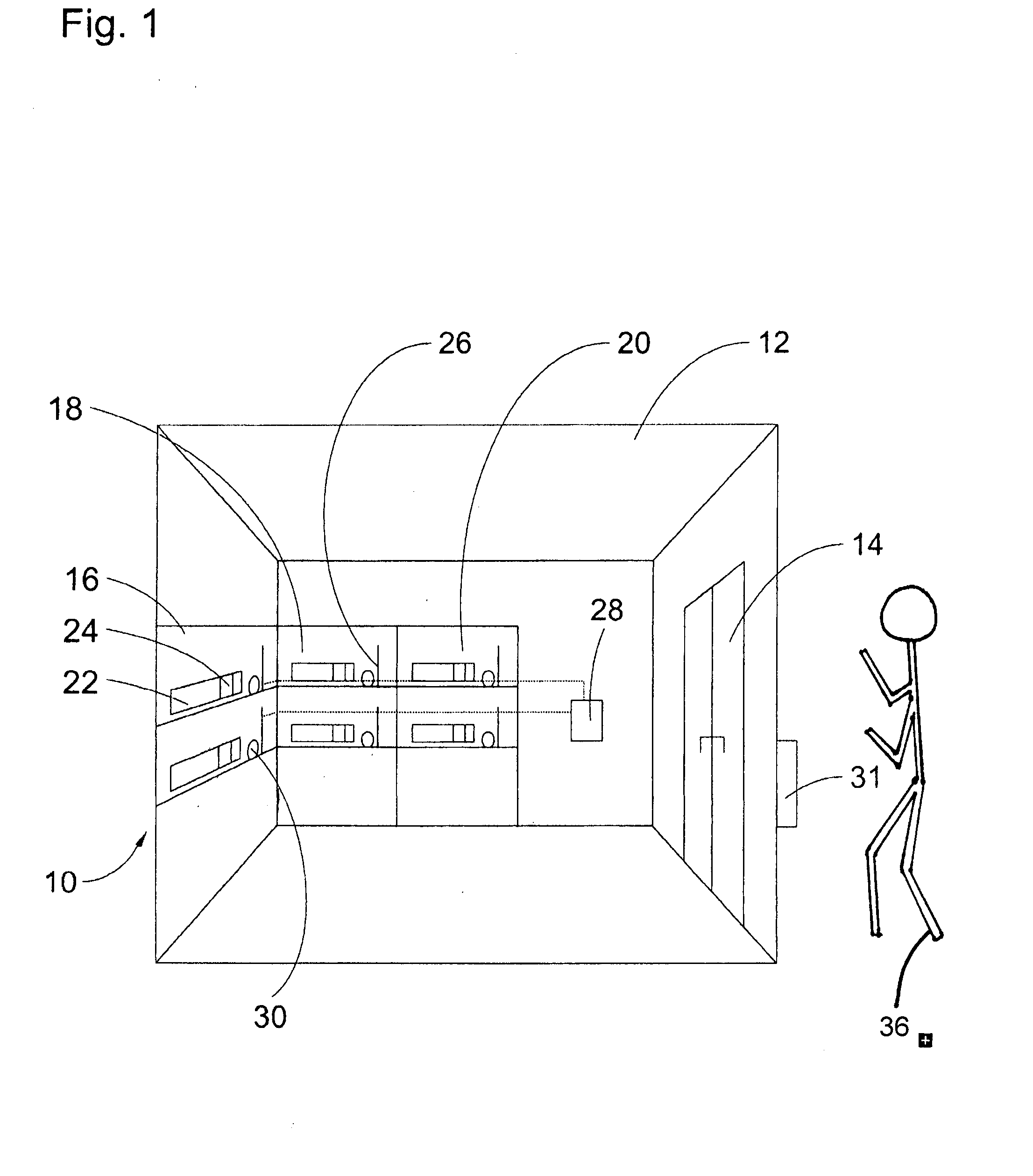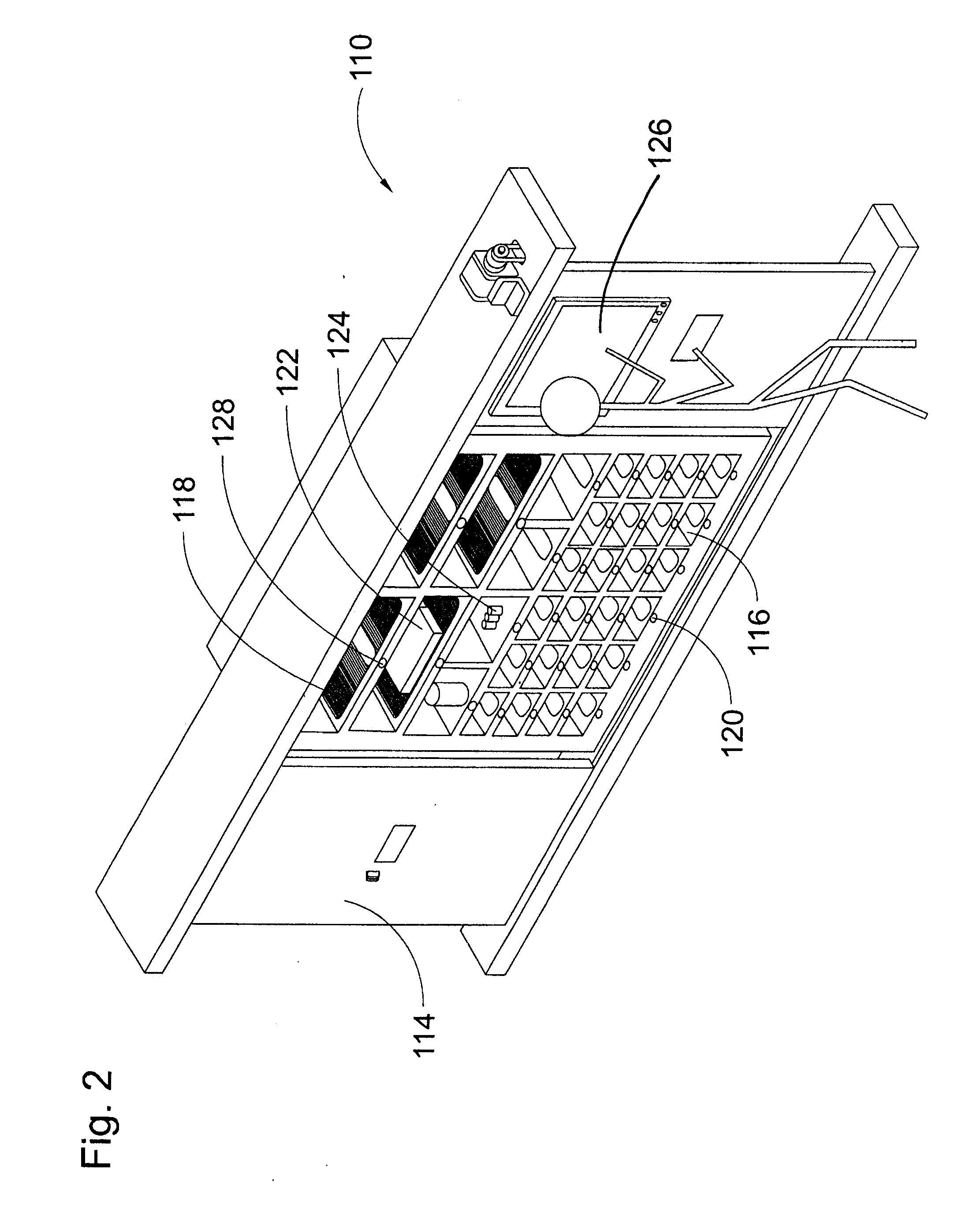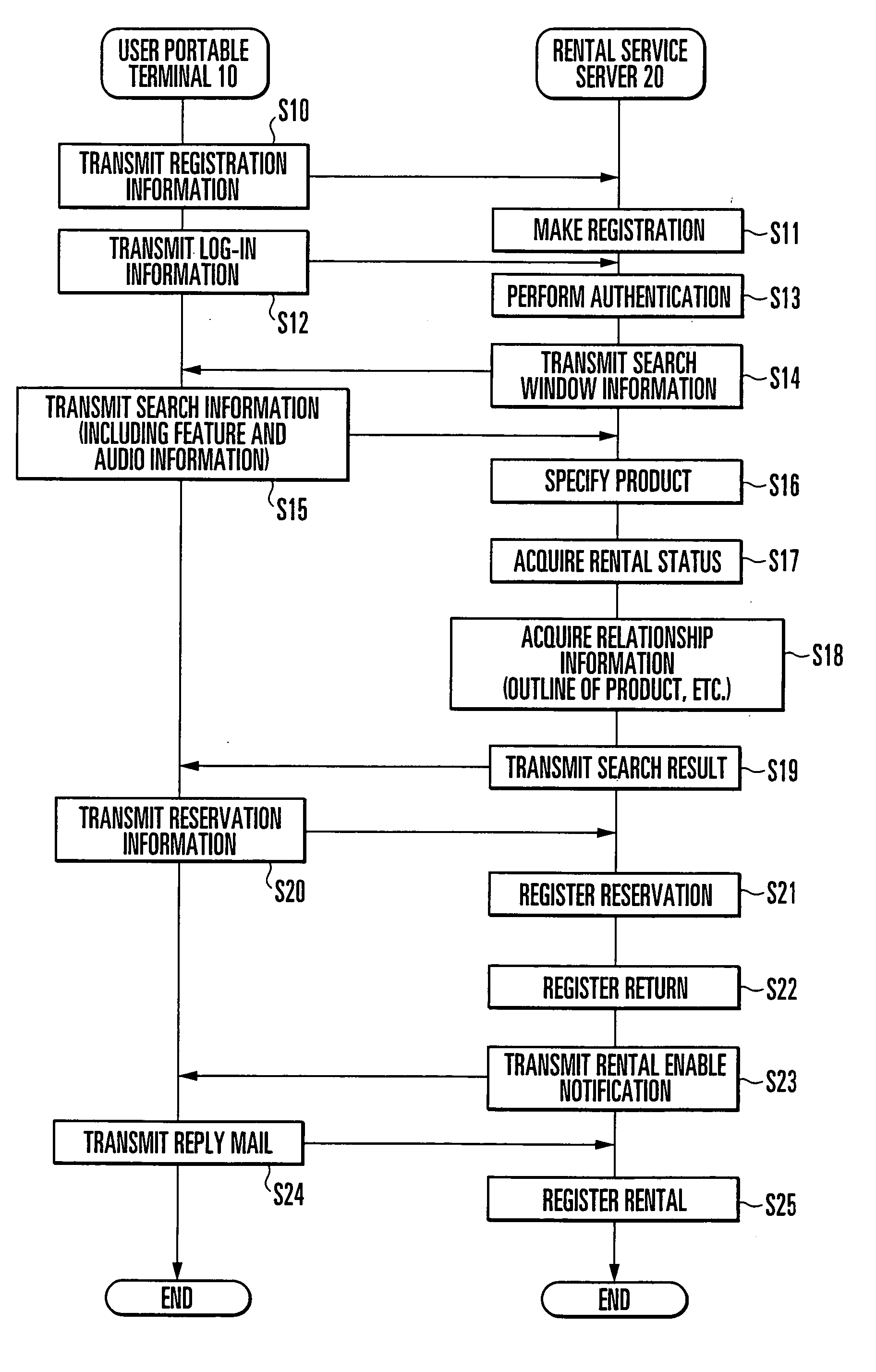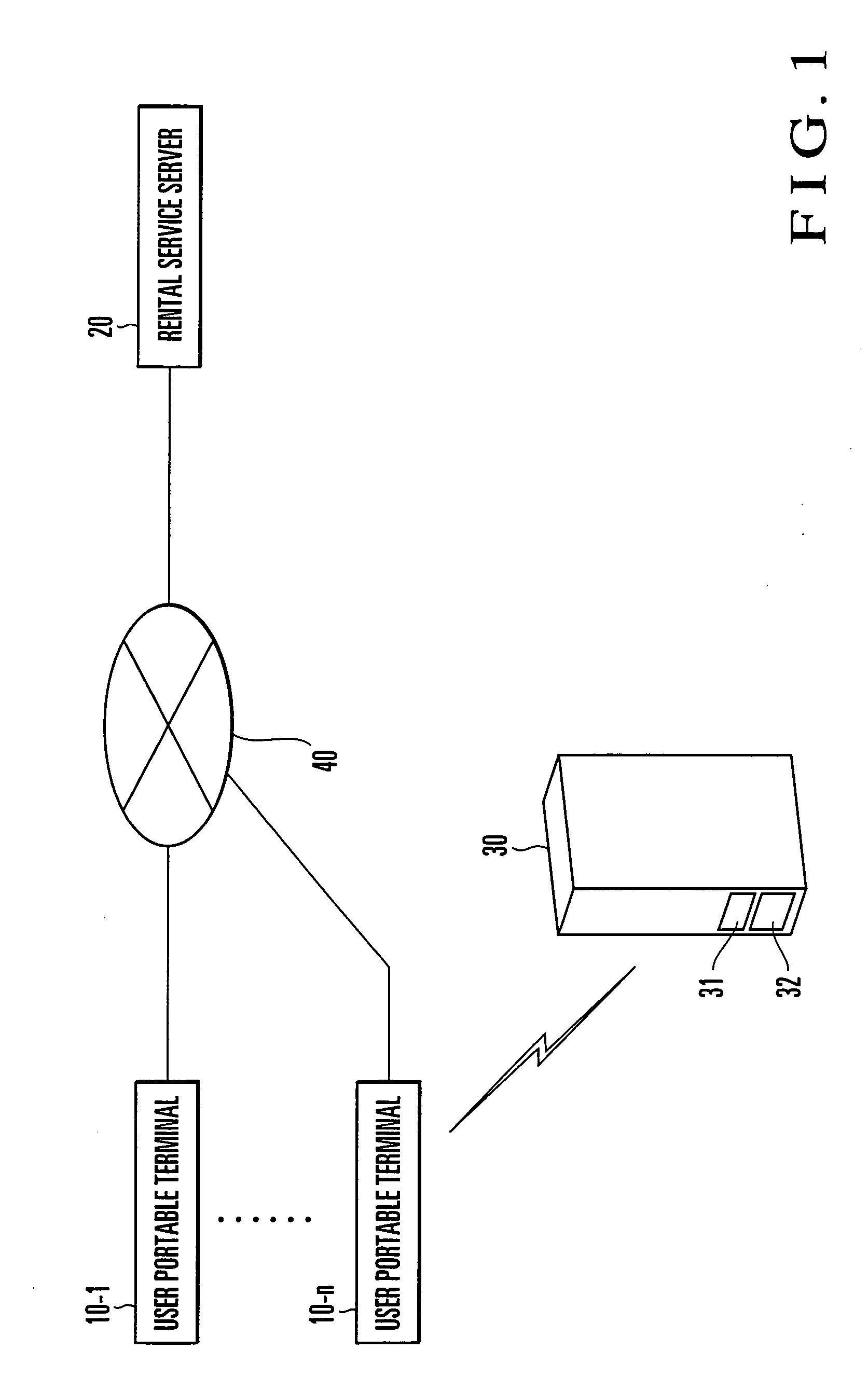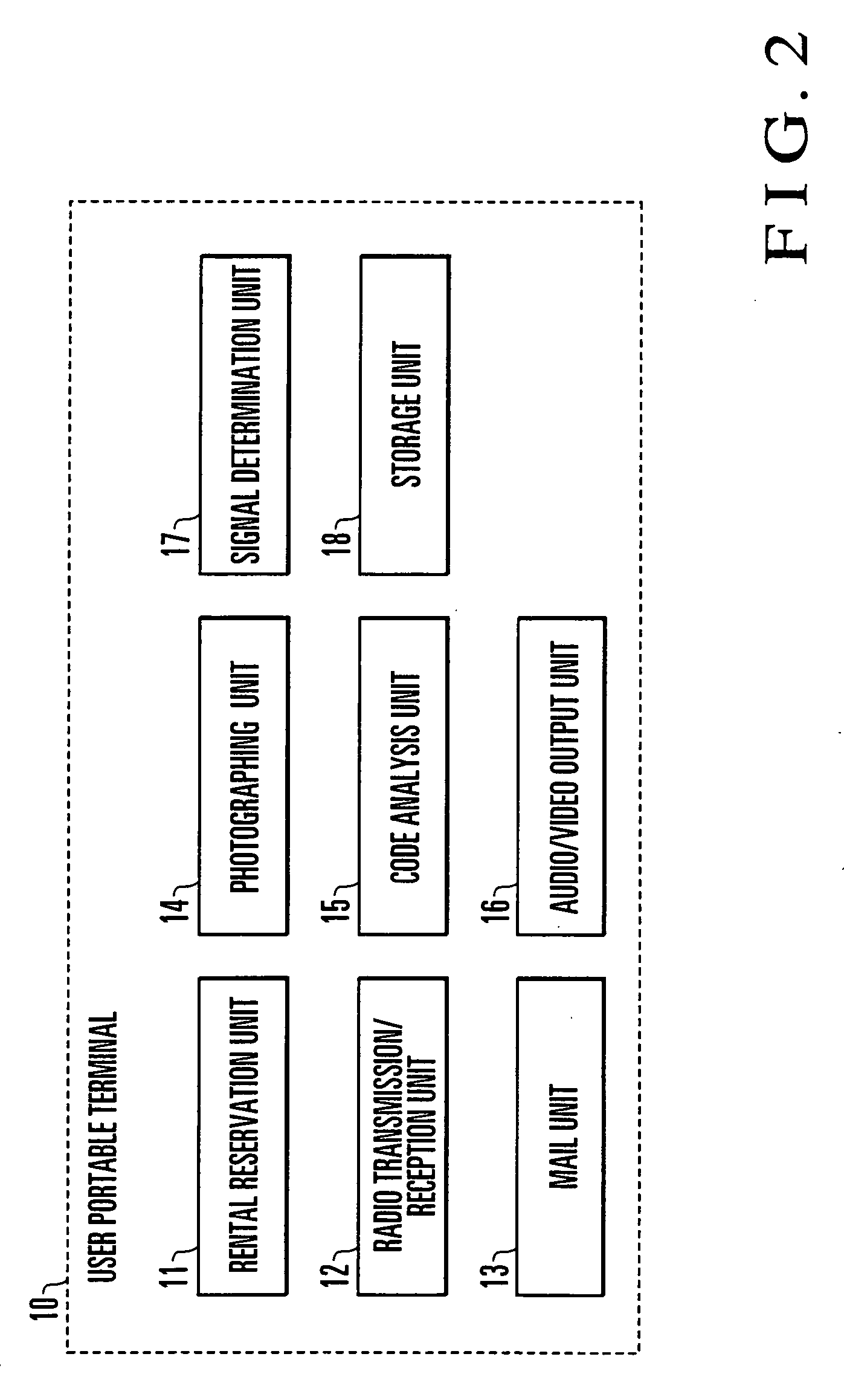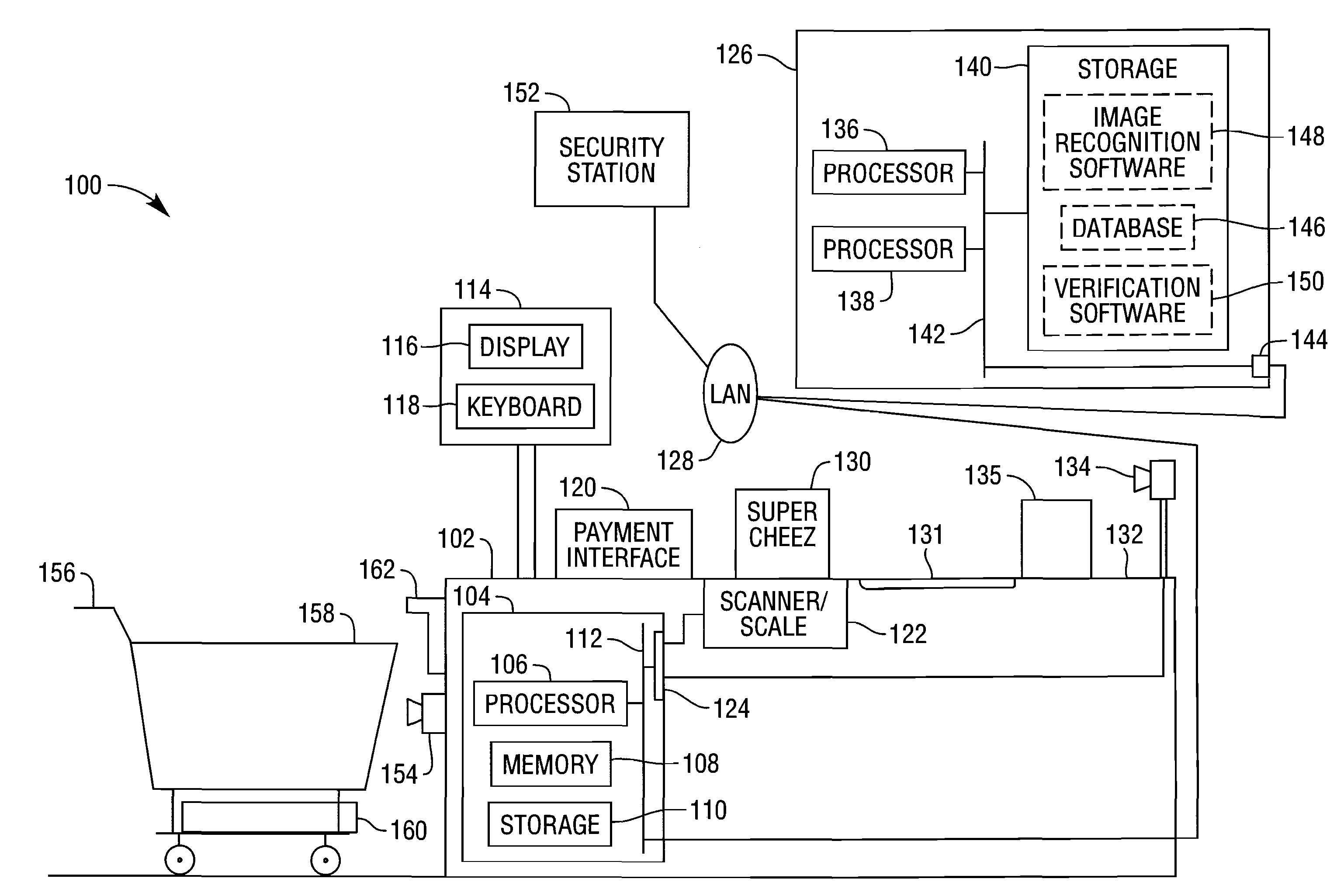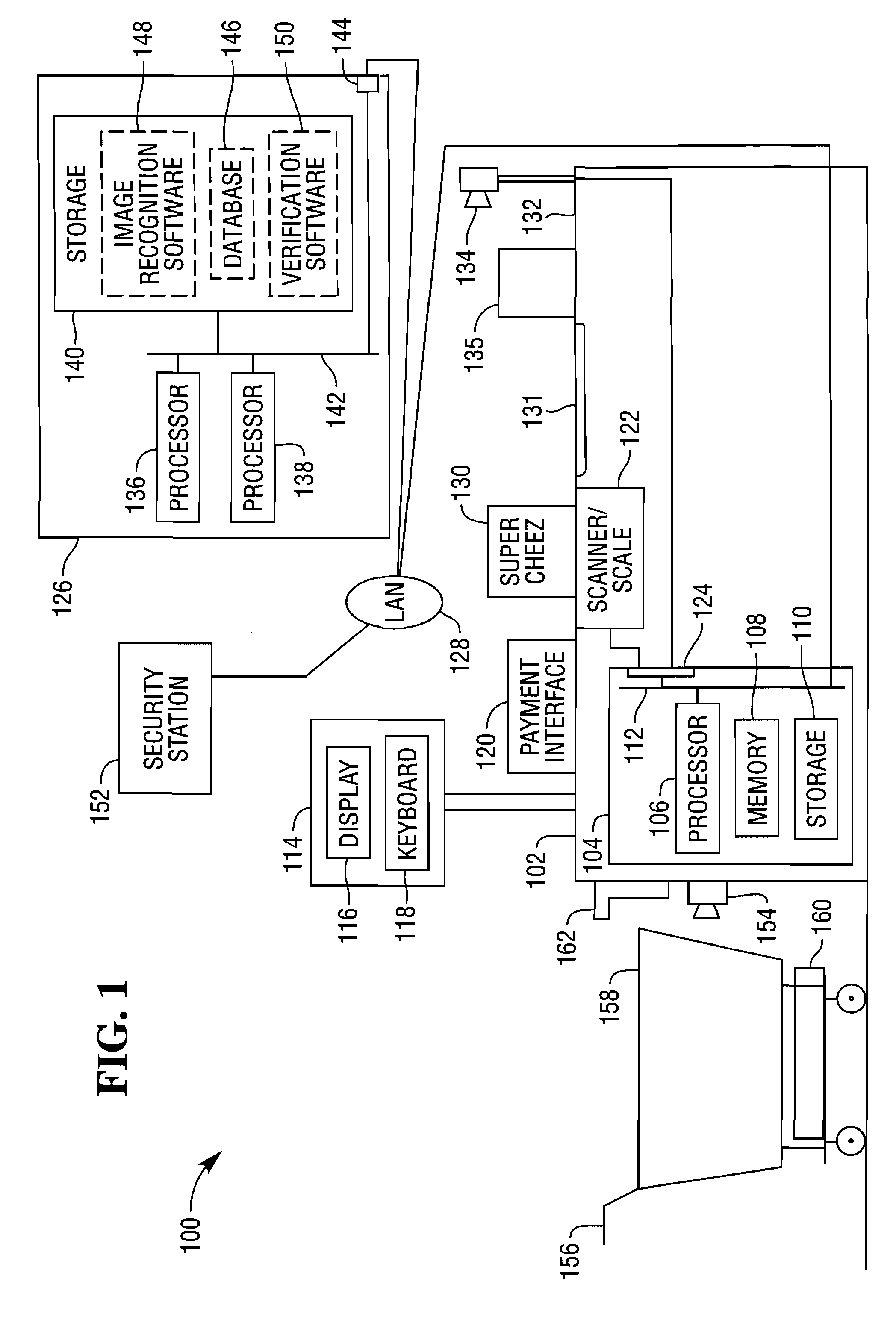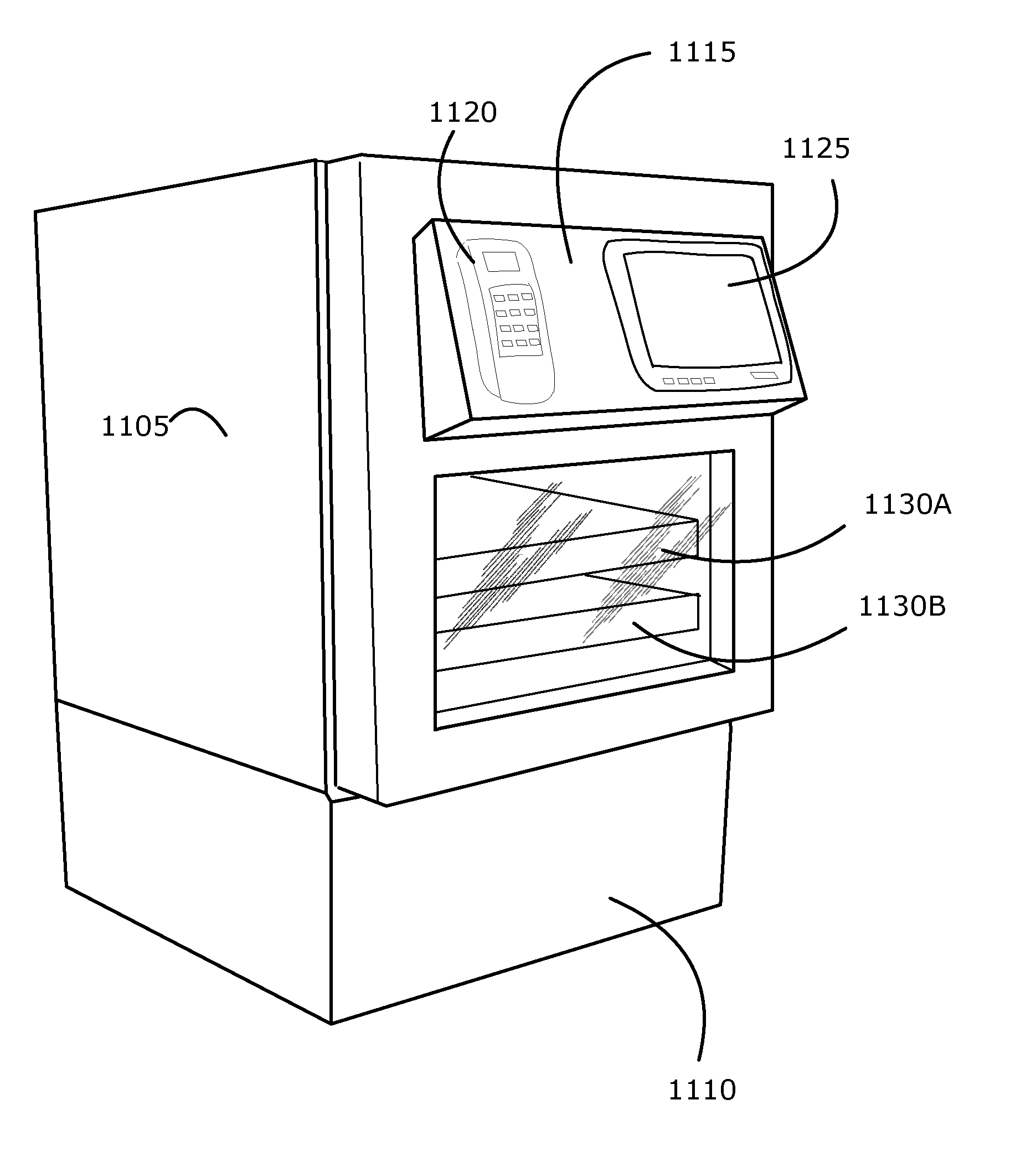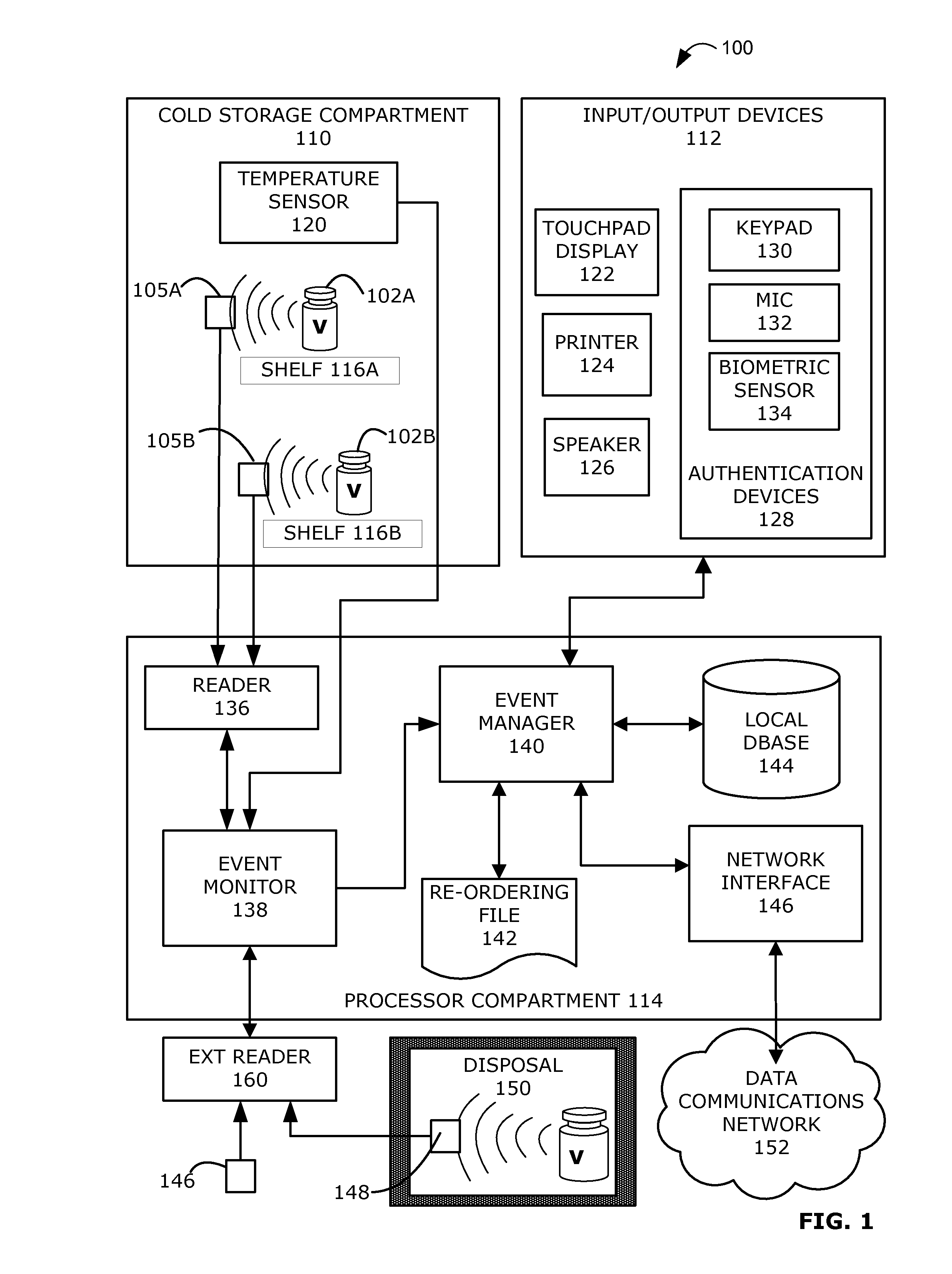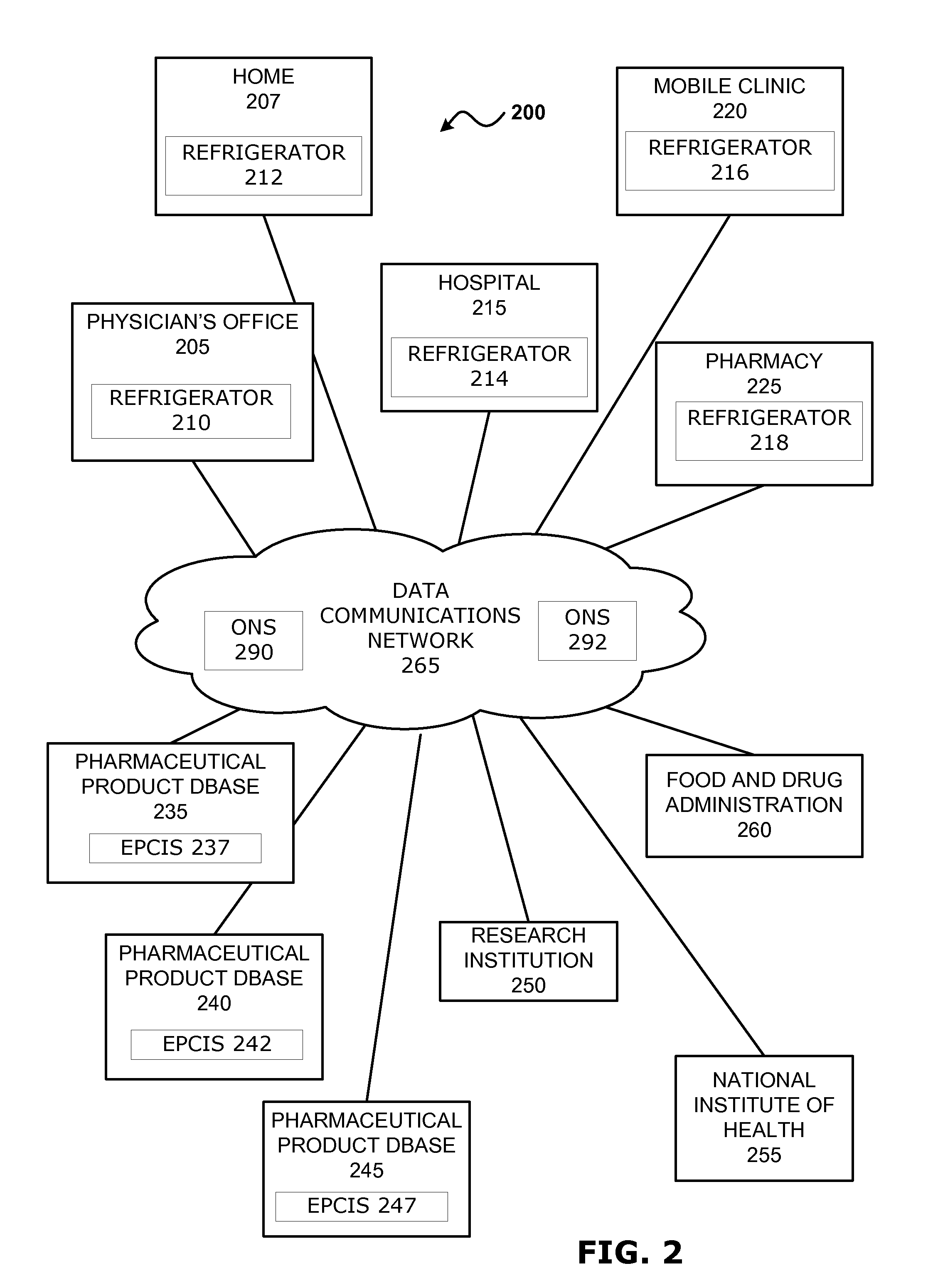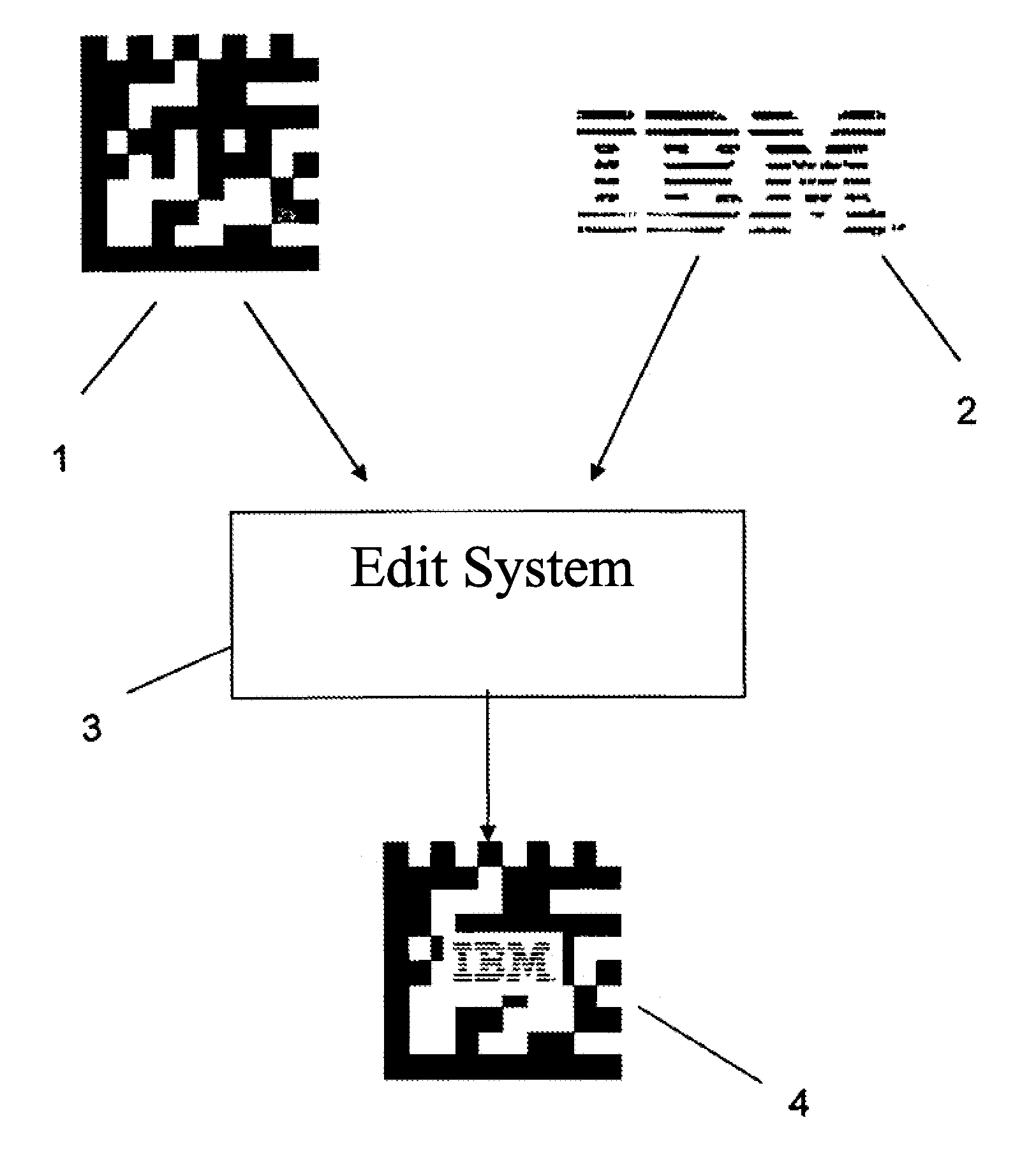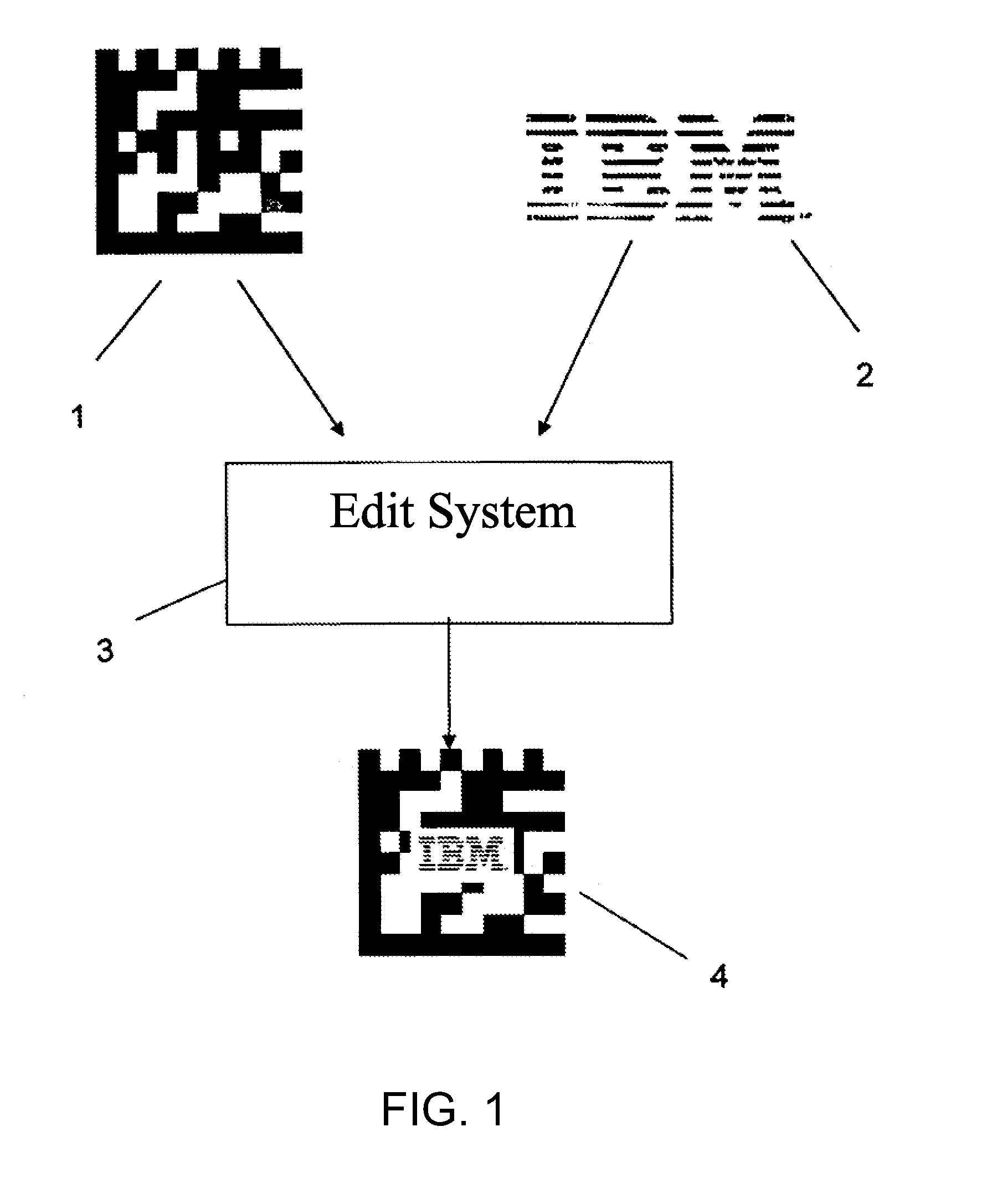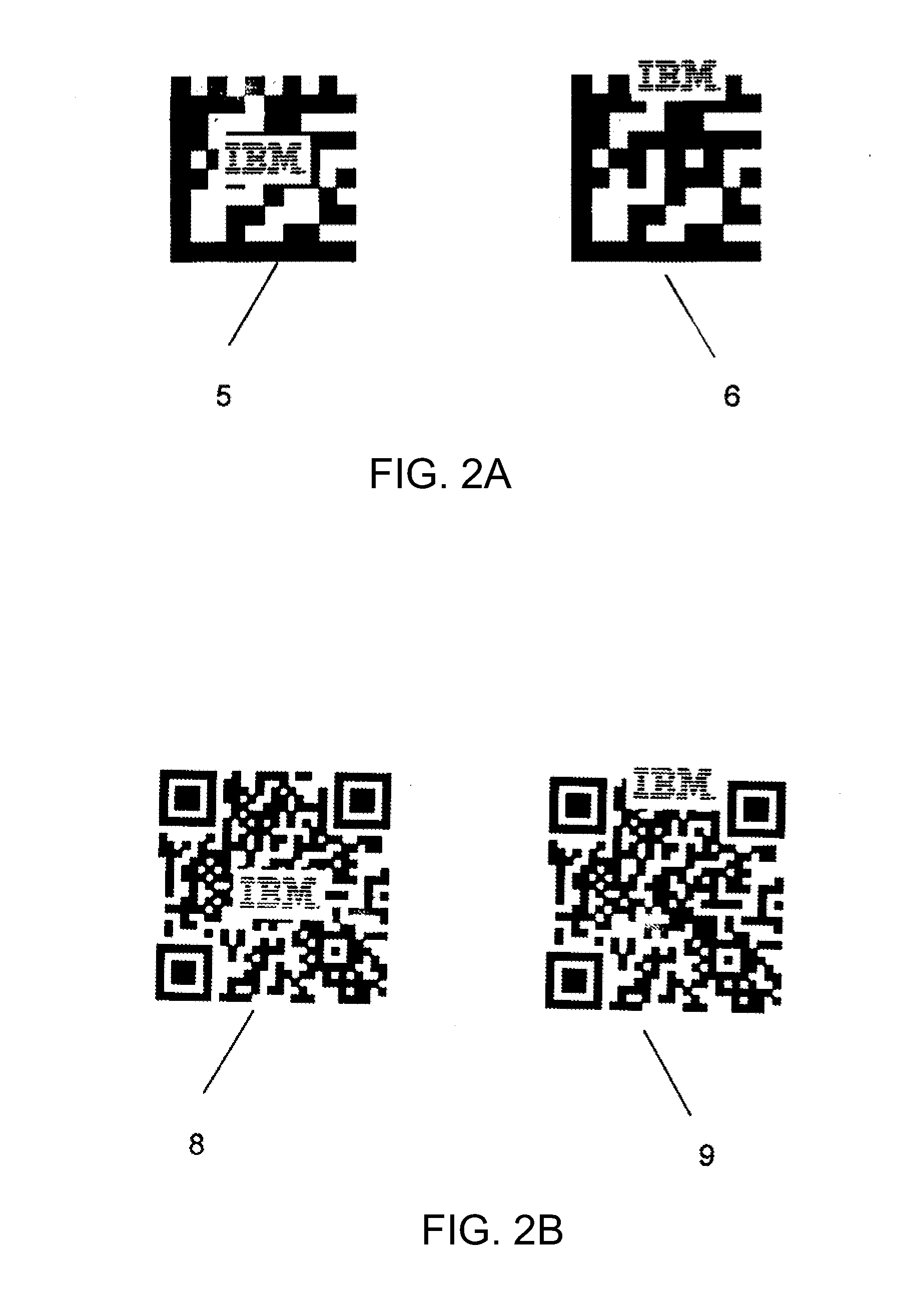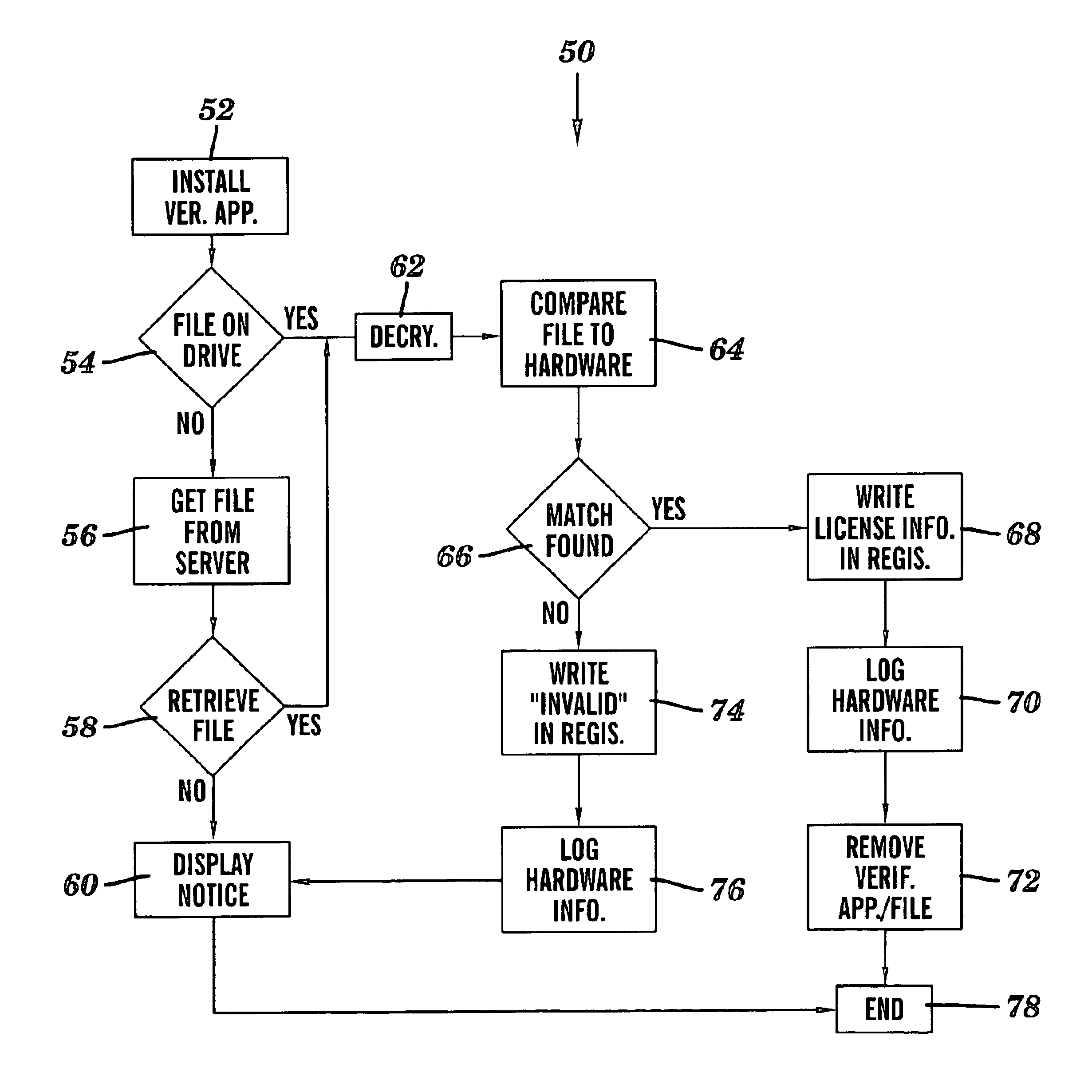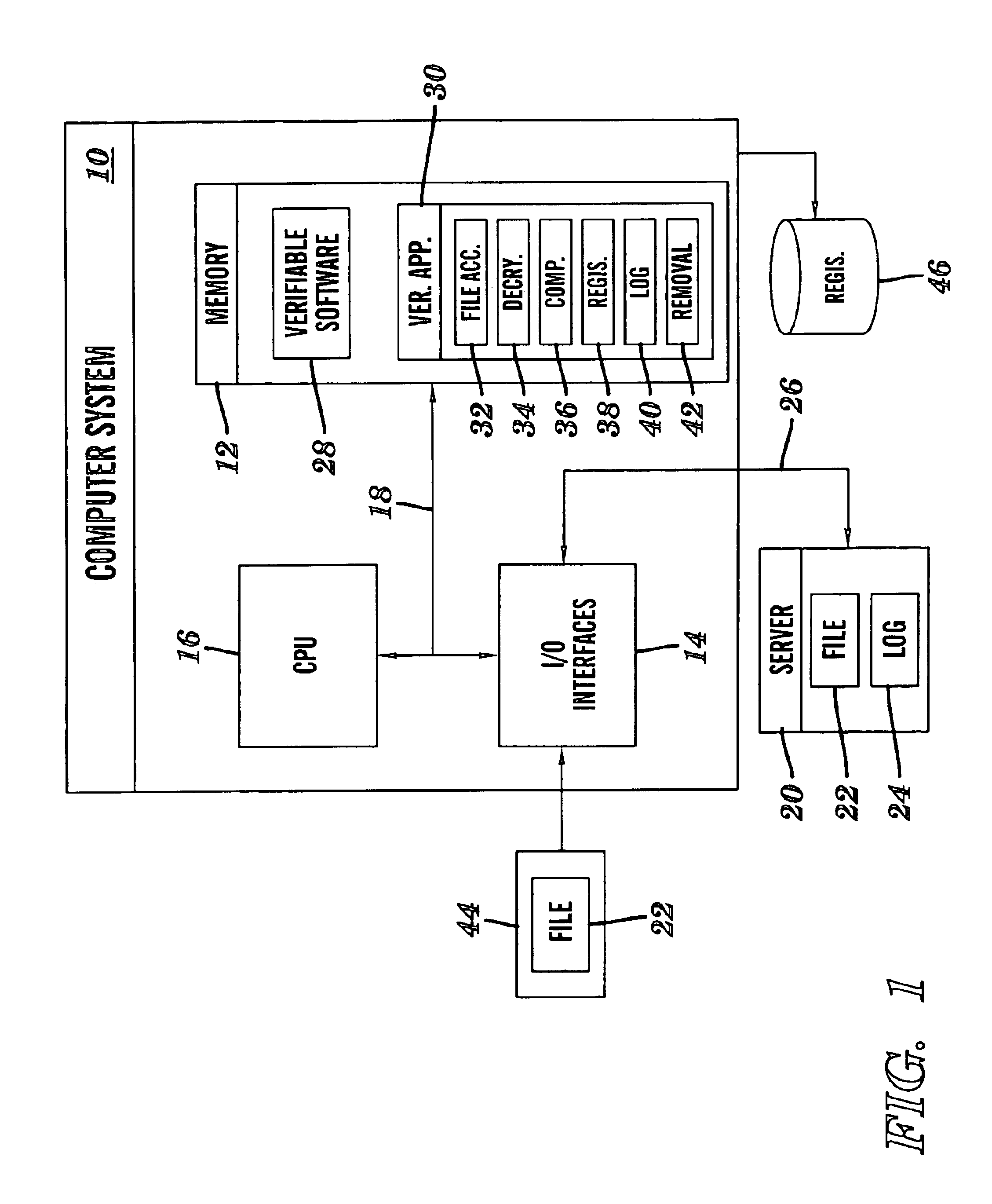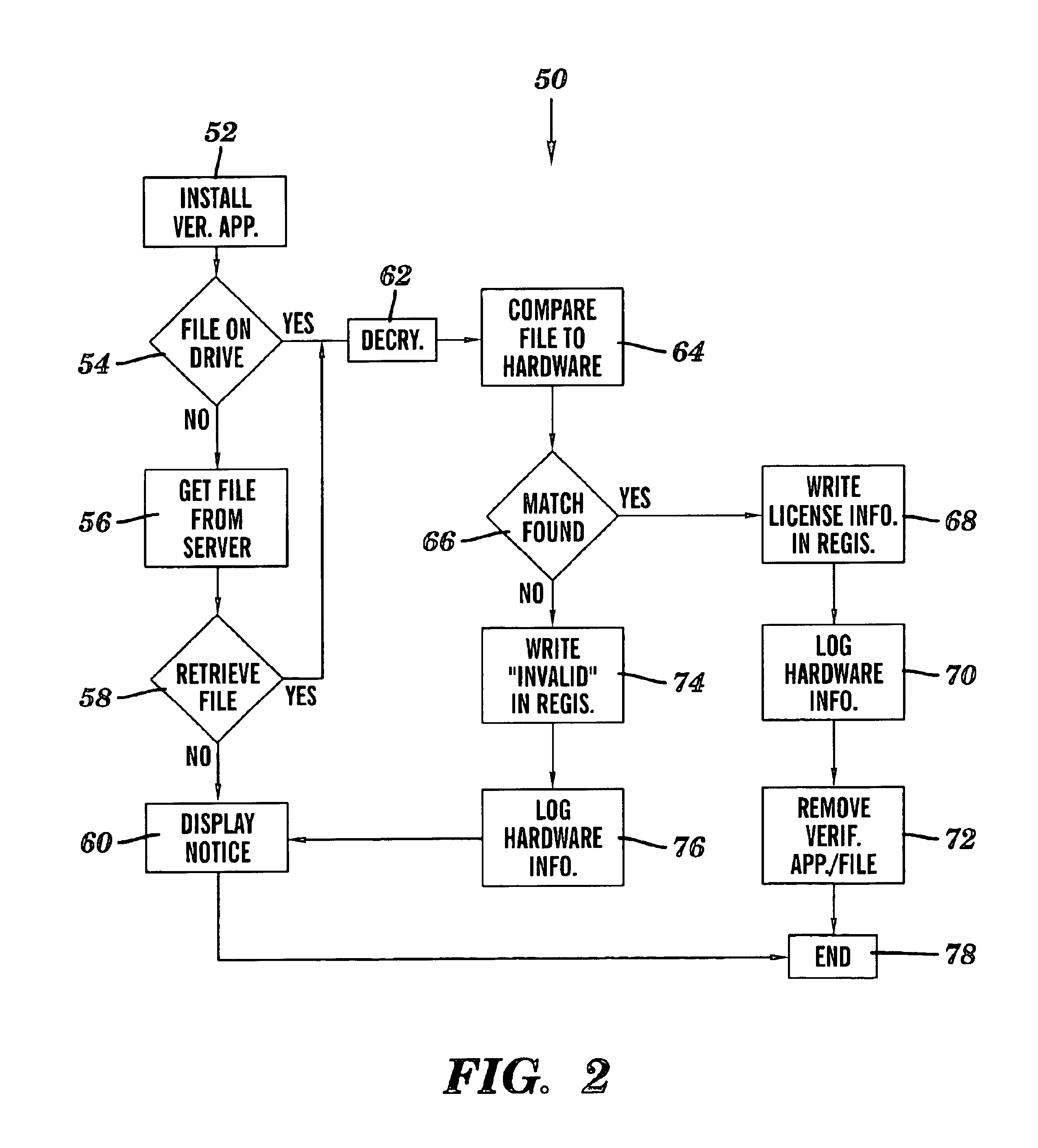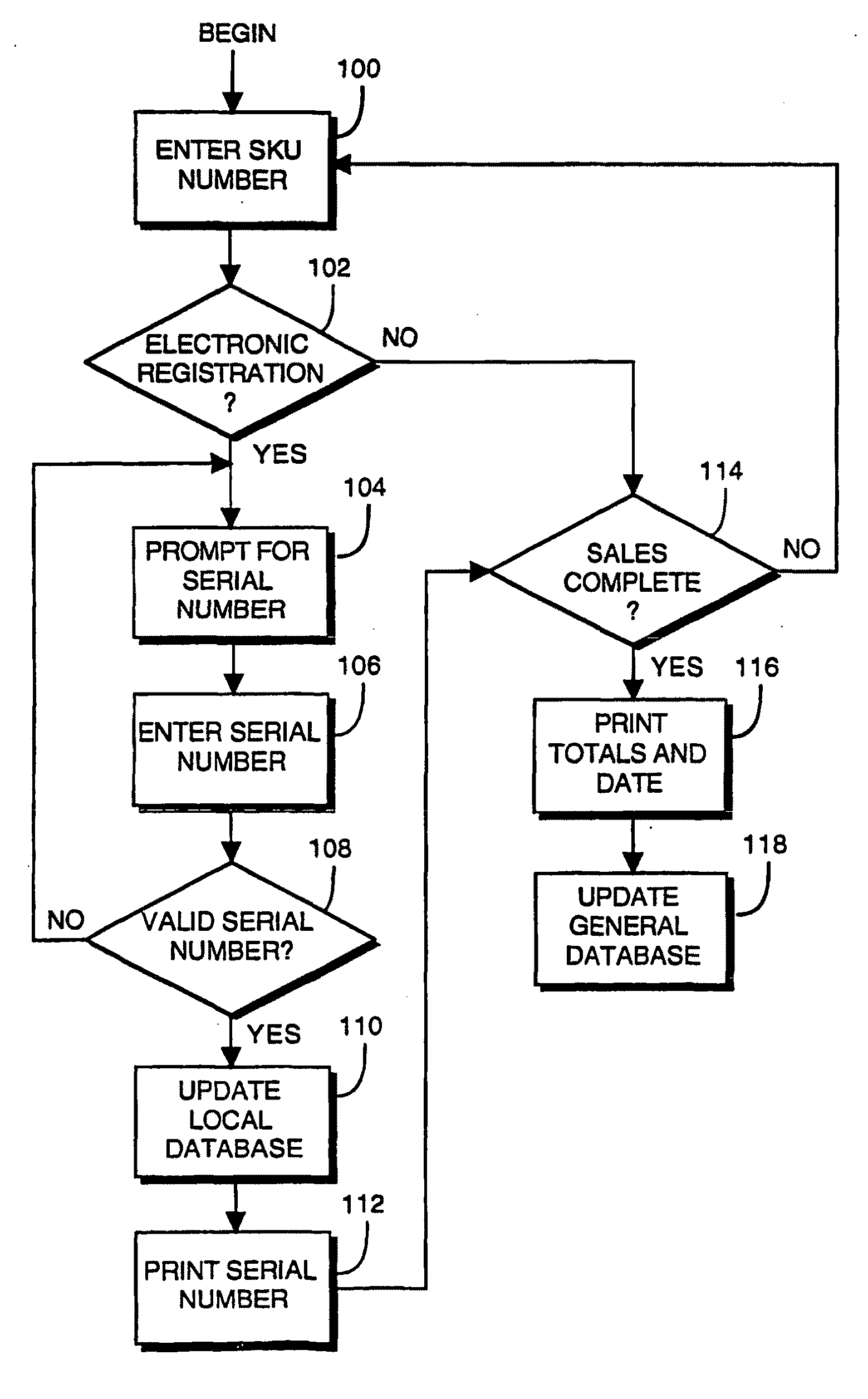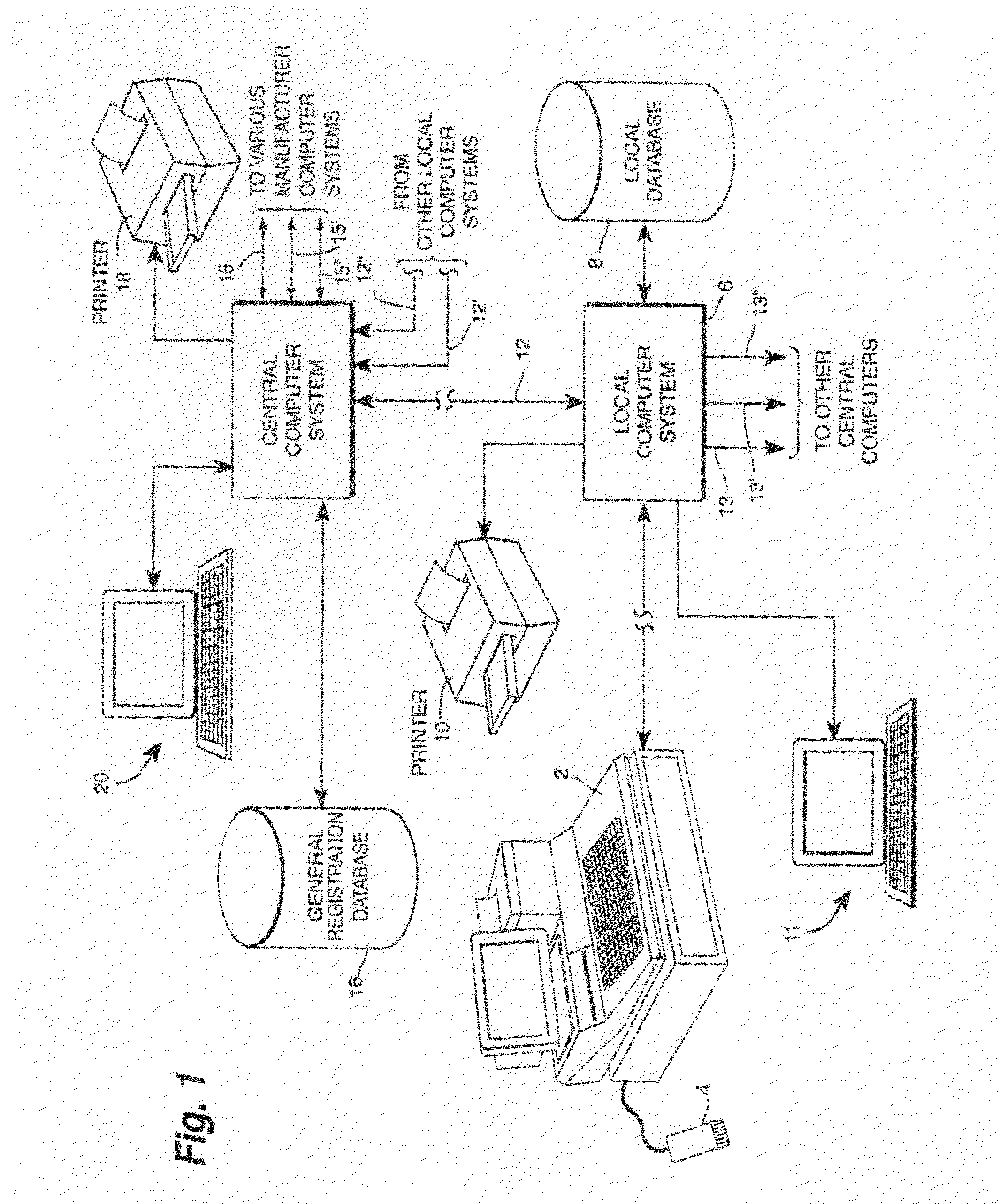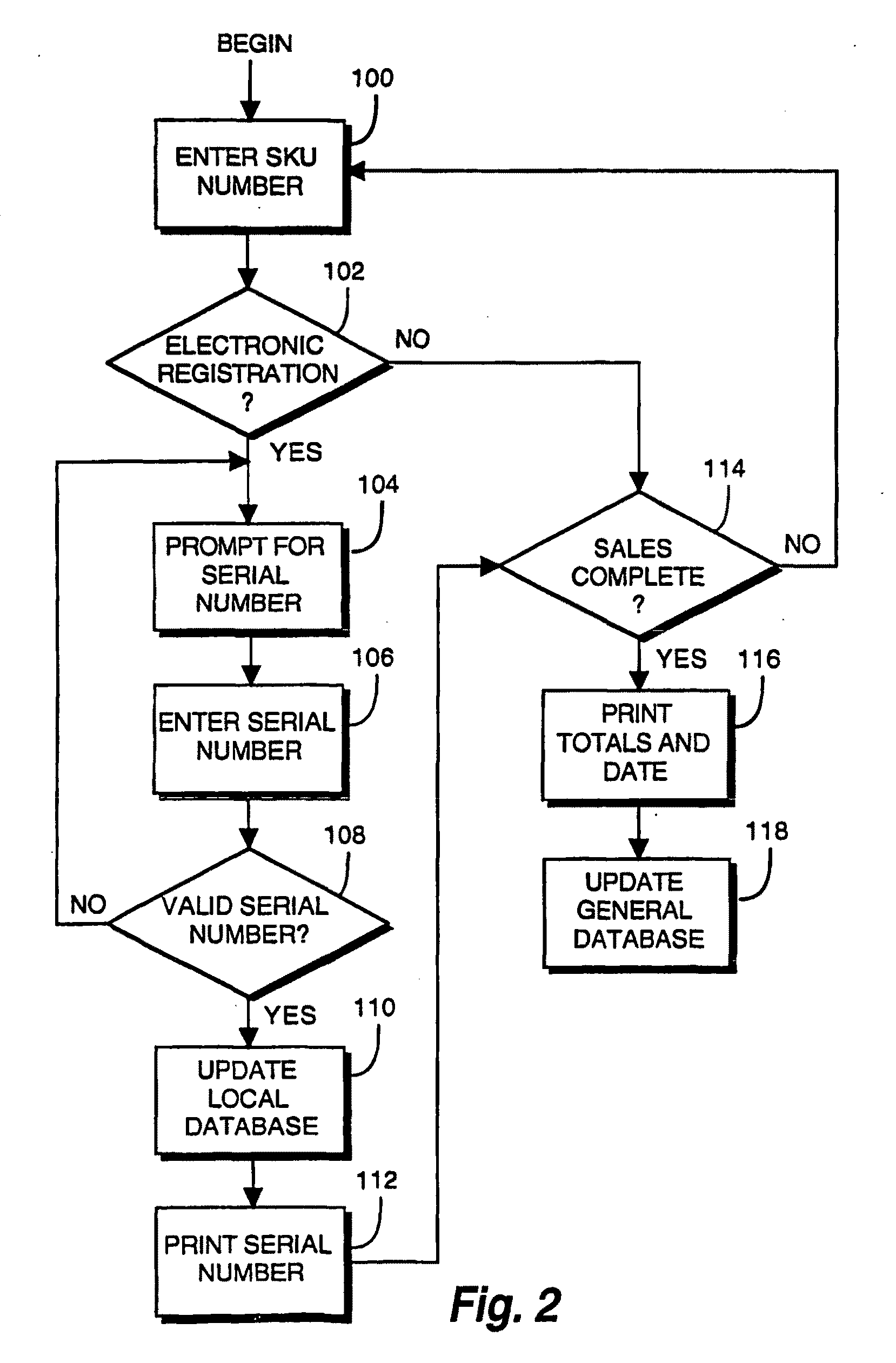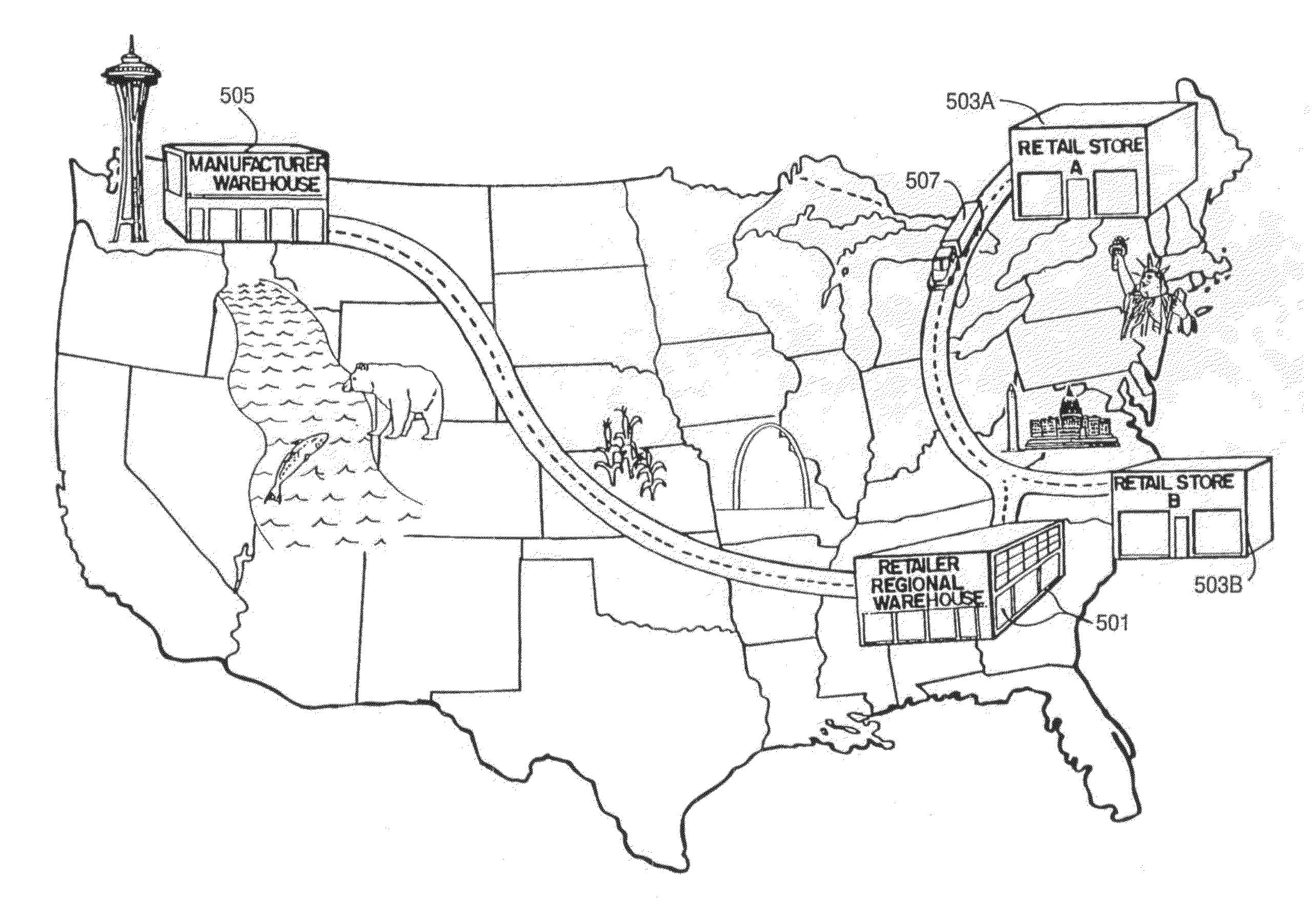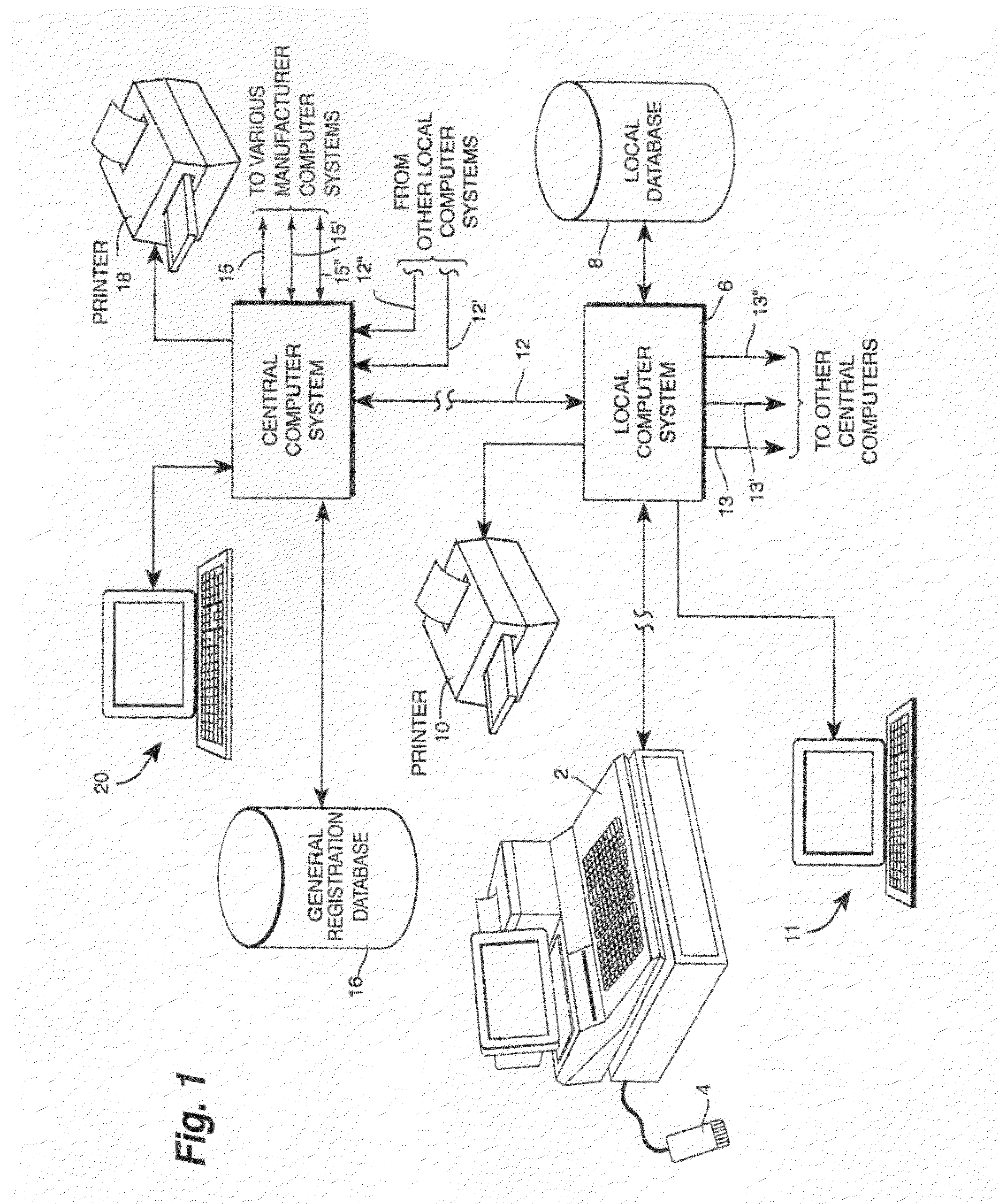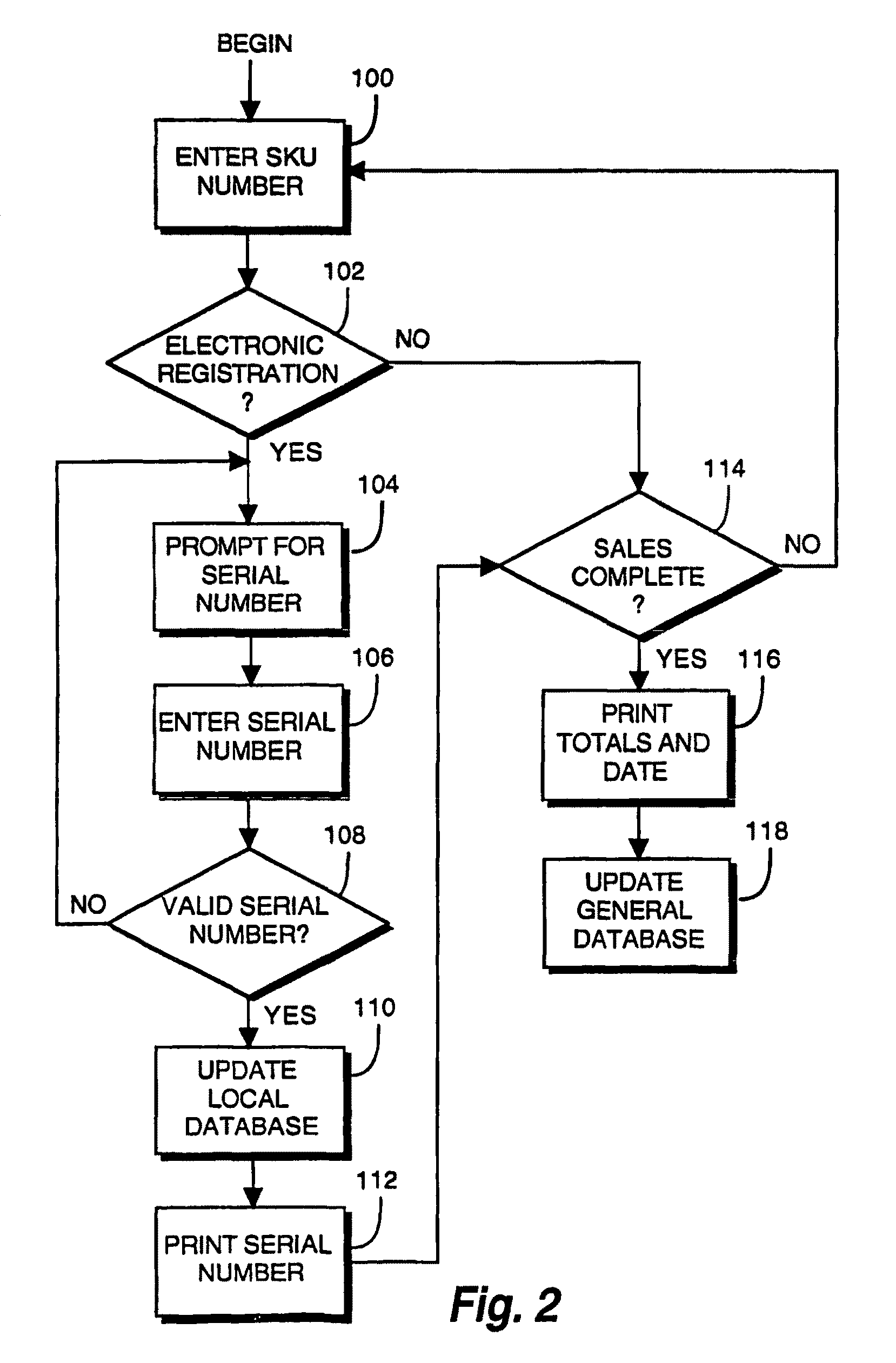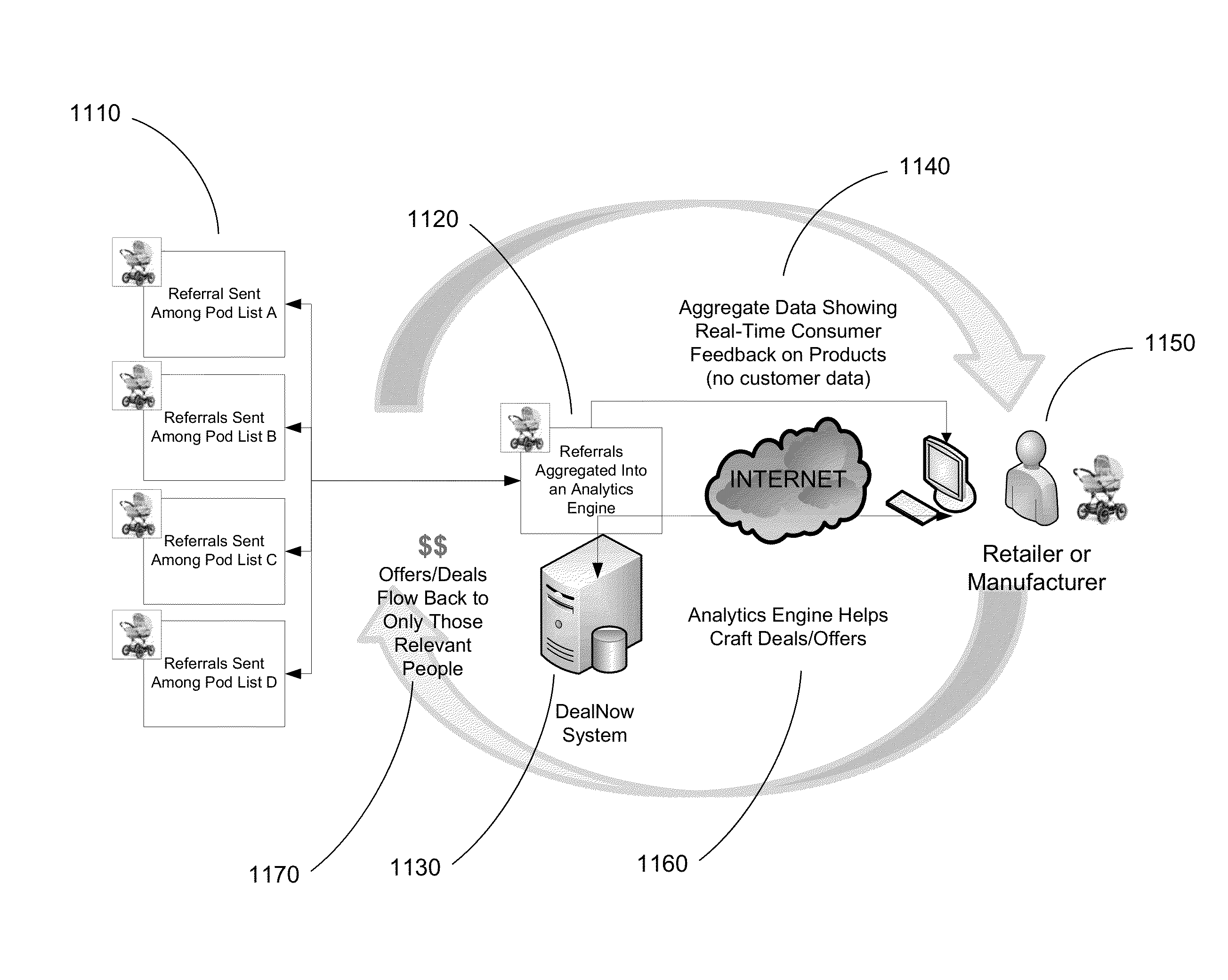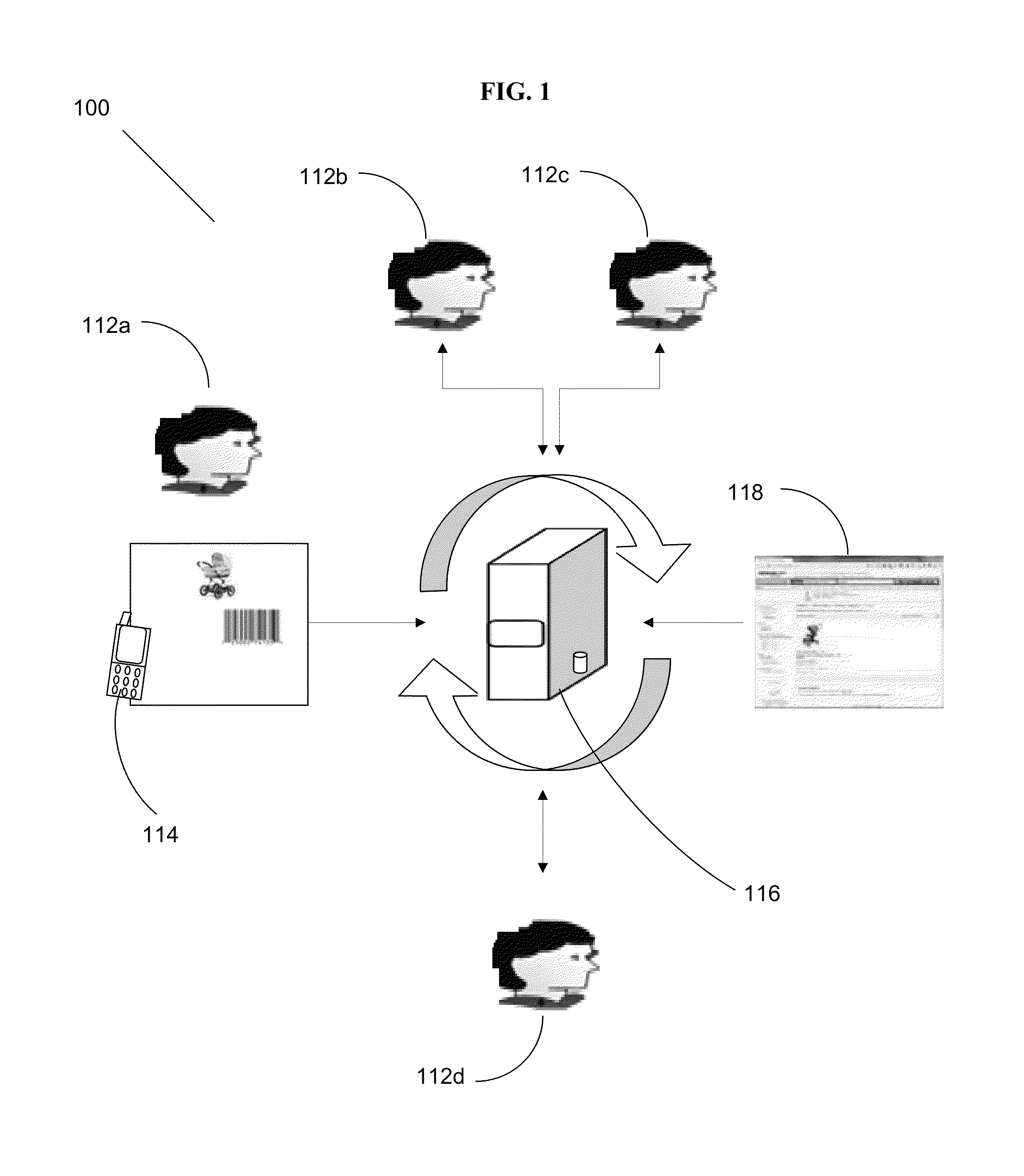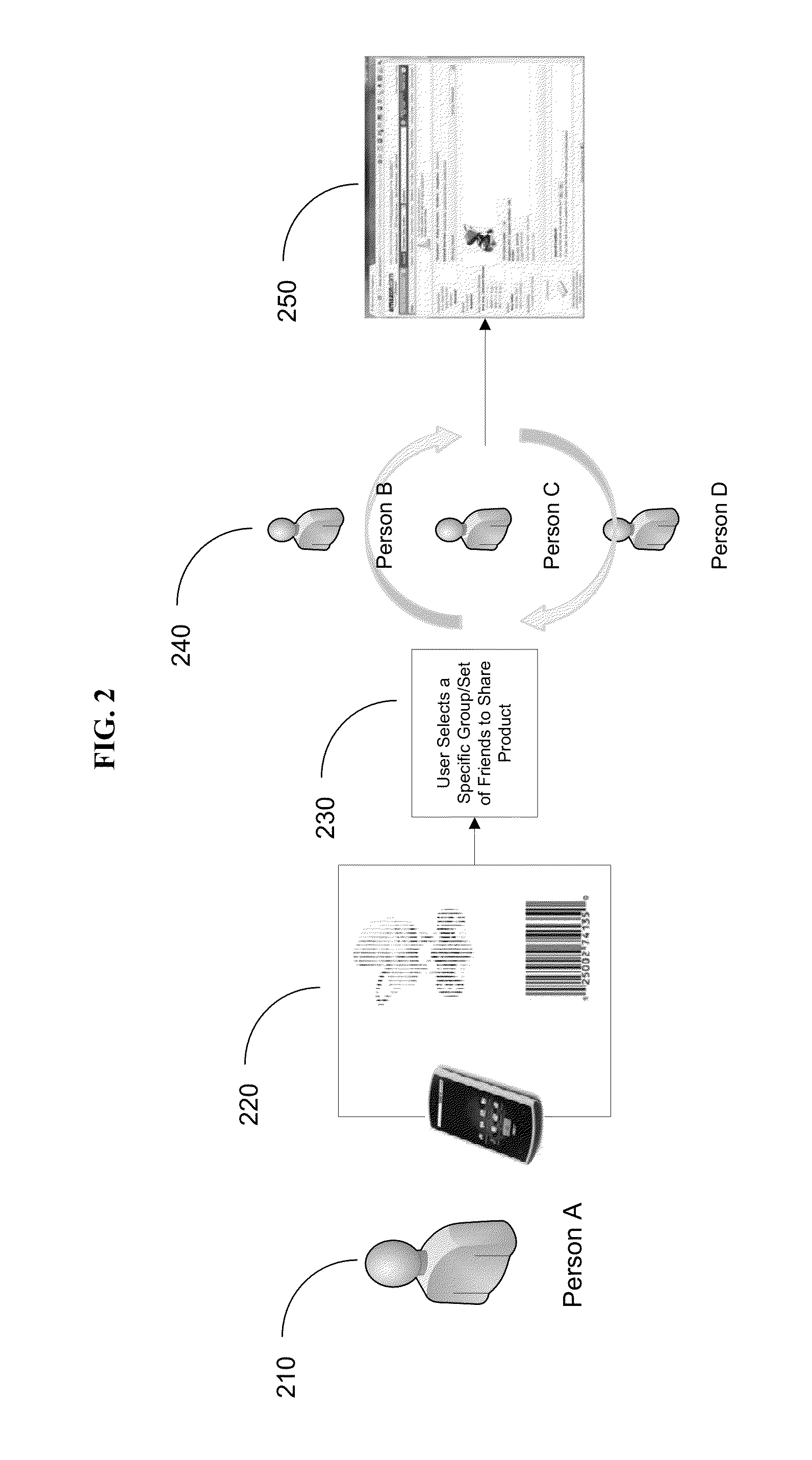Patents
Literature
Hiro is an intelligent assistant for R&D personnel, combined with Patent DNA, to facilitate innovative research.
1034 results about "Product identification" patented technology
Efficacy Topic
Property
Owner
Technical Advancement
Application Domain
Technology Topic
Technology Field Word
Patent Country/Region
Patent Type
Patent Status
Application Year
Inventor
Product Identification. Product identification is a broad category of labeling that includes functions such as product traceability, brand protection, and various information labels.
Digital point-of-sale analyzer
ActiveUS20110011936A1Ensure complianceCharacter and pattern recognitionPayment architectureGraphicsComputer science
A digital point-of-sale system for determining key performance indicators (KPIs) at a point-of-sale includes a product identification unit and a realogram creation unit. The product identification unit is configured to receive a captured image of a product display and to identify products in the captured image by comparing features determined from the captured image to features determined from products templates. The realogram creation unit is configured to create a realogram from the identified products and product templates. A product price KPI unit is configured to identify a product label proximally located to each identified product, and to recognize the product price on each product label. Each product price is compared to a predetermined range of prices to determine whether the product label proximally located to the identified product is a correct product label for the identified product.
Owner:ACCENTURE GLOBAL SERVICES LTD
In-person one-tap purchasing apparatuses, methods and systems
Methods, systems, and devices are disclosed for transforming product code snapshots into real-time, offer-driven electronic purchase transaction notifications that minimize fraud. In one embodiment, a smart phone scans a product identifier from a product package, a server accesses a products database for product purchase offers associated with the product identifier, a user authorizes a credit card from his or her wallet to charge, and then product purchase offers or other credit card offers (for loyalty points or otherwise) are provided to the user mobile device. After a user has purchased an item while in the aisle of the store, the user's smart phone displays a barcoded electronic receipt that can be scanned by the exit so that the consumer can walk out with the produce. In some embodiments, a video chat is requested by a customer service representative and a transaction risk score is lowered based on acceptance of the video chat.
Owner:VISA INT SERVICE ASSOC
Methods and arrangements for identifying objects
ActiveUS20140052555A1Increase check-out speedImprove accuracyImage enhancementImage analysisGeometric primitiveVisual saliency
In some arrangements, product packaging is digitally watermarked over most of its extent to facilitate high-throughput item identification at retail checkouts. Imagery captured by conventional or plenoptic cameras can be processed (e.g., by GPUs) to derive several different perspective-transformed views—further minimizing the need to manually reposition items for identification. Crinkles and other deformations in product packaging can be optically sensed, allowing such surfaces to be virtually flattened to aid identification. Piles of items can be 3D-modelled and virtually segmented into geometric primitives to aid identification, and to discover locations of obscured items. Other data (e.g., including data from sensors in aisles, shelves and carts, and gaze tracking for clues about visual saliency) can be used in assessing identification hypotheses about an item. Logos may be identified and used—or ignored—in product identification. A great variety of other features and arrangements are also detailed.
Owner:DIGIMARC CORP
System for providing information to intending consumers
InactiveUS20020087408A1Improve abilitiesMarketingSpecial data processing applicationsDistribution systemEngineering
The product information distribution system (20) comprises: a database (8) having records of user purchasable products, each of the records including fields for at least identification and geographical availability of a product, an input means (15) for receiving input data from a user related to a preferred product which is selected from one of said product identification fields of said records, a distance value and a preferred geographical location from which the preferred product is to be sourced, searching means (7) for searching the database according to the input data and for determining a search result, the search result relating to those of the records including products meeting the product identification fields and available within a boundary determined by the distance value of the preferred geographical location, and an output display means (14) for displaying the search result to the user.
Owner:BURNETT JONATHAN ROBERT
Method and apparatus for drug product tracking using encoded optical identification elements
ActiveUS20060028727A1Made smallMade flexiblePaper-money testing devicesPharmaceutical delivery mechanismAuthenticationPhysics
A method and apparatus for drug product tracking (or other pharmaceutical, health care or cosmetics products, and / or the packages or containers they are supplied with) using diffraction grating-based encoded optical identification elements 8 includes an optical substrate 10 having at least one diffraction grating 12 disposed therein. The grating 12 has one or more colocated pitches Λ which represent a unique identification digital code that is detected when illuminated by incident light 24. The incident light 24 may be directed transversely from the side of the substrate 10 (or from an end) with a narrow band (single wavelength) or multiple wavelength source, and the code is represented by a spatial distribution of light or a wavelength spectrum, respectively, or a combination thereof. The encoded element 8 may be used to label any desired item, such as drugs or medicines, or other pharmaceutical or health care products or cosmetics. The label may be used for many different purposes, such as for sorting, tracking, identification, verification, authentication, anti-theft / anti-counterfeit, security / anti-terrorism, or for other purposes. In a manufacturing environment, the elements 8 may be used to track inventory for production information or sales of goods / products. Such labeling provides product identification at the pill or liquid medicine level, which provides traceability of these products to their manufacturer, thereby reducing counterfeit products in the marketplace. Also, the elements 8 may be incorporated into a film, liquid, coating or adhesive tape at attached to the product package.
Owner:ILLUMINA INC
Product registration and tracking system
InactiveUS20130080251A1Convenient registrationCustomer relationshipMarketingApplication softwareComputer memory
A server for registration of products may include a processor and computer storage. The processor may be configured to receive, via a network, a communication from a product application executed on a computing device, the communication including a product identification (ID) associated with a product and an indication of registration of the product by a user of the product application. The processor may further be configured to register the product at least by storing, in the computer storage, the product ID and a relationship between the product and an identification of the user of the product application. The processor may further be configured to send a subsequent communication to the product application on the computing device based on the registration of the product.
Owner:ACCENTURE GLOBAL SERVICES LTD
Web-based consumer product marketing communication network for managing and delivering consumer product marketing communications to consumers along e-commerce (EC) enabled web sites on the world wide web (WWW), using multi-mode virtual kiosks (MMVKS) driven by server=side components embodying consumer product identifiers and driven by consumer product information (CPI) links managed by product manufacturer team members and/or their agents
InactiveUS7711598B2Digital data information retrievalData switching by path configurationGraphicsWeb site
A Web-based consumer product marketing communication network for managing and delivering consumer product marketing communications to consumers along E-Commerce (EC) enabled Web sites on the World Wide Web (WWW). The network employs one or more Web-based Multi-Mode Virtual Kiosks (MMVKs), each having a plurality of independently programmable display modes, for displaying one or more advertising spots, one or more promotional spots, and a set of consumer product information (CPI) resources through its Web-based graphical user interface (GUI). The network also includes a database server for storing and managing a CPI link structure for each MMVK deployed on the network. Each CPI link structure includes a consumer product identifier assigned to the corresponding consumer product, and a set of URLs specifying the location of a plurality of CPI resources located on the WWW. Members of product management team use the set of URLs to program the programmable display modes of each MMVK. By virtue of the MMVK-driven communication network of the present invention, consumer product management teams can now consistently deliver to product information and brand messaging to consumers along electronic streams of commerce.
Owner:PERKOWSKI THOMAS J
Methods and arrangements for identifying objects
ActiveUS9129277B2Improve accuracyIncrease speedImage enhancementImage analysisGeometric primitiveVisual saliency
In some arrangements, product packaging is digitally watermarked over most of its extent to facilitate high-throughput item identification at retail checkouts. Imagery captured by conventional or plenoptic cameras can be processed (e.g., by GPUs) to derive several different perspective-transformed views—further minimizing the need to manually reposition items for identification. Crinkles and other deformations in product packaging can be optically sensed, allowing such surfaces to be virtually flattened to aid identification. Piles of items can be 3D-modelled and virtually segmented into geometric primitives to aid identification, and to discover locations of obscured items. Other data (e.g., including data from sensors in aisles, shelves and carts, and gaze tracking for clues about visual saliency) can be used in assessing identification hypotheses about an item. Logos may be identified and used—or ignored—in product identification. A great variety of other features and arrangements are also detailed.
Owner:DIGIMARC CORP
Mobile shopping method and application
InactiveUS20060106674A1Improve user experienceEasy to browseAdvertisementsBilling/invoicingThird partyWorld Wide Web
A system and method for crediting fees and commissions for the use by customers of mobile phones to search for product information directly from merchants or indirectly through product information aggregators. Further it provides for crediting fees and commissions for sending product identification to other customer's mobile phones. It supports third party use of the system to distribute specific sets of product instances accessible by users of a private label system.
Owner:GPSHOPPER
Product identification tag device and reader
InactiveUS7317378B2Improve efficiencyImprove performanceMemory record carrier reading problemsSubscribers indirect connectionStored energyElectronic identification
An electronic identification tag, usually in very small size, responds to a reader with an identification code unique to the object to which the tag is attached. The stand-alone device responds to a reader signal by storing energy received from the signal, then using the stored energy to generate another signal that is encoded with identification information. In operation, a reader generates RF energy which can reach a multiplicity of such tags over a distance of several meters. The system minimizes power requirements for the tag by minimizing intelligence in the IC. Use of a transmit frequency which is different from the reader's power frequency reduces interference between the power pulse and information pulse, eliminates the need for filters and enables the multiplied clock reference frequency as the transmit carrier frequency.
Owner:TAGENT
Download procedures for peripheral devices
InactiveUS7704147B2Need be addressApparatus for meter-controlled dispensingProgram loading/initiatingUSBComputer science
A disclosed gaming machine is coupled to a plurality of “USB gaming peripherals.” The USB gaming peripherals, which may include one or more peripheral devices, communicate with a master gaming controller using a USB communication architecture. The USB gaming peripherals may include USB DFU (Device Firmware Upgrade)-compatible peripheral devices. One or more host processes, such as a USB device class manager or a DFU driver, may be capable of downloading firmware to the USB DFU-compatible peripheral device. The host processes may receive a firmware identifier from the USB DFU-compatible peripheral device where the firmware identifier allows for two USB DFU-compatible peripheral devices with identical product identification information to be downloaded different firmware.
Owner:IGT
Method for transceiving non-USB device by an adapter and apparatus using the same
A method for transceiving non-USB peripheral device by an adapter and the adapter providing adaptation to an USB interface for the non-USB peripheral device, is disclosed. The adapter can read a capability report from the peripheral device and then converts the capability report to an USB-related report for facilitating accessing of the peripheral device. The adapter utilizes control commands and parameter set pre-defined by the adapter and the peripheral device to successfully access the peripheral device. The peripheral device has vendor identification (VID) and product identification (PID) and the controller transceives or detects the peripheral device with reference to the information of VID and PID.
Owner:LITE ON TECH CORP
RFID tag with visual environmental condition monitor
ActiveUS20060145863A1Easy to processEasy to readContainer decorationsLevel indicationsStatistical analysisColor changes
A combination RFID tag intended to be associated with a host product, for example by being secured to the outside of a package containing a perishable product, e.g. foodstuffs or vaccines, which RFID tag is provided with a visually readable environmental condition exposure indicator. The visual indicator can sense the exposure of the RFID tag to an environmental condition e.g. temperature, experienced by the host product providing a visual indication, e.g. a color change, readable externally of the RFID tag of the sensed environmental condition. The visual indicator can be chemically active, for example an acetylenic agent, and may be responsive to cumulative temperature excursions over time. The novel RFID tag 11 and tag inspection methods of the invention permit an efficacious harnessing of information about the condition exposure history of a specific inventory item including product identification and related data. The information from multiple items can be compiled into a database that may be audited or statistically analyzed to reveal useful information regarding the handling of the items.
Owner:TEMPTIME CORP
System and Method of Product Identification Using a URL
InactiveUS20070215685A1Character and pattern recognitionBuying/selling/leasing transactionsUniform resource locatorProduct identification
Systems and methods for product identification using a URL are disclosed here. One embodiment includes generating a plurality of uniform resource locators (URLs), each URL being unique for each item of a set of items, each URL to provide access to the product information associated with each item. Another embodiment includes providing the plurality of URLs to be separately marked on the set of items.
Owner:YOTTAMARK
Product identifier, catalog and locator system and method
InactiveUS6532481B1Data processing applicationsDigital data processing detailsWeb siteSubject matter
A key code generating engine strips extenders and other unwanted characters from a file or product name, truncates the remainder to a set maximum, appends the result to an identifier and provides a version suffix. The key code then is associated with other information about the file or product, such as a description, version, size, and a location identifier such as an address, telephone number or Internet web site URL. The resulting record is collated into a plurality of databases accessible through the Internet and searchable by key code or boolean keyword strings to locate files for downloading or vendors' web pages for ordering or learning more about a product. Multiple database systems segregated by subject matter can provide users a virtual card catalog of products and their respective upgrades, patches and add-ons. The key code, when applied to physical products instead of files, also can provide means for researching availability and ordering such physical products and accessories through alternative supplier inventory schemes.
Owner:FASSETT JR GEORGE C
Brand protection and product autentication using portable devices
ActiveUS20080002882A1Easy to applyPreserving product integrityOther printing matterPaper-money testing devicesAuthentication serverOperating system
The present invention is a method and apparatus for protection of products and packaging against counterfeiting using dedicated authentication protocol coupled with portable devices. It is based on the product identification information, i.e., PIN, generated by the product manufacturer, stored in the product database and added to product or packaging in an open and / or a hidden form. The open part is directly available to the consumer before buying, opening or consuming the product or package or damaging its integrity while the hidden part is only revealed after these operations. The hidden information can also be disappearing after a predefined interval of time or number of trials or usages. Both parts are communicated to the authentication server in a predefined order to verify the product or package authenticity. The presence, absence, or multiple requests for the same product PIN, confirm or reject product authenticity or detect attempt at attacking the system or at using counterfeited products.
Owner:UNIVERSITY OF GENEVA
Product identification tag device and reader
InactiveUS20060038658A1Improve efficiencyImprove performanceMemory record carrier reading problemsSubscribers indirect connectionStored energyElectronic identification
An electronic identification tag, usually in very small size, responds to a reader with an identification code unique to the object to which the tag is attached. The stand-alone device responds to a reader signal by storing energy received from the signal, then using the stored energy to generate another signal that is encoded with identification information. In operation, a reader generates RF energy which can reach a multiplicity of such tags over a distance of several meters. The system minimizes power requirements for the tag by minimizing intelligence in the IC. Use of a transmit frequency which is different from the reader's power frequency reduces interference between the power pulse and information pulse, eliminates the need for filters and enables the multiplied clock reference frequency as the transmit carrier frequency.
Owner:TAGENT
Trusted monitoring system and method
InactiveUS20060291657A1Registering/indicating working of vehiclesDigital data processing detailsMonitoring systemFixed position
Methods and apparatus for monitoring remotely located objects with a system comprised of at least one master data collection unit, any number of remote sensor units, and a central data collection server are described. The master unit is configured to monitor any object, mobile or stationary, including monitoring multiple remote sensor units associated with the objects being monitored. The master unit may be in a fixed location, or attached to a mobile object. The master unit is configured for monitoring objects that enter and leave the area where it is located. The master unit may act as a parent controller for one or more child devices, wherein the child devices can be remote sensors or monitors of various measurable conditions including environmental conditions, substance identification, product identification and biometric identification. The master unit is able to discover new remote sensor units as they enter or leave the area where the master unit is located. The master unit can be remotely reprogrammed. The reprogramming can be accomplished with authenticated instructions.
Owner:1997 IRREVOCABLE TRUST FOR GREGORY P BENSON
RFID tag with visual environmental condition monitor
ActiveUS7209042B2Easy to processEasy to readContainer decorationsLevel indicationsTime responseStatistical analysis
A combination RFID tag intended to be associated with a host product, for example by being secured to the outside of a package containing a perishable product, e.g. foodstuffs or vaccines, which RFID tag is provided with a visually readable environmental condition exposure indicator. The visual indicator can sense the exposure of the RFID tag to an environmental condition e.g. temperature, experienced by the host product providing a visual indication, e.g. a color change, readable externally of the RFID tag of the sensed environmental condition. The visual indicator can be chemically active, for example an acetylenic agent, and may be responsive to cumulative temperature excursions over time. The novel RFID tag 11 and tag inspection methods of the invention permit an efficacious harnessing of information about the condition exposure history of a specific inventory item including product identification and related data. The information from multiple items can be compiled into a database that may be audited or statistically analyzed to reveal useful information regarding the handling of the items.
Owner:TEMPTIME CORP
Intelligent Refrigerator for Storing Pharmaceutical Product Containers
Intelligent refrigerator system for storing pharmaceutical product containers, such as vials, ampules, syringes, bottles, medication tubes, blister packs and cartons, at the point of dispensing. Embodiments of the invention use product identification technology, such as radio-frequency identification (RFID) tags and readers, to uniquely identify containers as they are added to or removed from the cold storage compartment of the refrigerator, and automatically retrieve from a local or remote database a variety of details associated with the containers and their contents, such as manufacturing data, expiration dates, time out of refrigeration, inventory levels, safety information, usage statistics, known contraindications and warnings, etc. If the details indicate that there is a problem with a particular pharmaceutical (e.g., that it is counterfeit, expired, suspect, spoiled, recalled or almost depleted), then a message or warning is automatically delivered to a human operator via an attached output device, such as a display screen, speaker or printer. Embodiments of the invention may also be configured to monitor and report temperature faults, power failures and other anomalies associated with the refrigerator or cold storage compartment.
Owner:MERCK SHARP & DOHME LLC
RFID Storage Systems
InactiveUS20090322486A1Easy retrievalEasy to findConveyorsElectric/electromagnetic visible signallingEngineeringRadio frequency
The invention relates to a storage system comprising a repository, in which a plurality of different products can be stored, each of the products being equipped with a radio frequency identification (RFID) transponder, and an antenna for the identification of the products by means of the RFID transponder, characterized in that each repository location is equipped with an RFID antenna, and the product position, and / or the product identification can be detected by said antenna. The products equipped with an RFID transponder can be configured by racks for receiving sample containers having a product identification, and the position and sample identification can be stored in the RFID transponder of the associated rack. Each sample container is equipped with an RFID transponder for storing the respective sample identification. An antenna arrangement corresponding with the spatial arrangement of the sample container receptacles serves the readout of the sample identification associated with the sample containers and stored in the RFID transponders.
Owner:JOINT ANALYTICAL SYST
Rental service server and rental service system
InactiveUS20060095286A1Improve user friendlinessWeb data indexingReservationsComputer terminalDatabase
A rental service server includes a storage unit and search unit. The storage unit stores rental product information containing rental product identification information and at least one feature information, rental information containing information representing whether a rental product has been rented, and reservation information containing information representing whether the rental product has been reserved. The search unit receives, as a search condition, at least part of the rental product identification information and rental product feature information from at least one user terminal, searches the storage unit under the search condition, specifies corresponding rental product information and at least one of the rental information and reservation information, and outputs the specified rental product information and rental status information of the rental product to the user terminal. A rental service system is also disclosed.
Owner:NEC CORP
Methods and Apparatus for Image Recognition in Checkout Verification
ActiveUS20090039164A1Visual representatino by photographic printingCash registersPattern recognitionVerification system
Systems and techniques for automated checkout verification. Product identification information is received and used as an index to retrieve a set of images associated with the identified product. The images may provide multiple views of the product. As the product is presented for purchase, an image of the product is captured and compared with the set of retrieved images. If it is determined that the captured image does not match the set of retrieved images, a security alert is issued.
Owner:NCR CORP
Intelligent refrigerator for storing pharmaceutical product containers
Intelligent refrigerator system for storing pharmaceutical product containers, such as vials, ampules, syringes, bottles, medication tubes, blister packs and cartons, at the point of dispensing. Embodiments of the invention use product identification technology, such as radio-frequency identification (RFID) tags and readers, to uniquely identify containers as they are added to or removed from the cold storage compartment of the refrigerator, and automatically retrieve from a local or remote database a variety of details associated with the containers and their contents, such as manufacturing data, expiration dates, time out of refrigeration, inventory levels, safety information, usage statistics, known contraindications and warnings, etc. If the details indicate that there is a problem with a particular pharmaceutical (e.g., that it is counterfeit, expired, suspect, spoiled, recalled or almost depleted), then a message or warning is automatically delivered to a human operator via an attached output device, such as a display screen, speaker or printer. Embodiments of the invention may also be configured to monitor and report temperature faults, power failures and other anomalies associated with the refrigerator or cold storage compartment.
Owner:MERCK SHARP & DOHME LLC
System for Synthesizing a Two Dimensional Code and a Logo and the Method Thereof
InactiveUS20090255992A1Good effectSave extra spaceCharacter and pattern recognitionRecord carriers used with machinesTheoretical computer scienceIdentification device
Briefly, a system for synthesizing a two dimensional code and a logo and the method thereof are presented. The system for generating a synthesized two dimensional code comprises synthesizing means, for synthesizing an original two dimensional code and a visually readable logo to form the synthesized two dimensional code, with at least a part of the visually readable logo being overlapped with the original two dimensional code; identifying means, for reading and identifying the synthesized two dimensional code; and adjusting means, if the synthesized two dimensional code being identified by the identifying means has a code error rate of the synthesized two dimensional code larger than an error correction rate, the adjusting means adjusting the size of the visually readable logo and / or the location of the visually readable logo with respect to the original two dimensional code. The present invention may integrate enterprise logo(s), brand logo(s) and product logo(s) with a two dimensional code as a whole, which may save areas and achieve better effect for brand and product promotion.
Owner:GMEDIA CORP
Method and system verifying product licenses using hardware and product identifications
InactiveUS6898286B2Synchronising transmission/receiving encryption devicesMemory loss protectionComputerized systemEnd user
The present invention provides a method and system for verifying software product licenses using hardware and product identifications. Specifically, the present invention provides a method and system for verifying multiple products using a verification file that is obtained / maintained separately from the product. The products are verified based upon specific end-users' computer systems, as opposed to the end-users themselves.
Owner:IBM CORP
Method and apparatus for enabling purchasers of products to obtain return information and to initiate product returns via an on-line network connection
InactiveUS20100235290A1Low costReduce shipping costsFinanceBuying/selling/leasing transactionsNetwork connectionThe Internet
An electronic registration system facilitates authorized product returns and reduces the incidence of improper returns. A retailer sales associate is prompted to enter individual product identification information such as an individual serial number. This individual product identification information is then stored in a data base along with the date on which the product was sold and an appropriate UPC code, SKU number or manufacturer code. A check digit algorithm may be used to verify the serial number prior to storage. A sales receipt may be imprinted with at least the date of the transaction and the serial number. When a product is returned, the retailer may cross-reference the serial number on the product with that on the receipt to verify the sales receipt. Otherwise, the database may be searched for pertinent sales information. A customer may also access a return authorization engine via the Internet to obtain return approval, an authorization number, return instructions, etc. to reduce retailer hassle.
Owner:E2INTERACTIVE INC D B A E2INTERACTIVE
Graphic image fusion
InactiveUS7166249B2Satisfactory abrasion resistanceSatisfactory fade resistancePaper/cardboard articlesArtificial filament recoveryThermoplasticGraphics
An in-mold and in-line decorating method is disclosed which, using a single sheet layer, allows the placement of the highest possible quality graphics into the surface of products made from a variety of moldable thermoplastic, thermoset, and vulcanizable materials using a variety of molding processes. The methods also provide new or improved capabilities for product identification, safety, and serialized tracking.
Owner:TAYLOR COMM INC
Method and apparatus for enabling purchasers of products to obtain return information and to initiate product returns via an on-line network connection
An electronic registration system facilitates authorized product returns and reduces the incidence of improper returns. A retailer sales associate is prompted to enter individual product identification information such as an individual serial number. This individual product identification information is then stored in a data base along with the date on which the product was sold and an appropriate UPC code, SKU number or manufacturer code. A check digit algorithm may be used to verify the serial number prior to storage. A sales receipt may be imprinted with at least the date of the transaction and the serial number. When a product is returned, the retailer may cross-reference the serial number on the product with that on the receipt to verify the sales receipt. Otherwise, the database may be searched for pertinent sales information. A customer may also access a return authorization engine via the Internet to obtain return approval, an authorization number, return instructions, etc. to reduce retailer hassle.
Owner:E2INTERACTIVE INC D B A E2INTERACTIVE
Method and system for sharing information
A system and method for sharing information is described. A product identification user interface is displayed to a user. Identifying information is accepted from the user via said product identification user interface. The identifying information is sent to a server configured to identify a product based on said identifying information. A request is accepted comprising a question about the product from the user. The request is sent to a selected group comprising at least one member. At least one response is received from at least one member of the selected group. The at least response is displayed. At least one targeted deal related to said identified product is received from the server. At least one targeted deal related to said identified product is displayed.
Owner:PODNOD
Features
- R&D
- Intellectual Property
- Life Sciences
- Materials
- Tech Scout
Why Patsnap Eureka
- Unparalleled Data Quality
- Higher Quality Content
- 60% Fewer Hallucinations
Social media
Patsnap Eureka Blog
Learn More Browse by: Latest US Patents, China's latest patents, Technical Efficacy Thesaurus, Application Domain, Technology Topic, Popular Technical Reports.
© 2025 PatSnap. All rights reserved.Legal|Privacy policy|Modern Slavery Act Transparency Statement|Sitemap|About US| Contact US: help@patsnap.com
